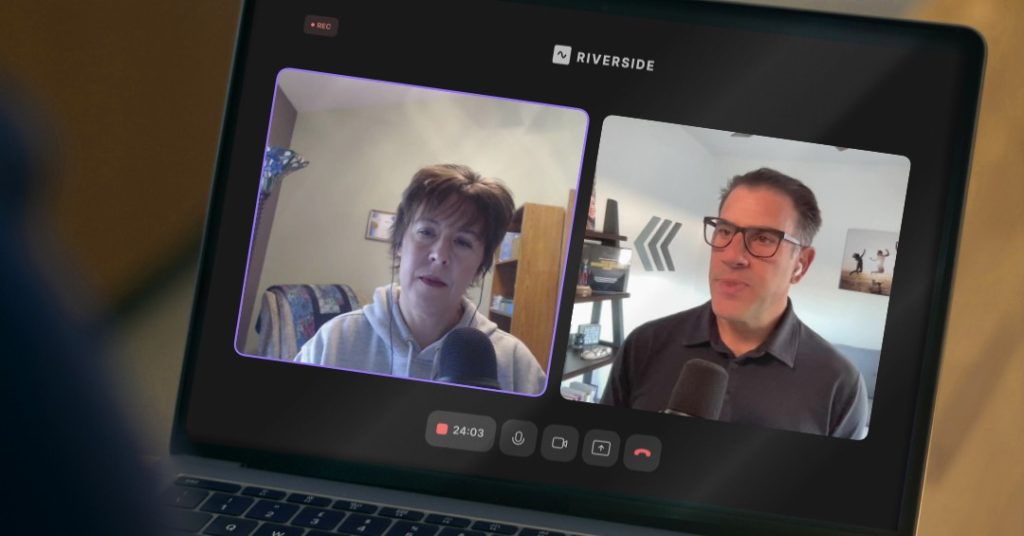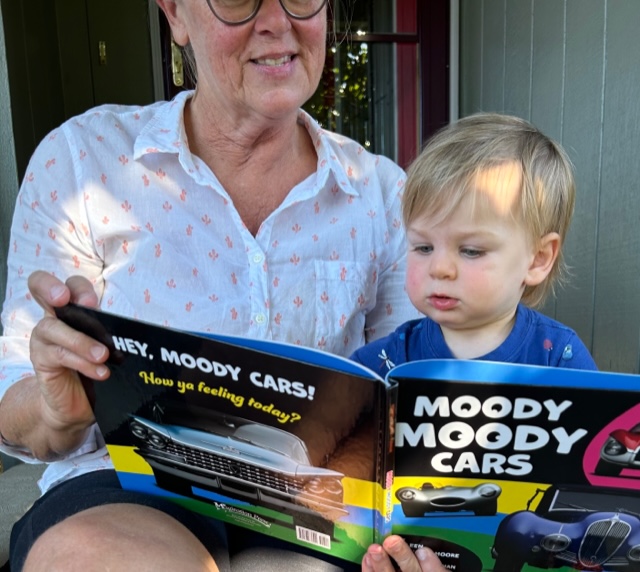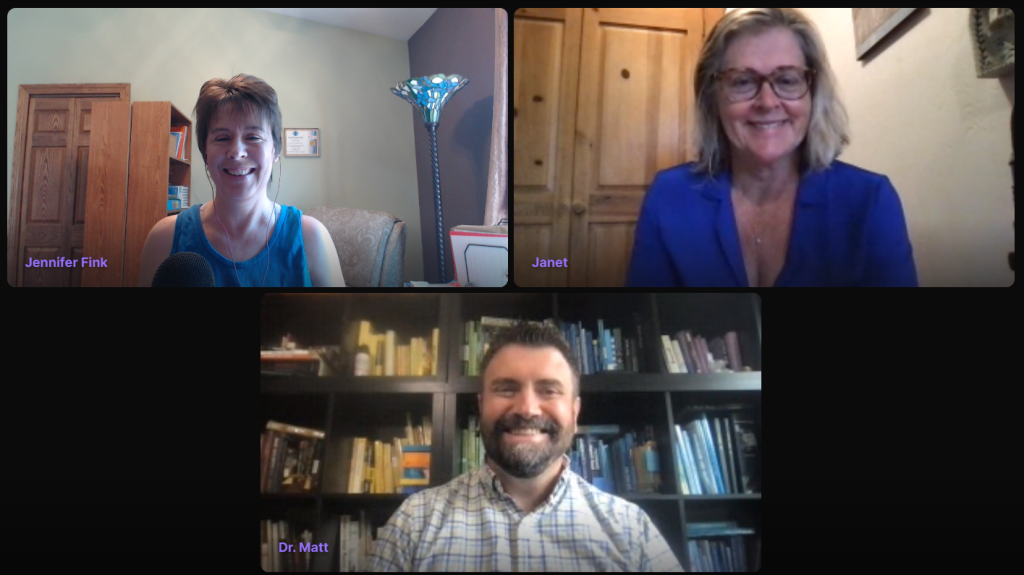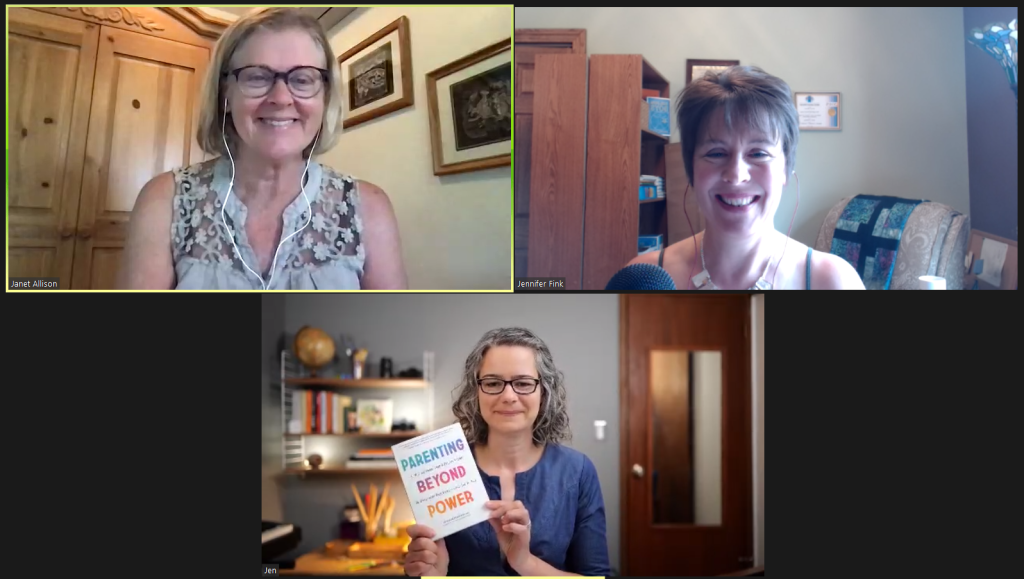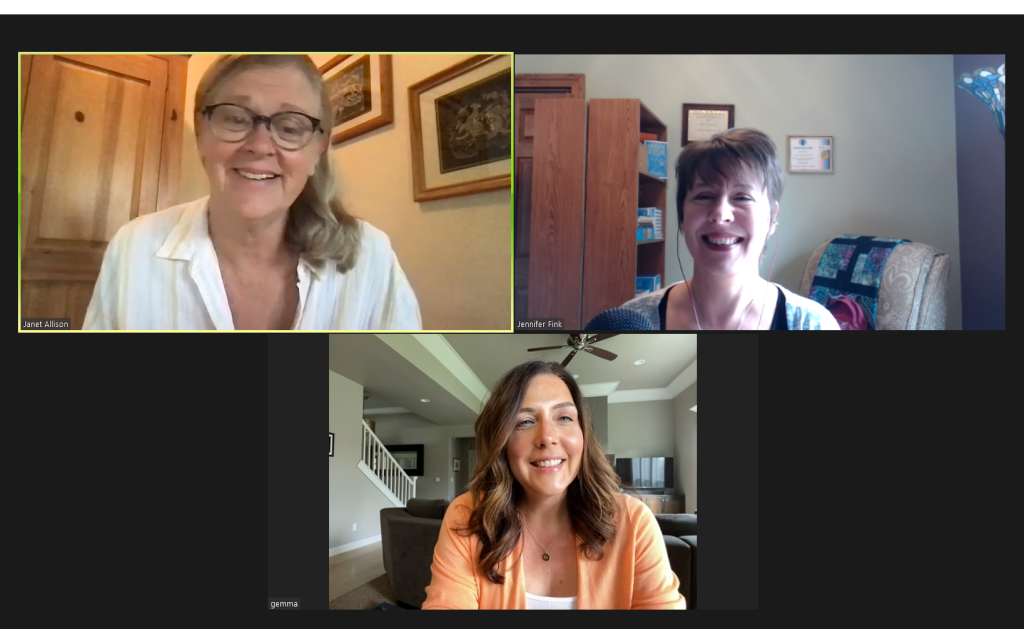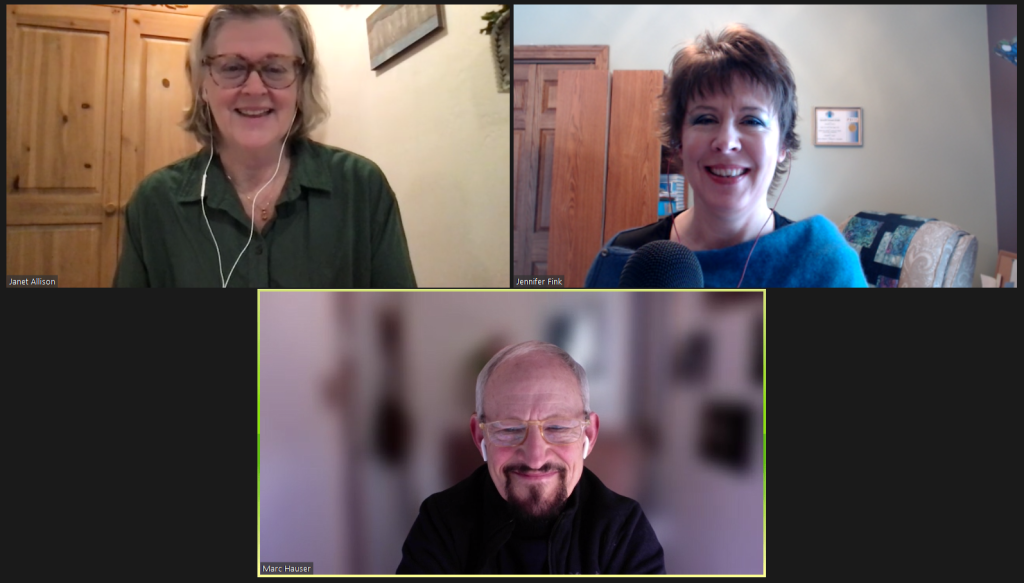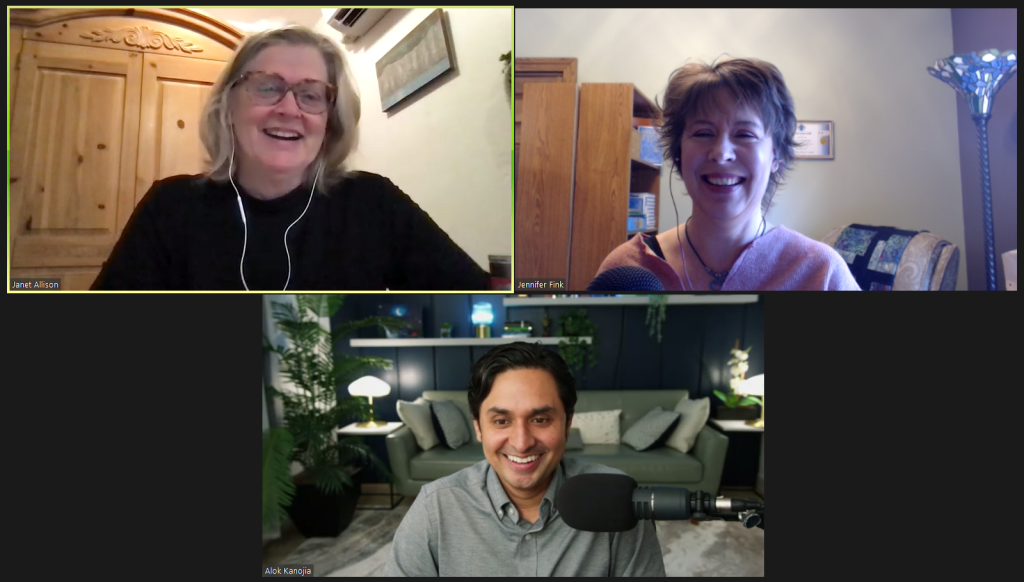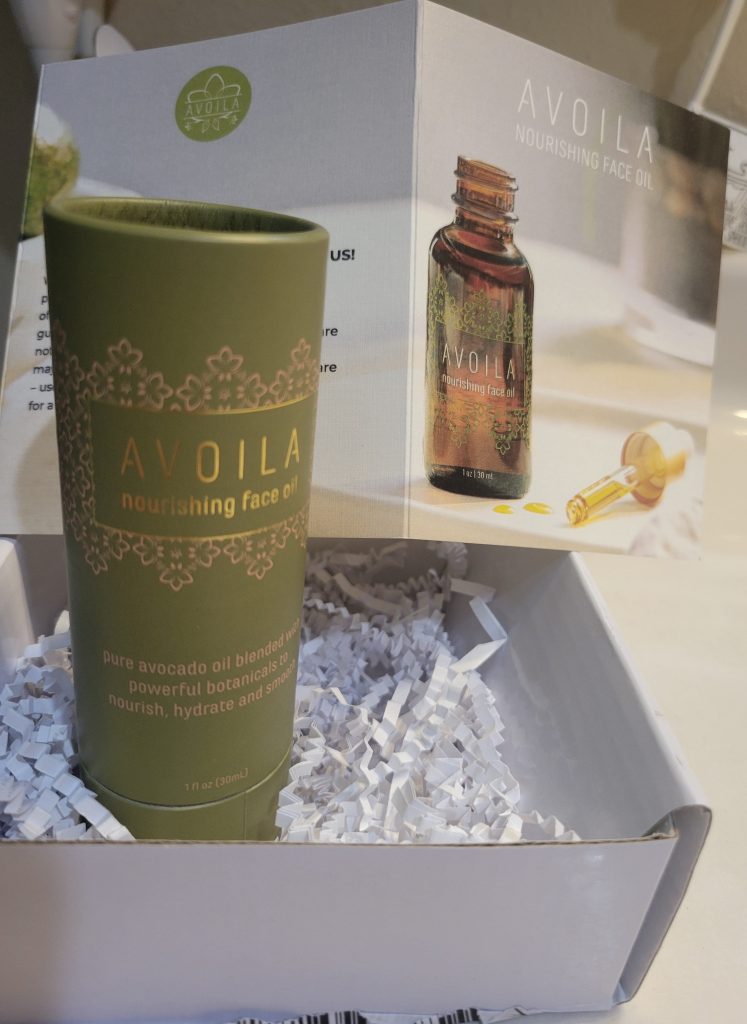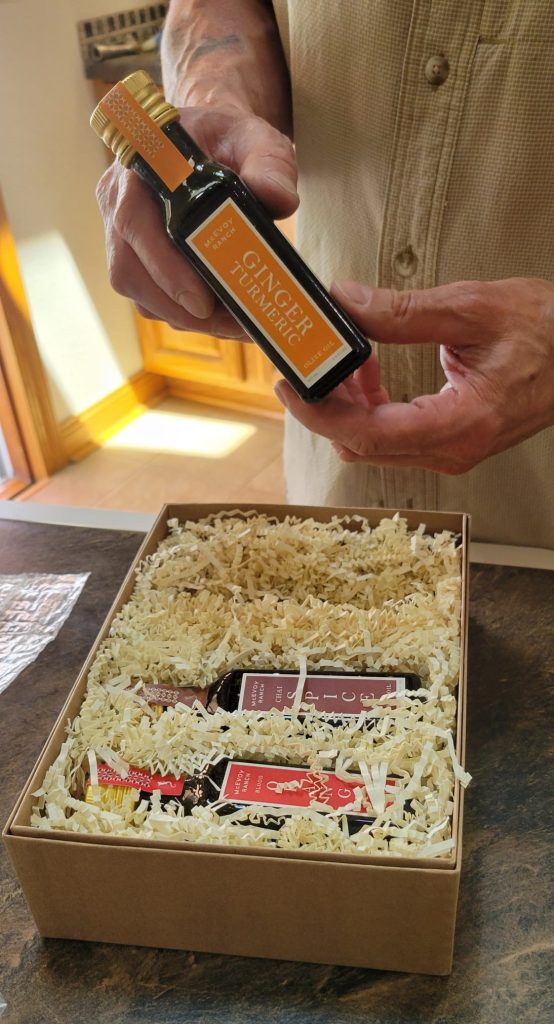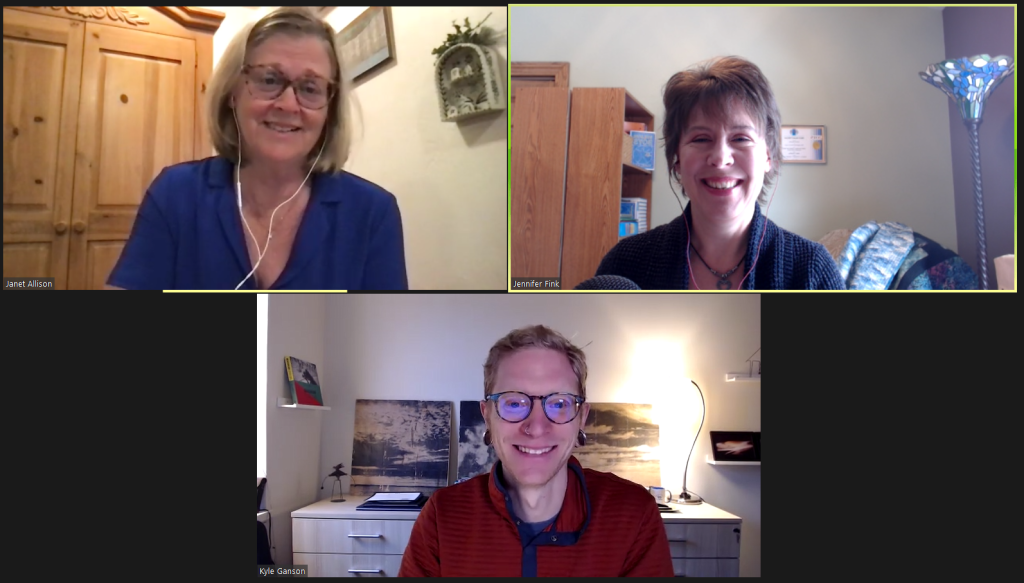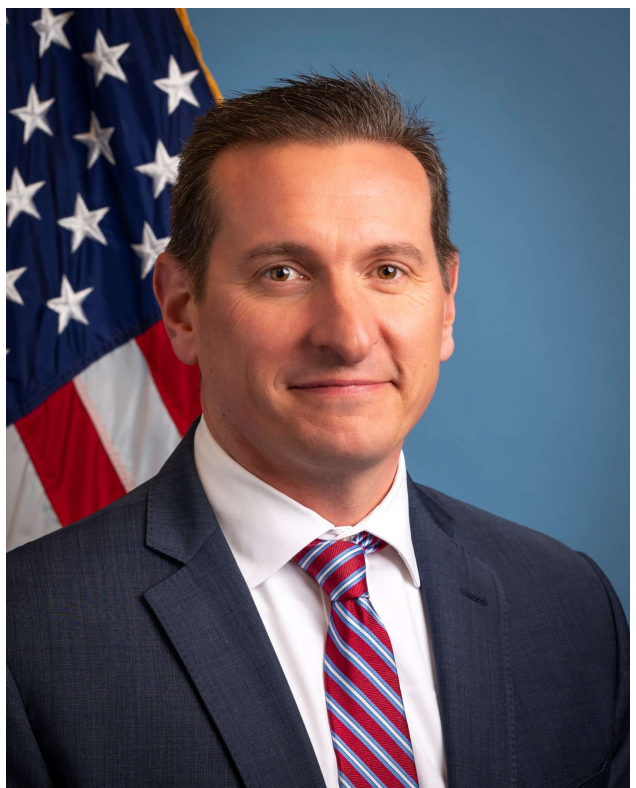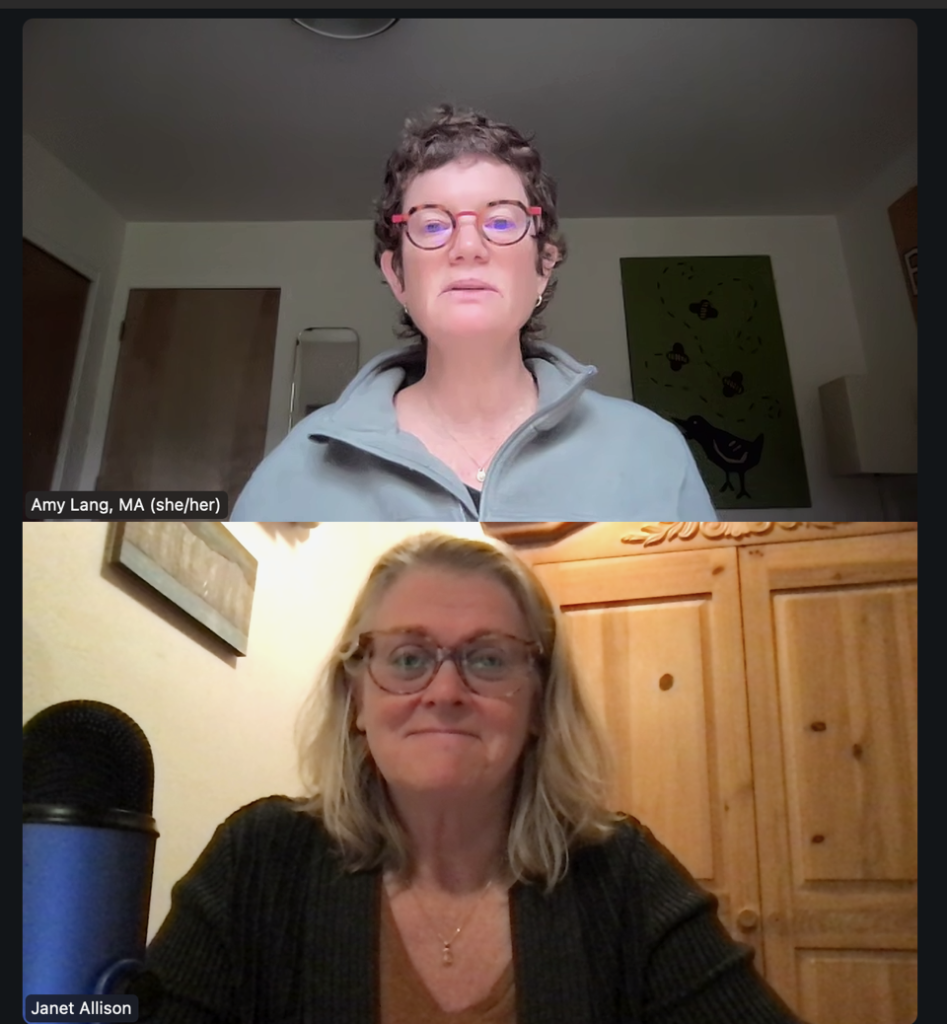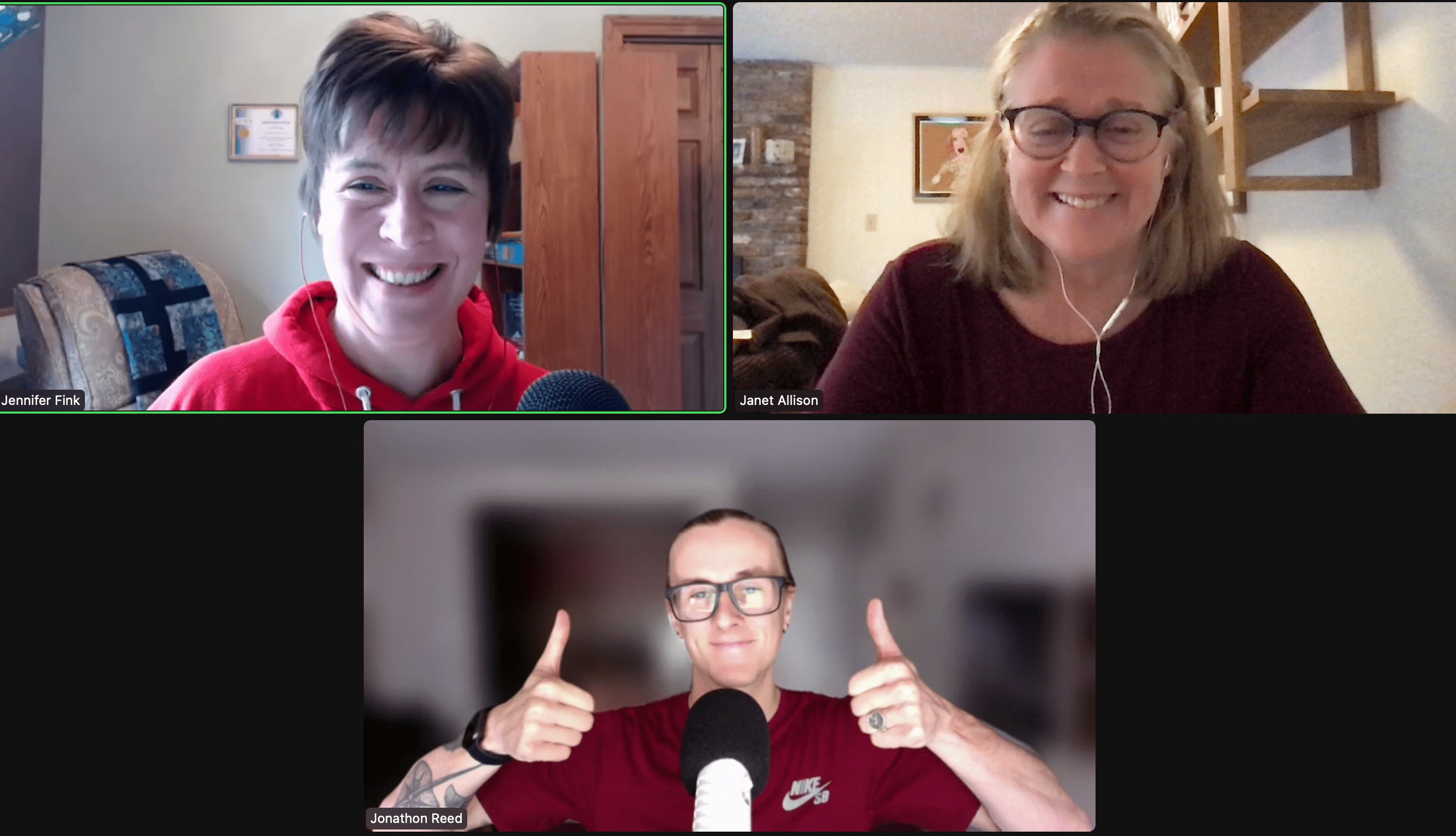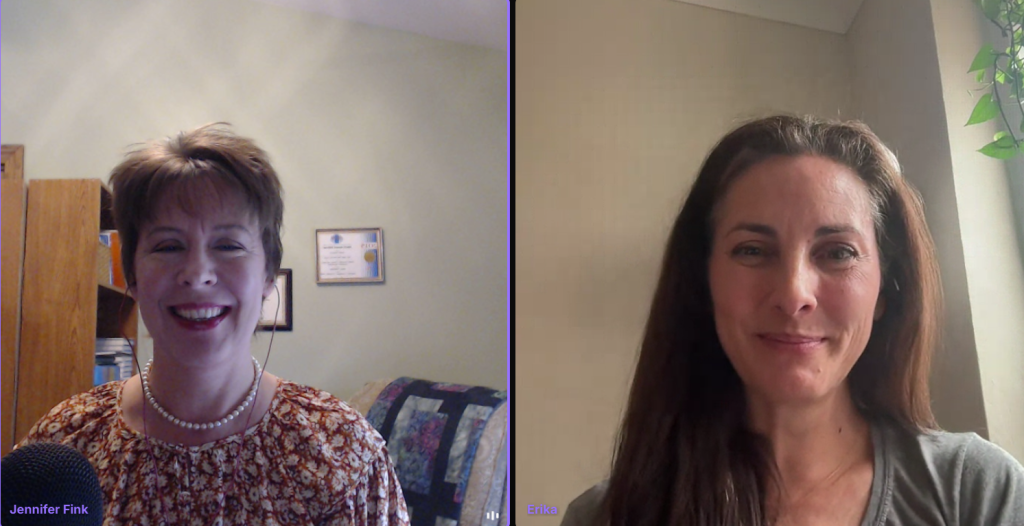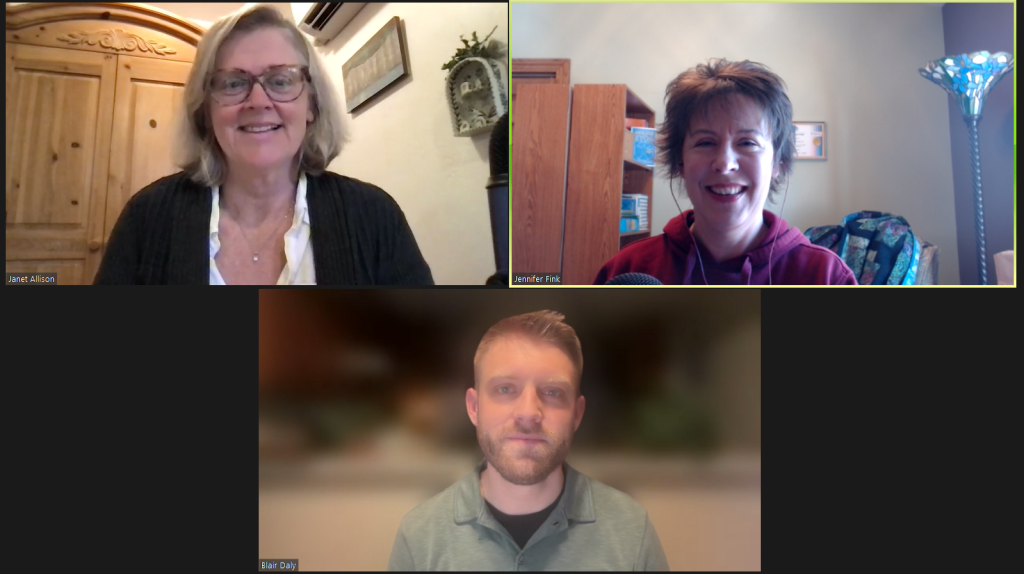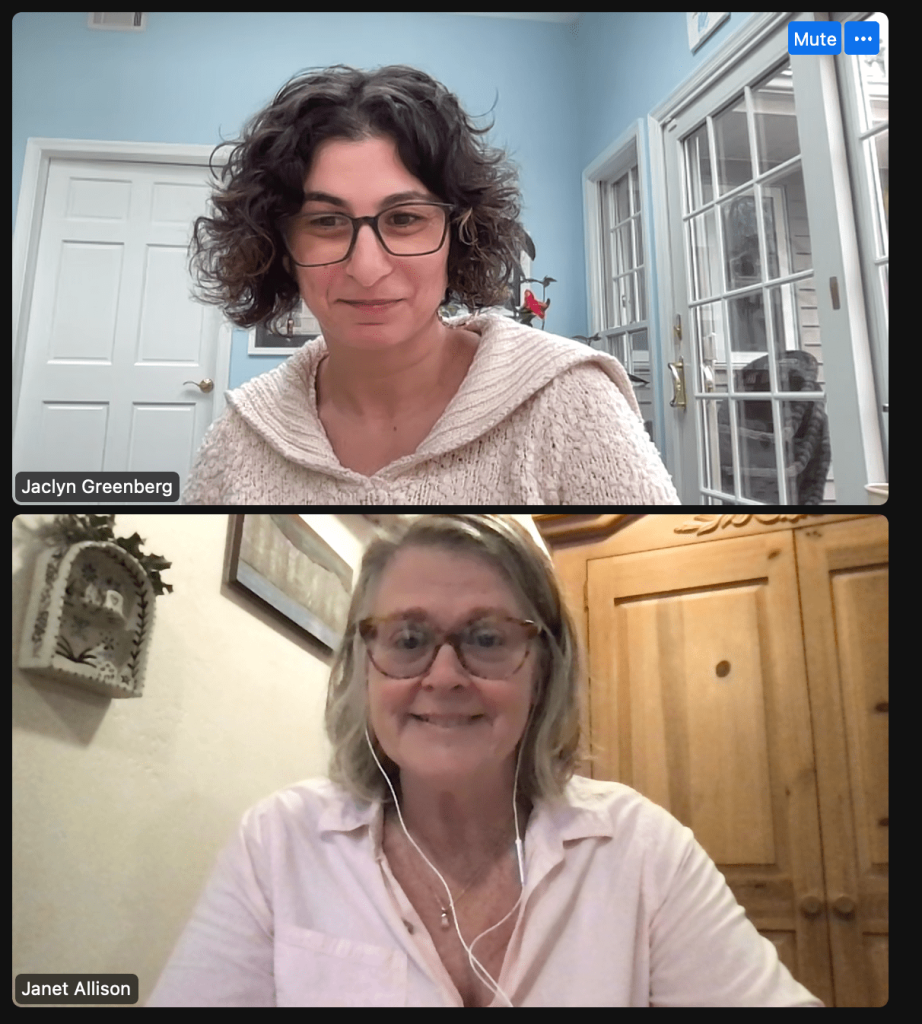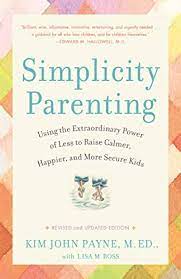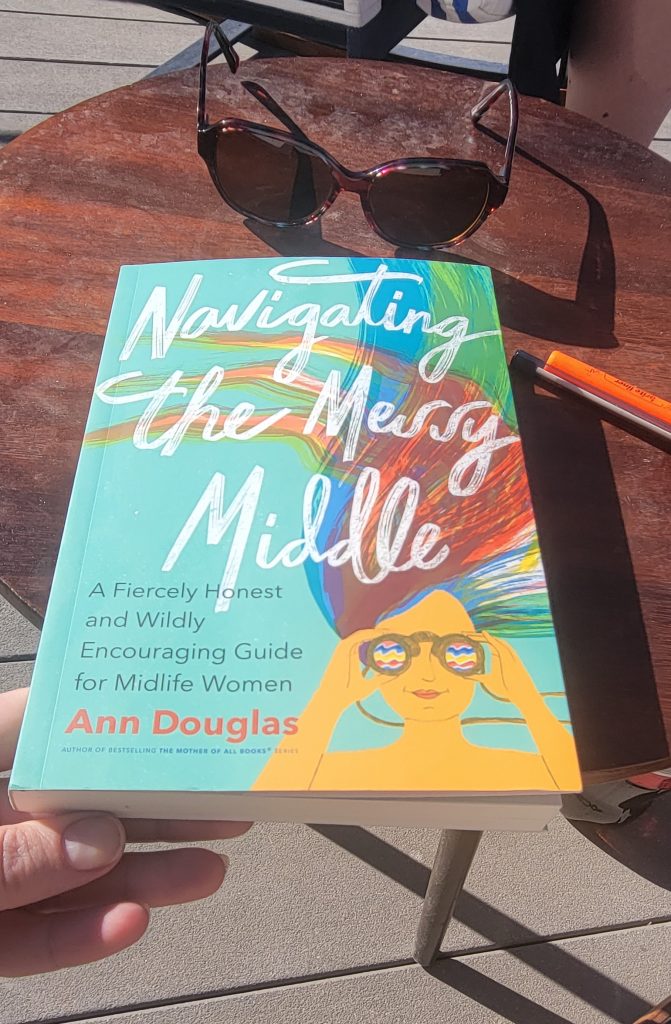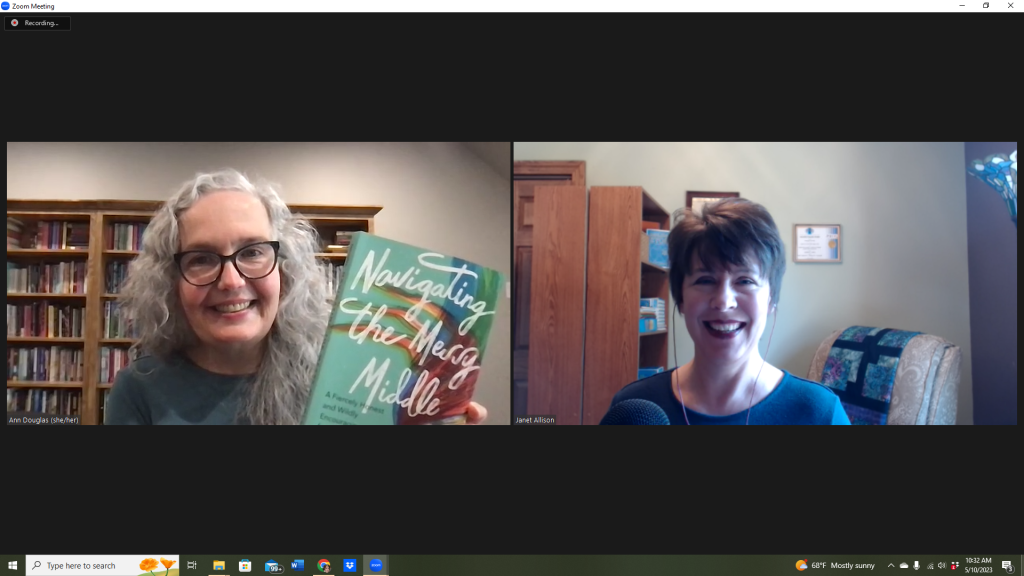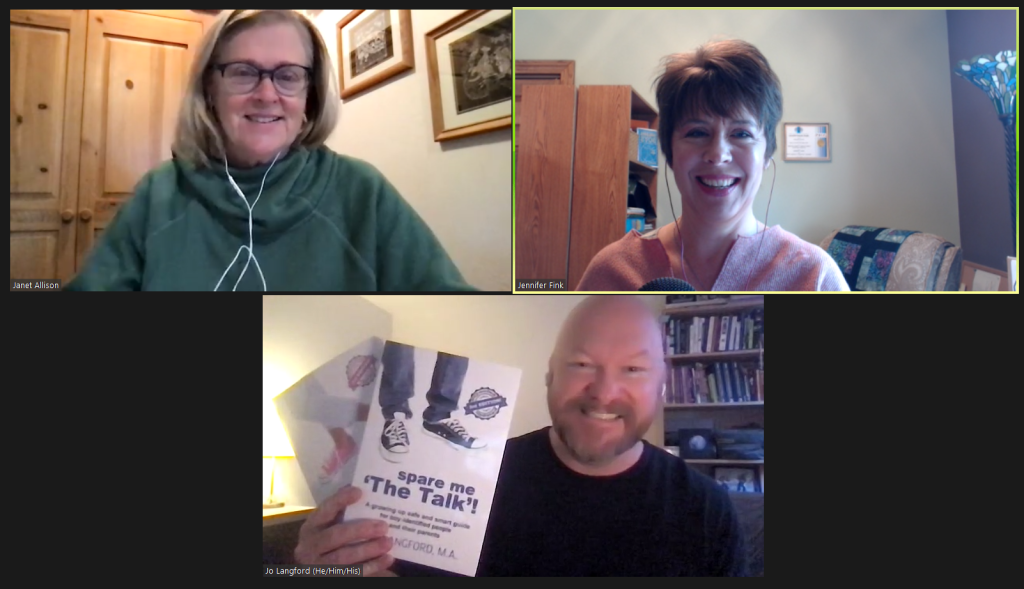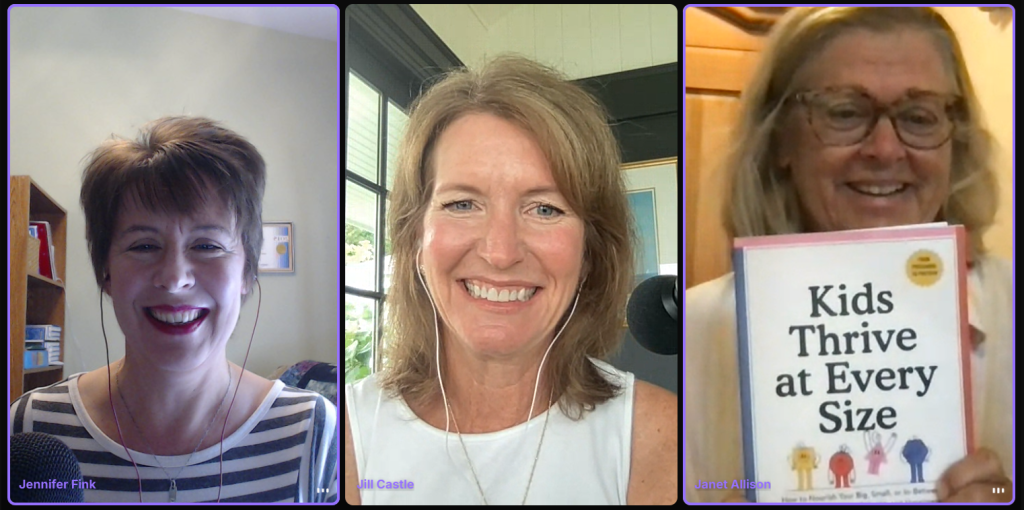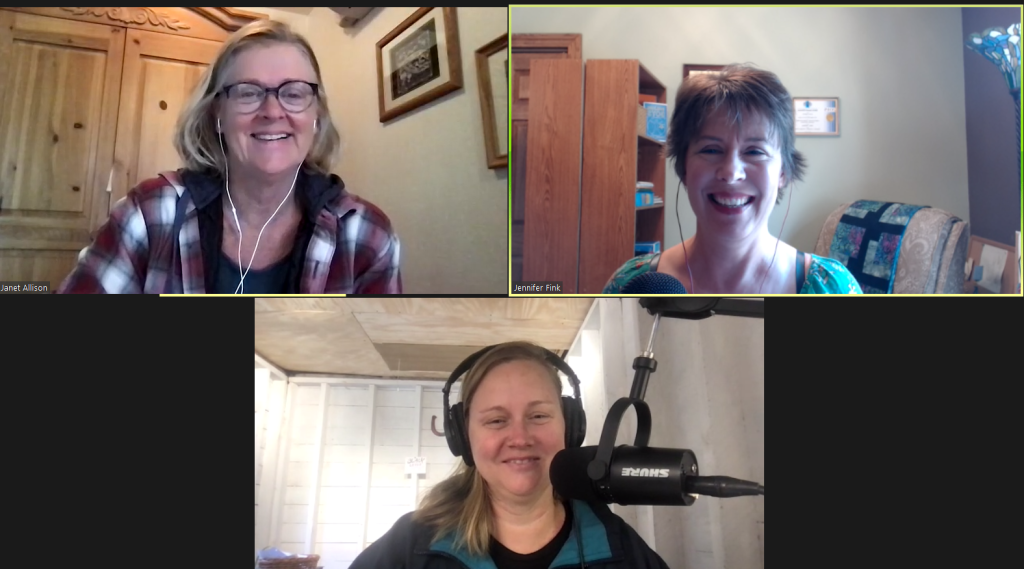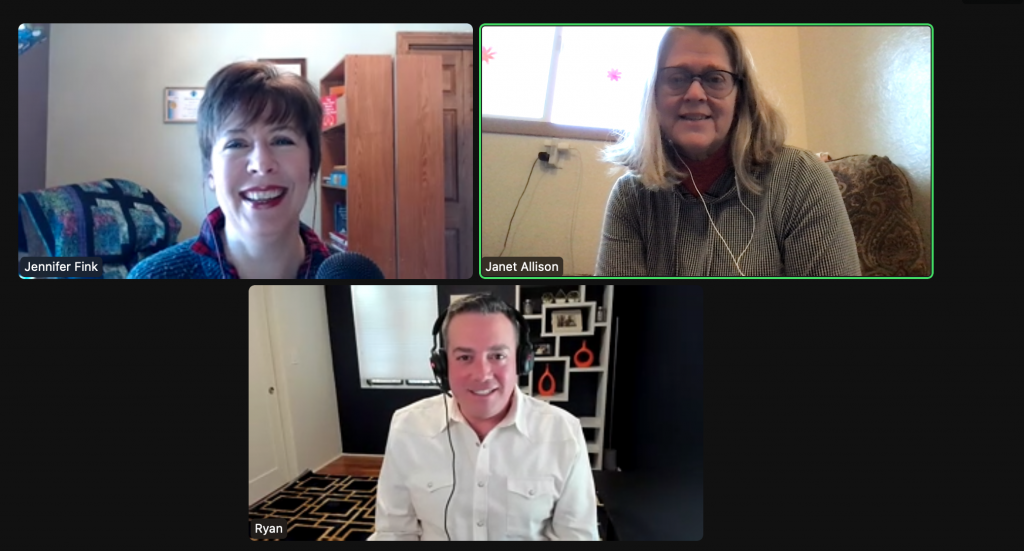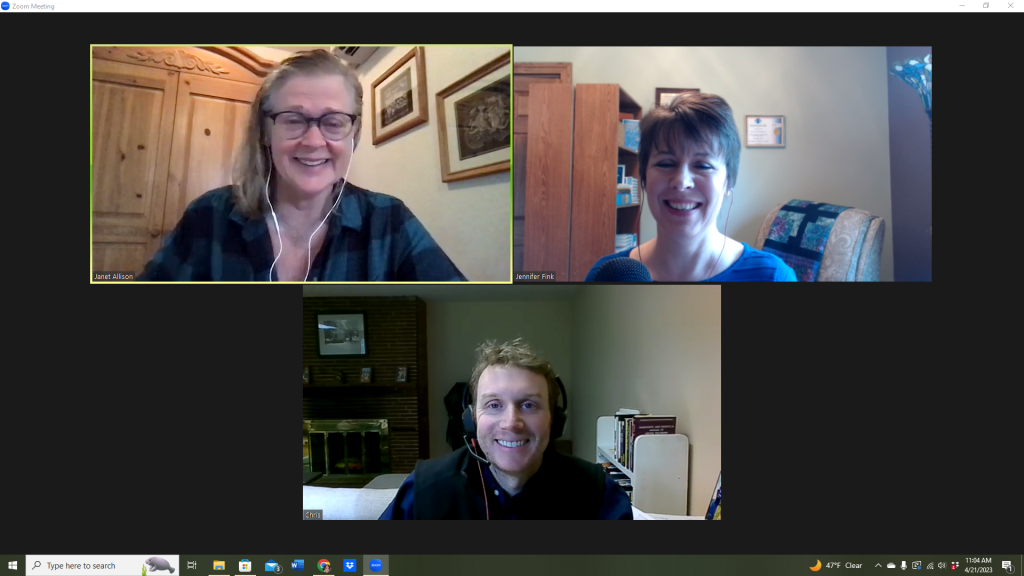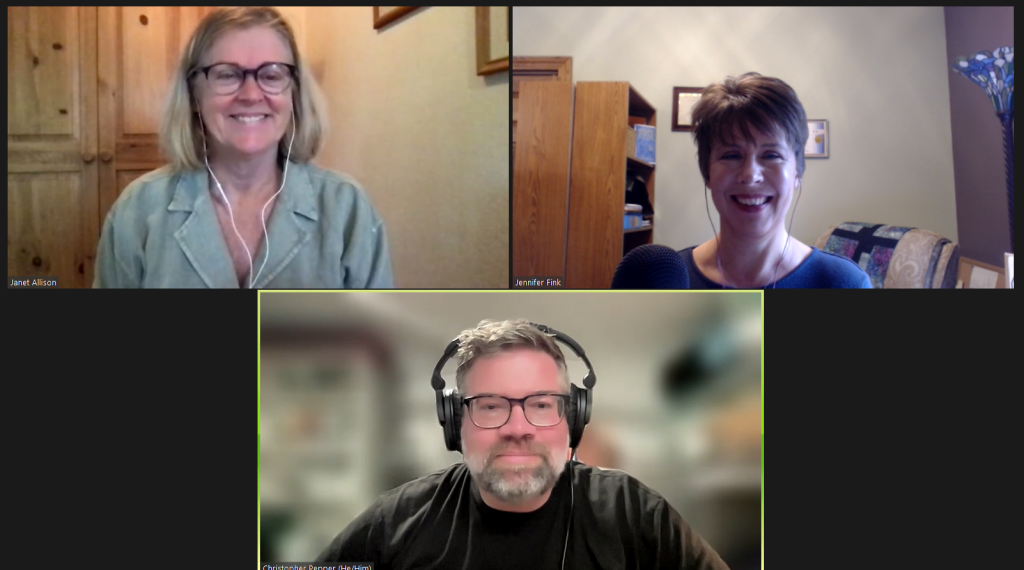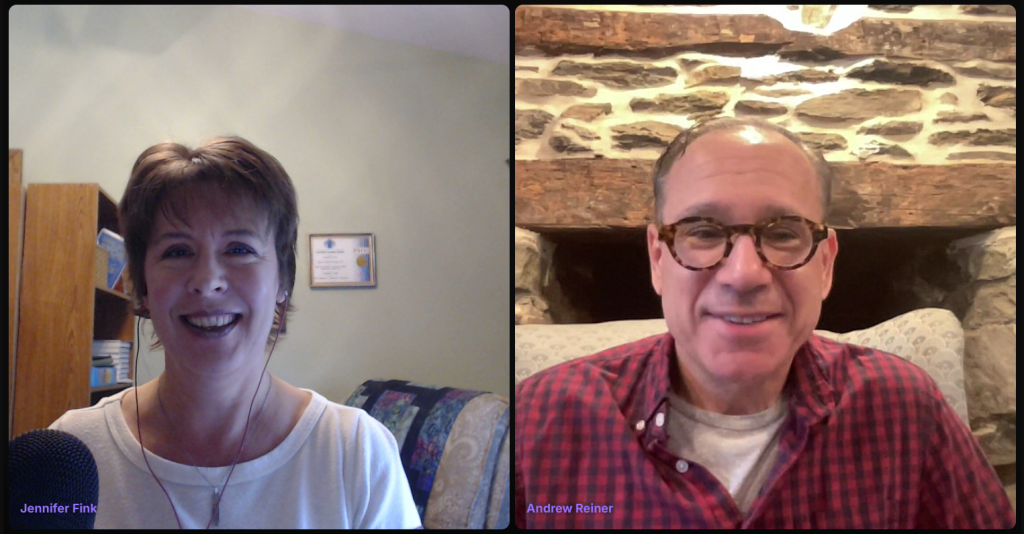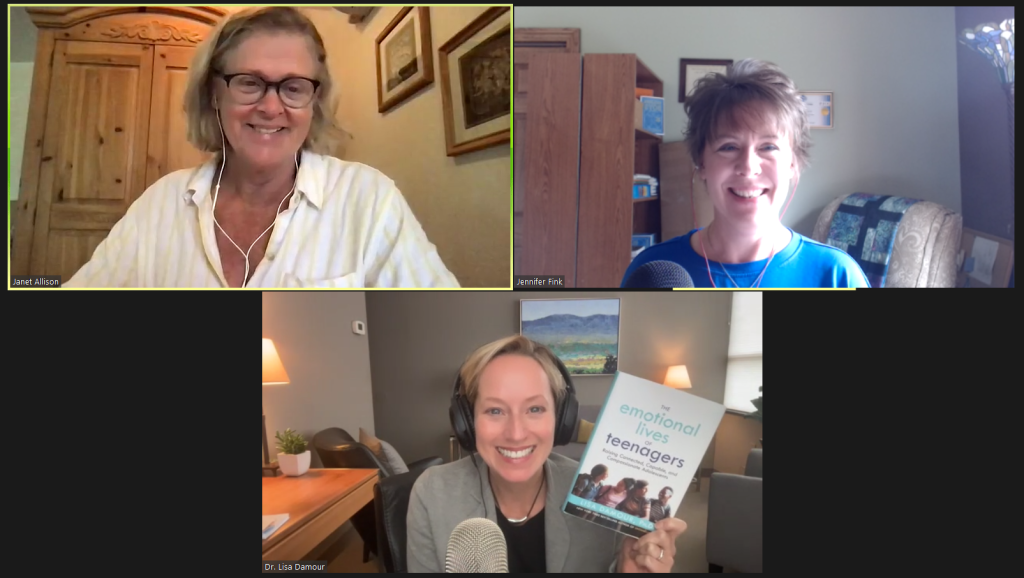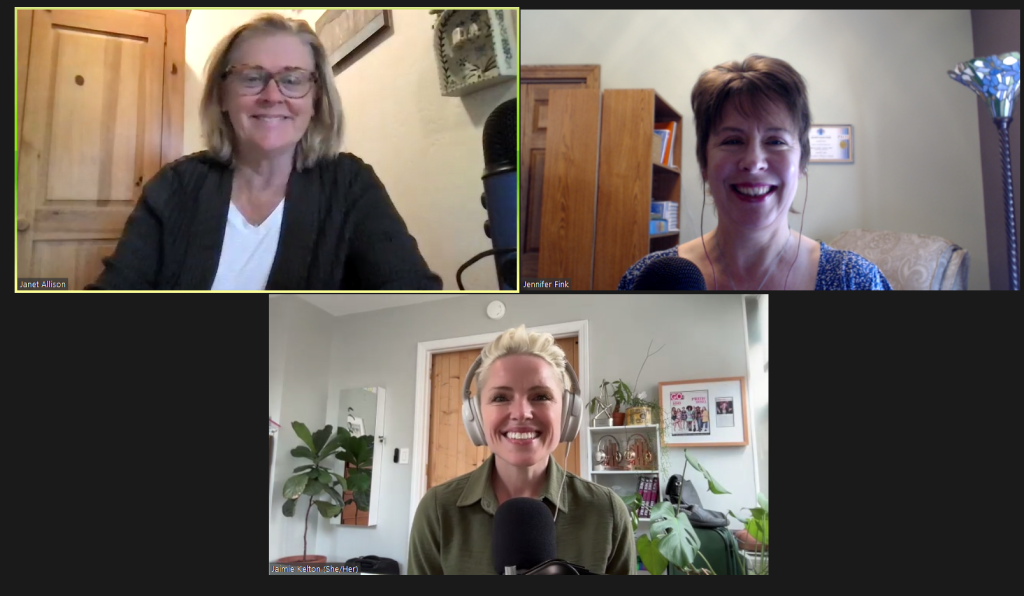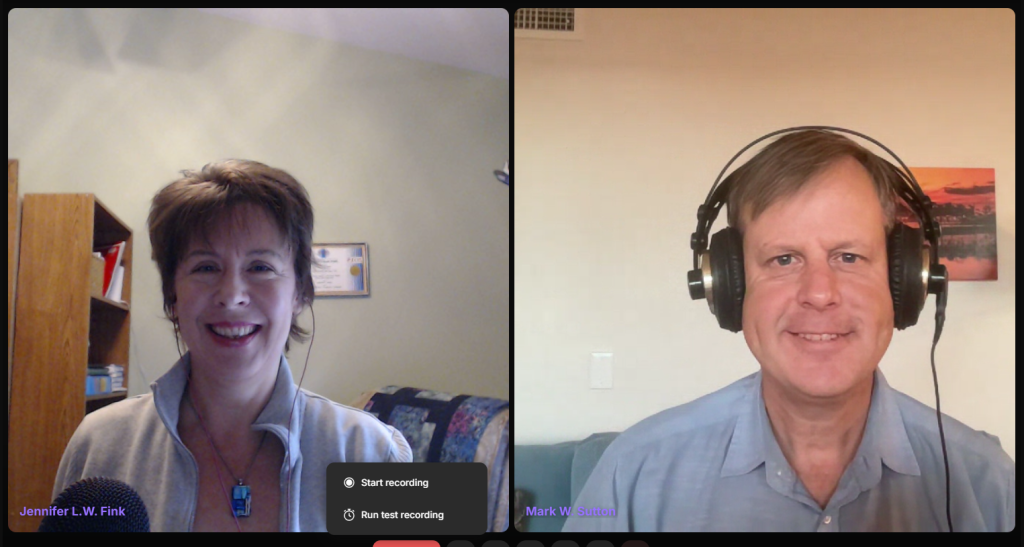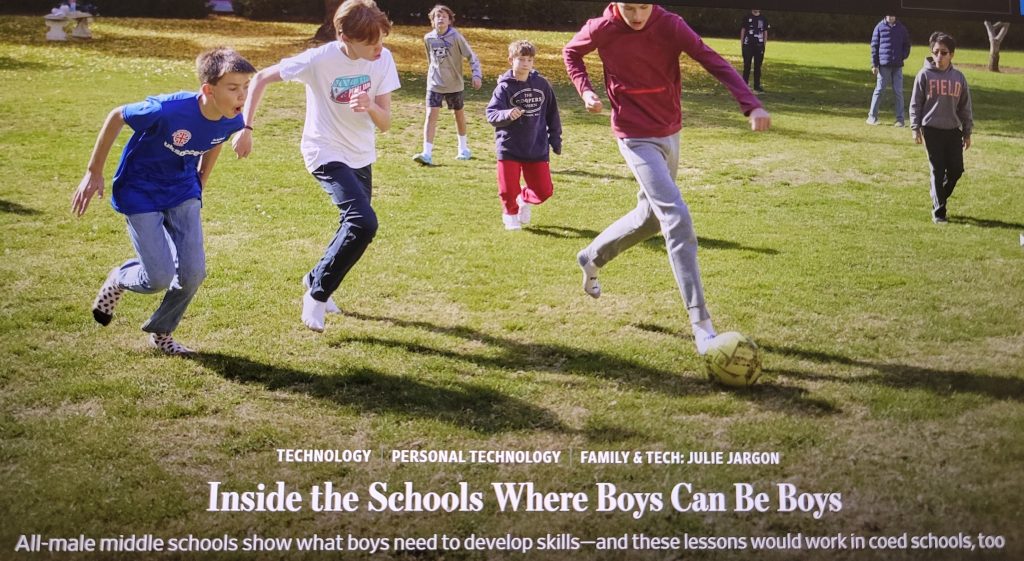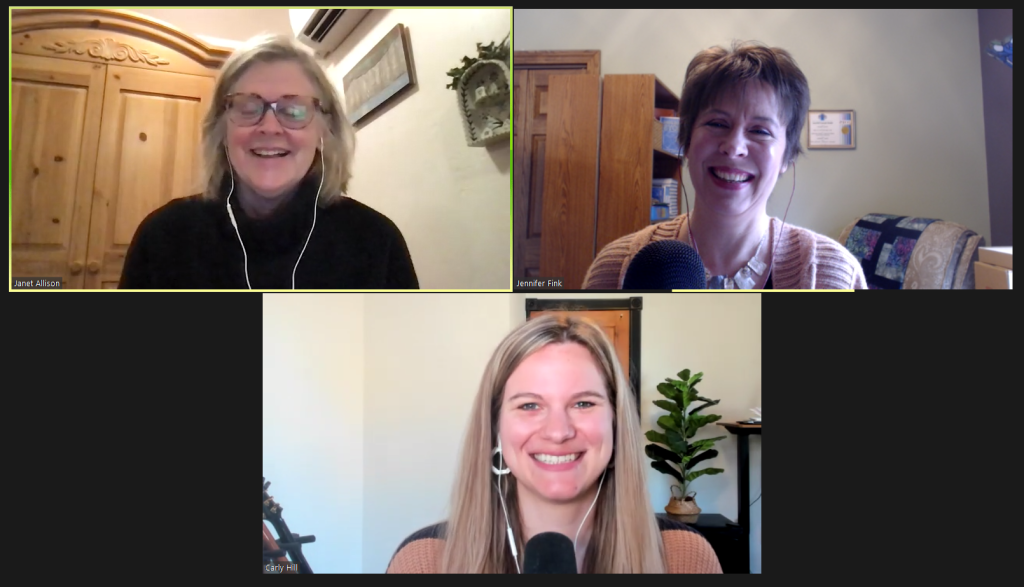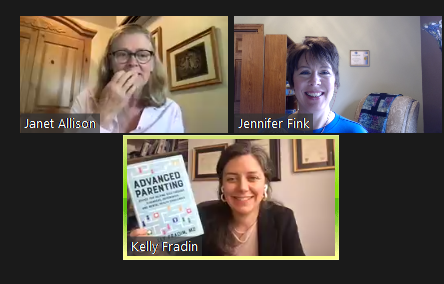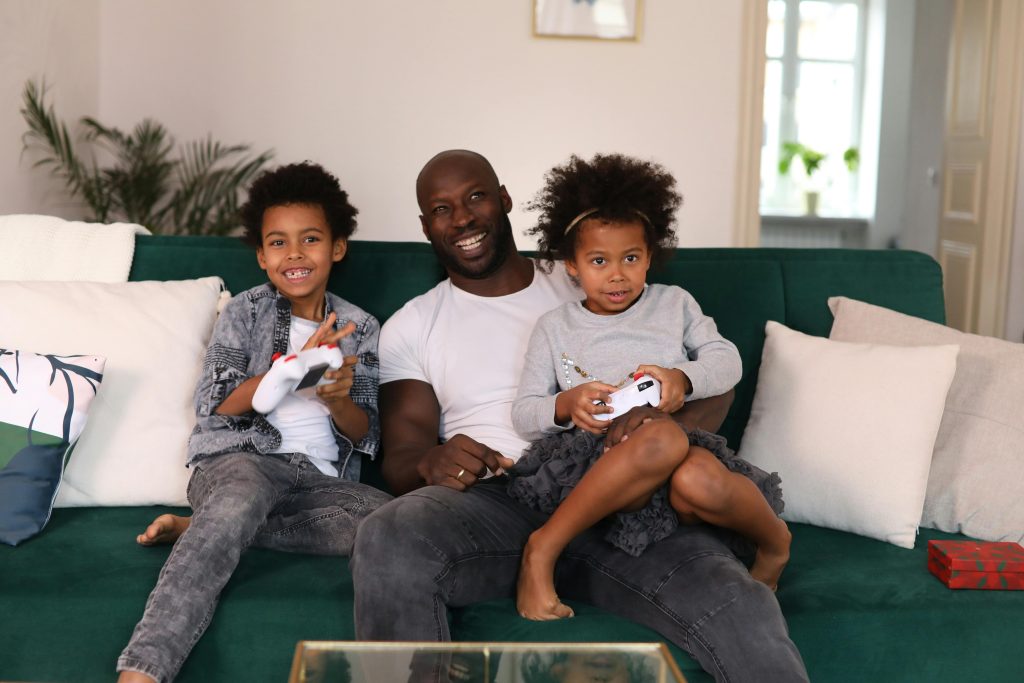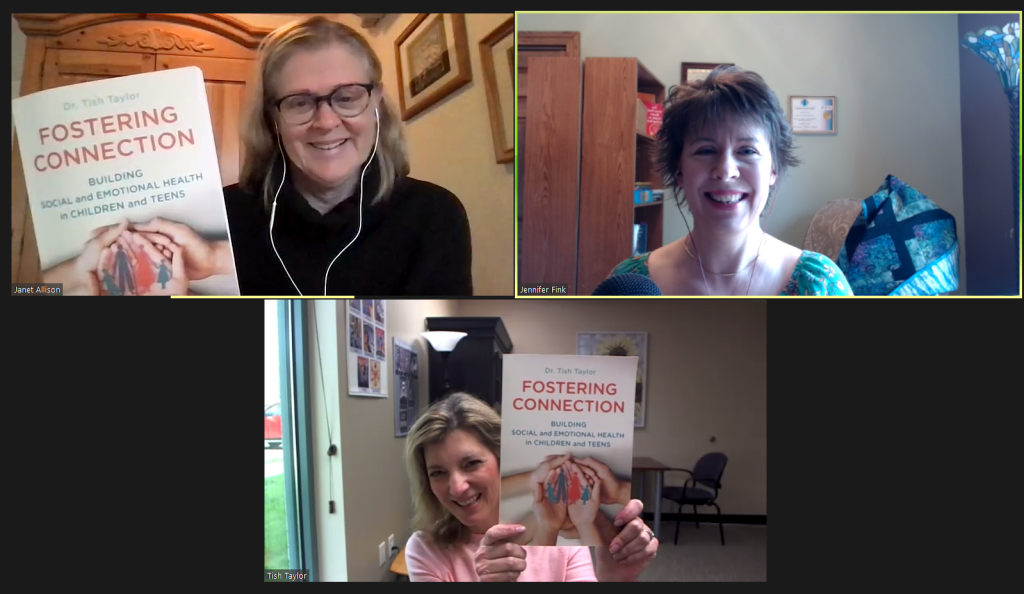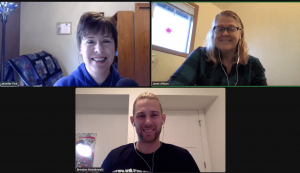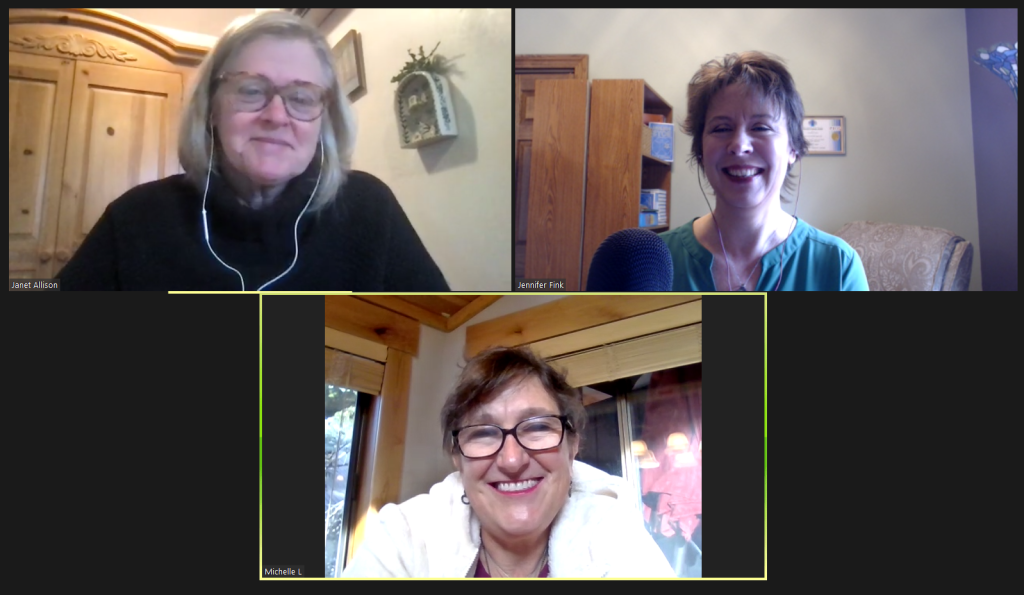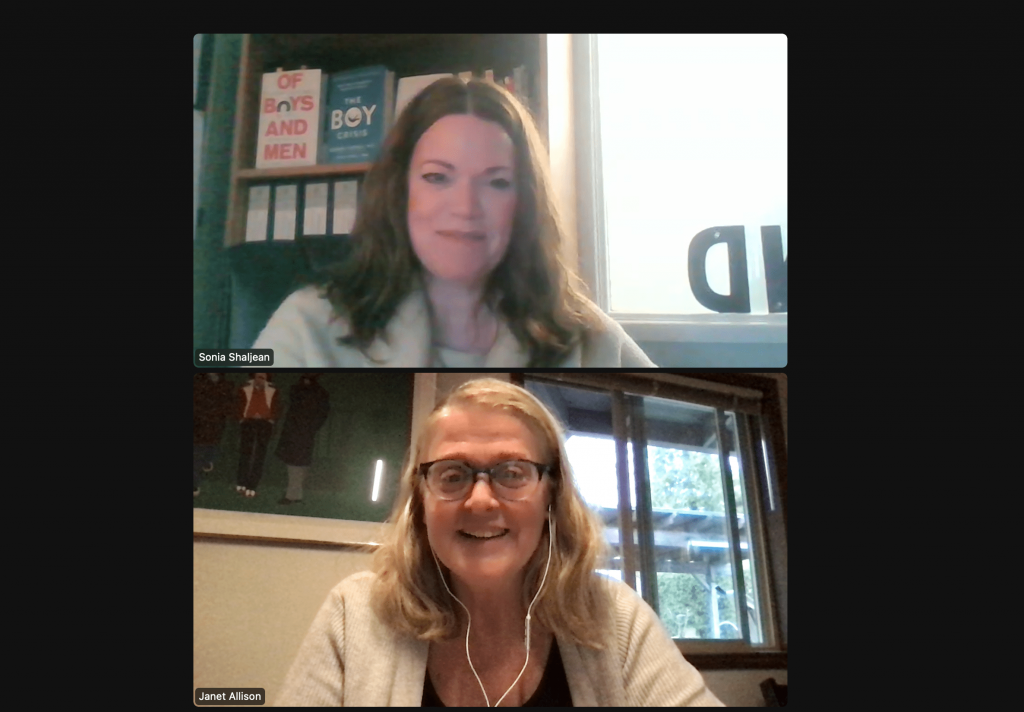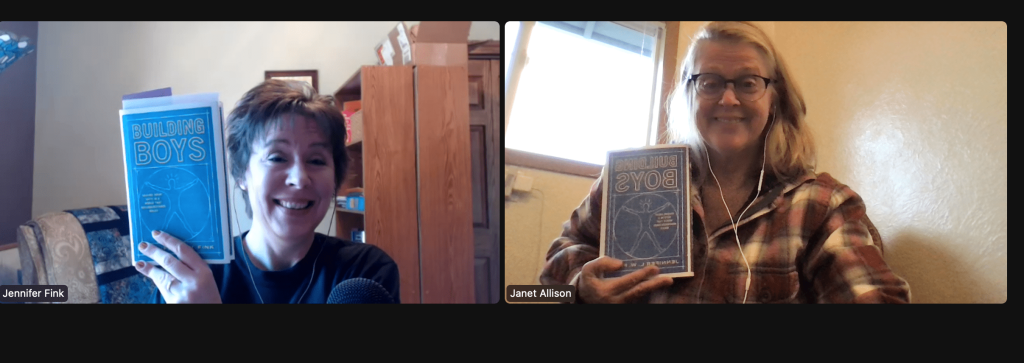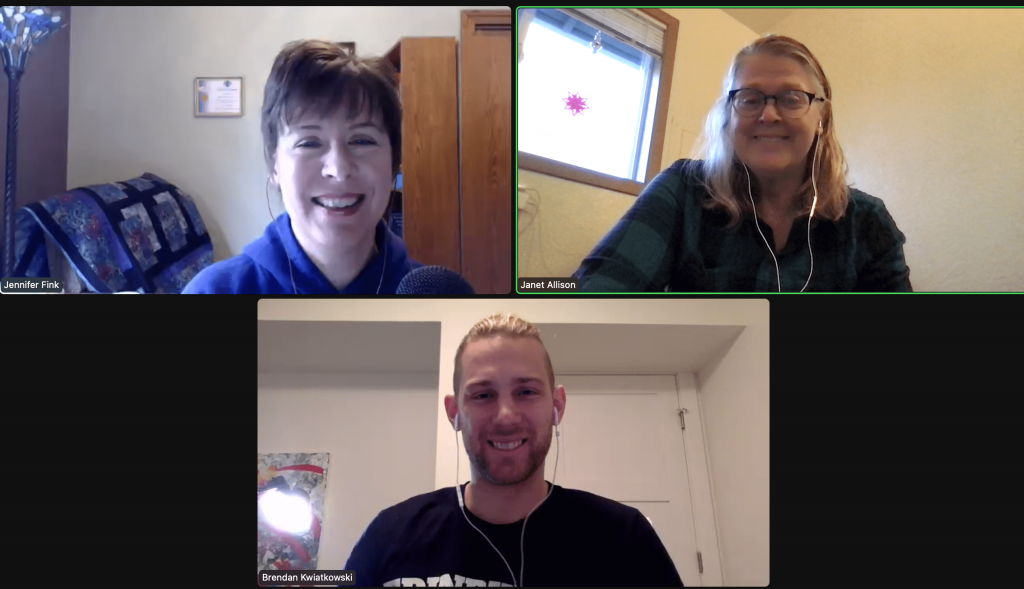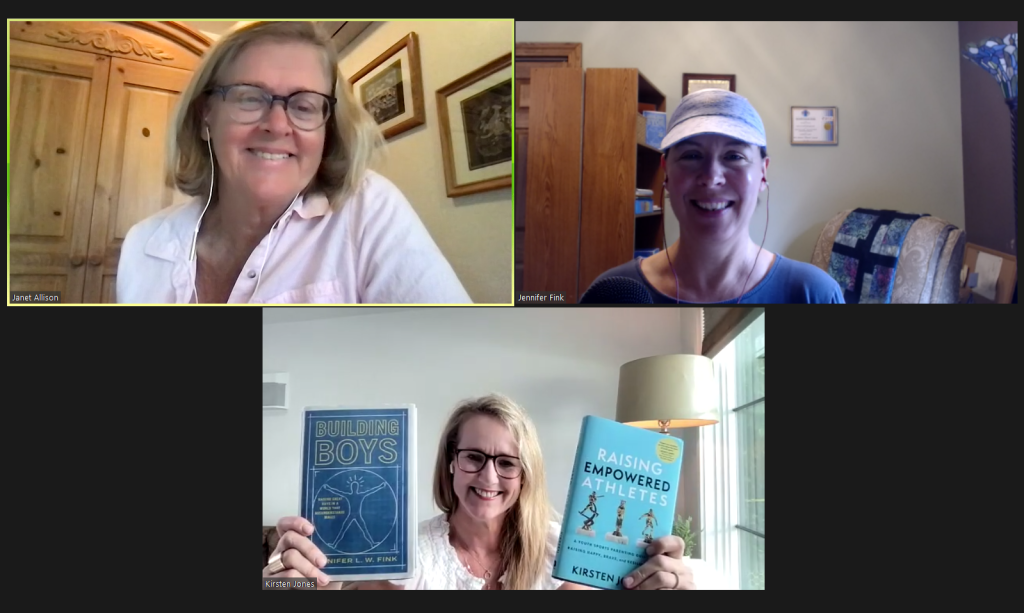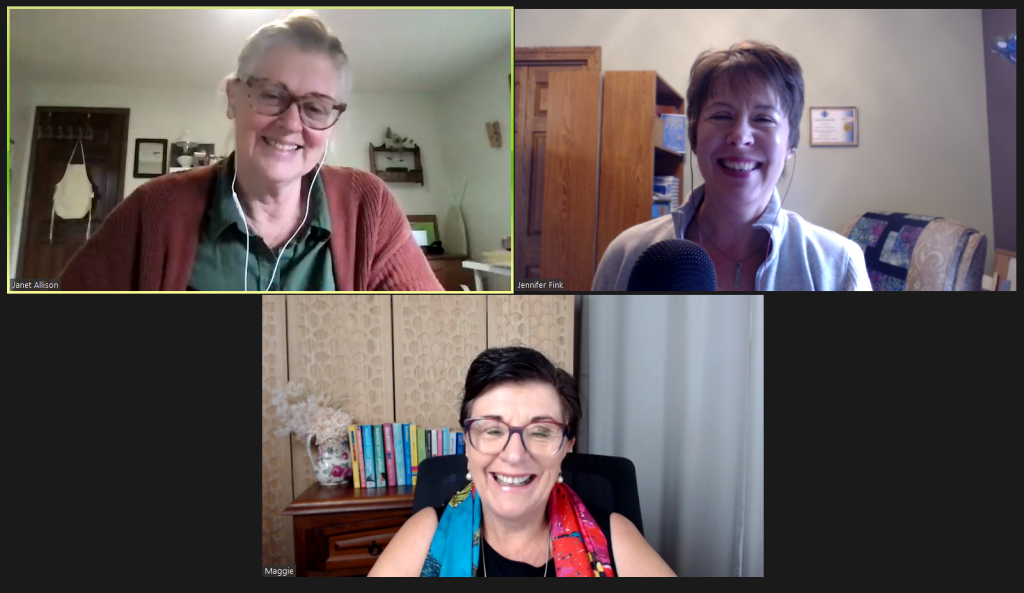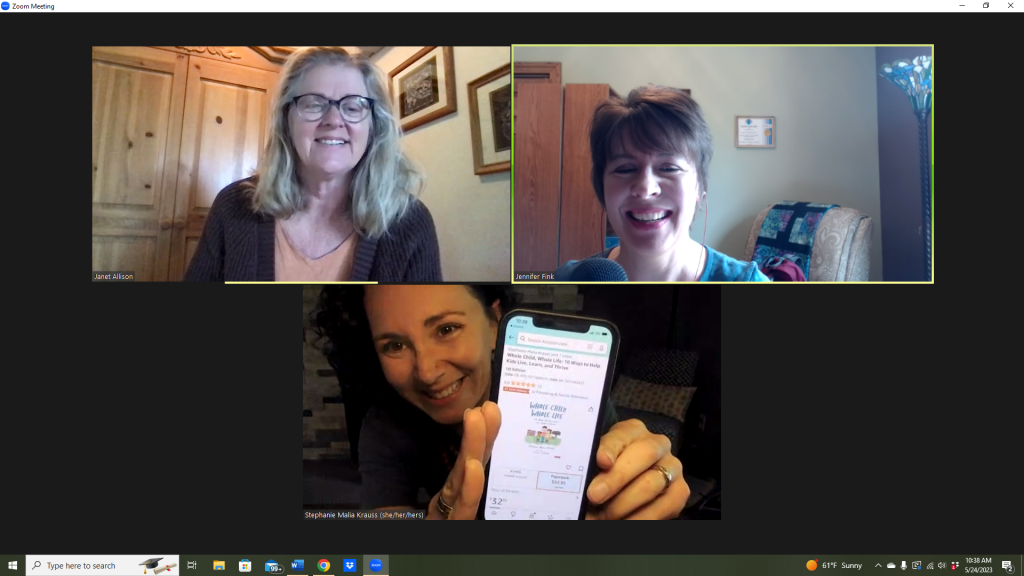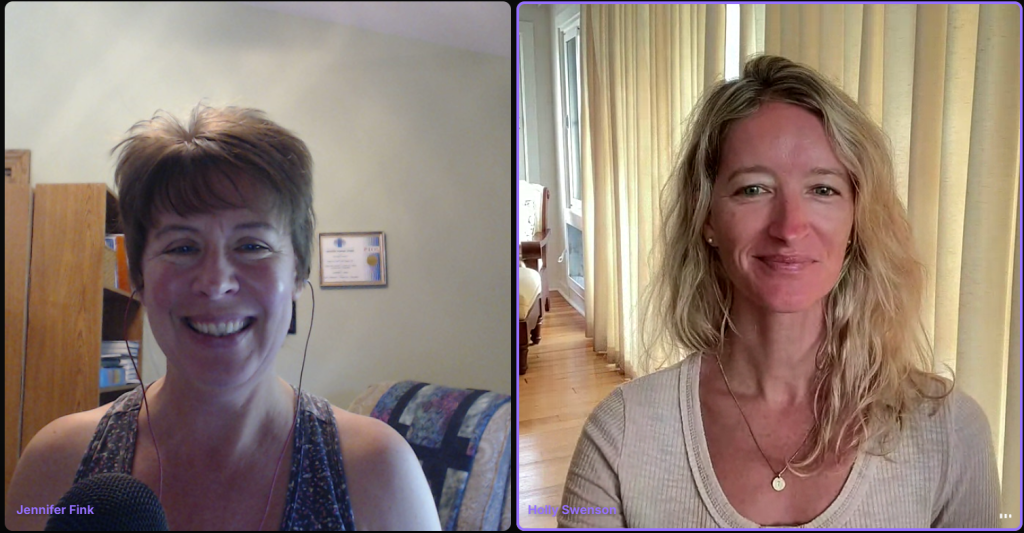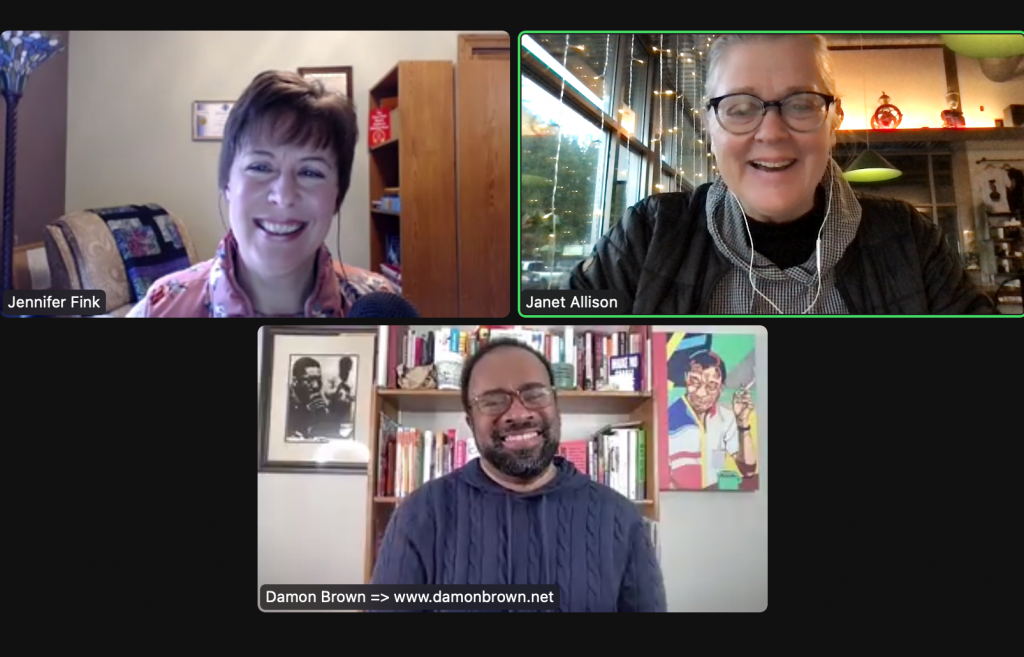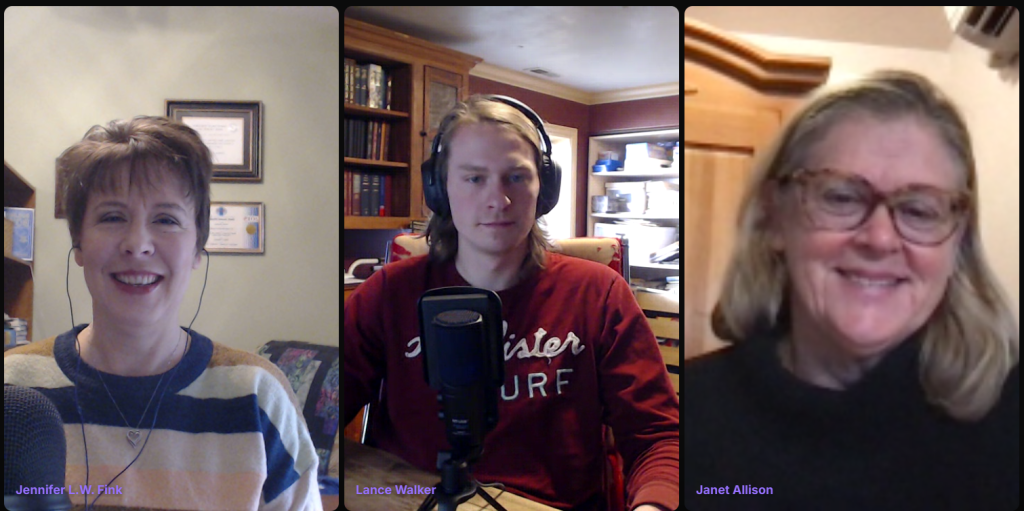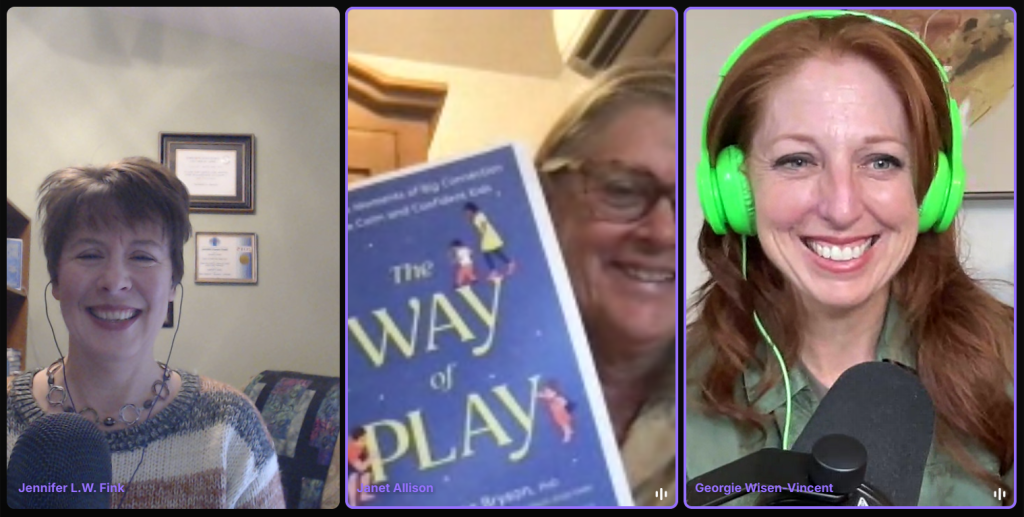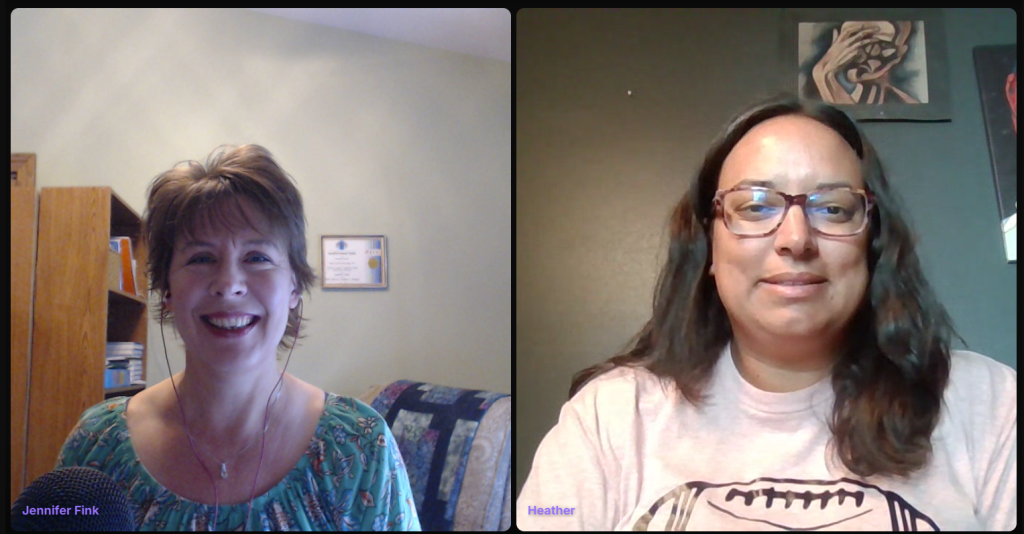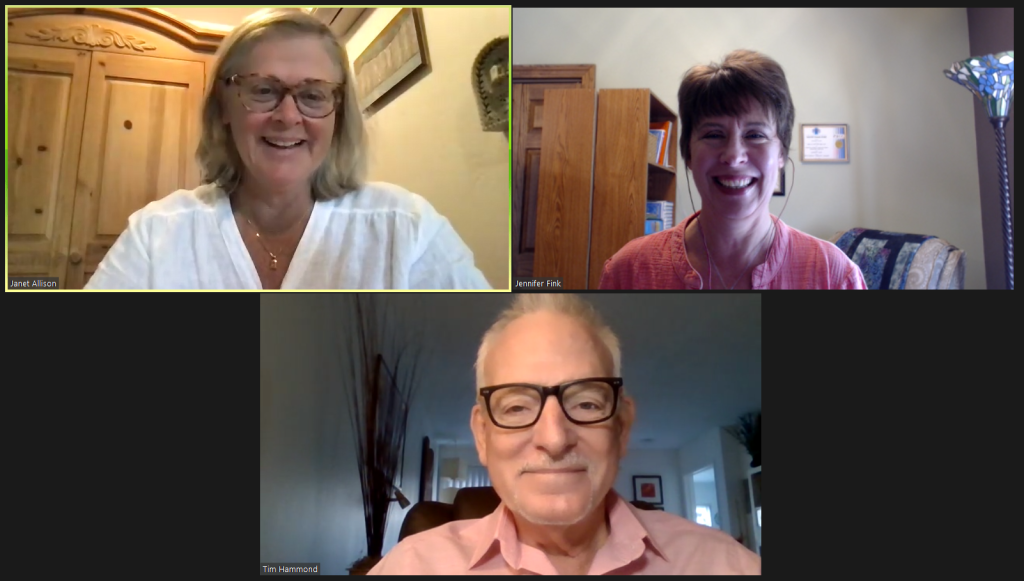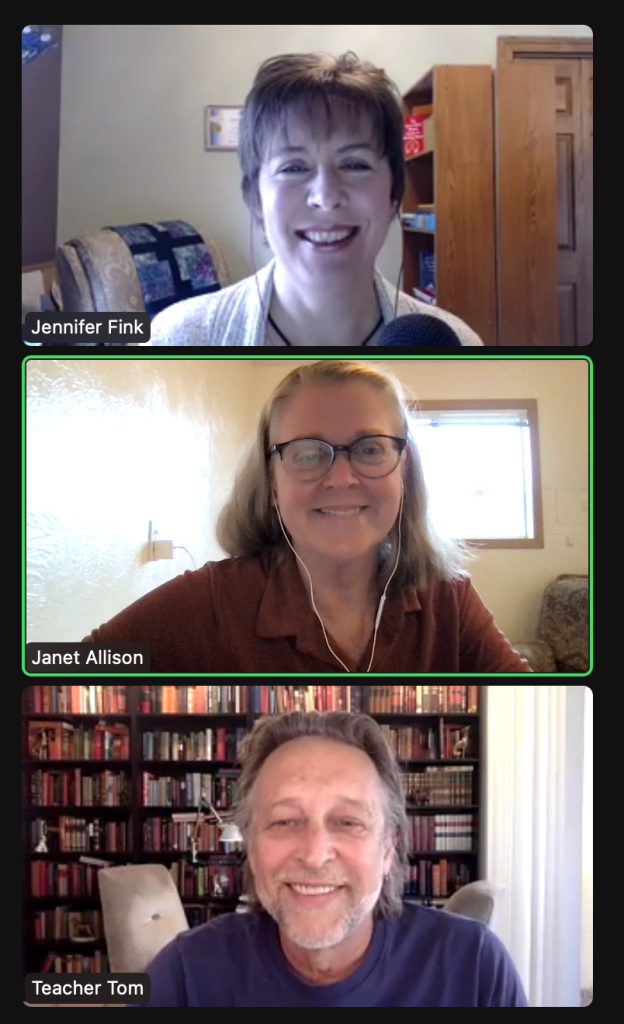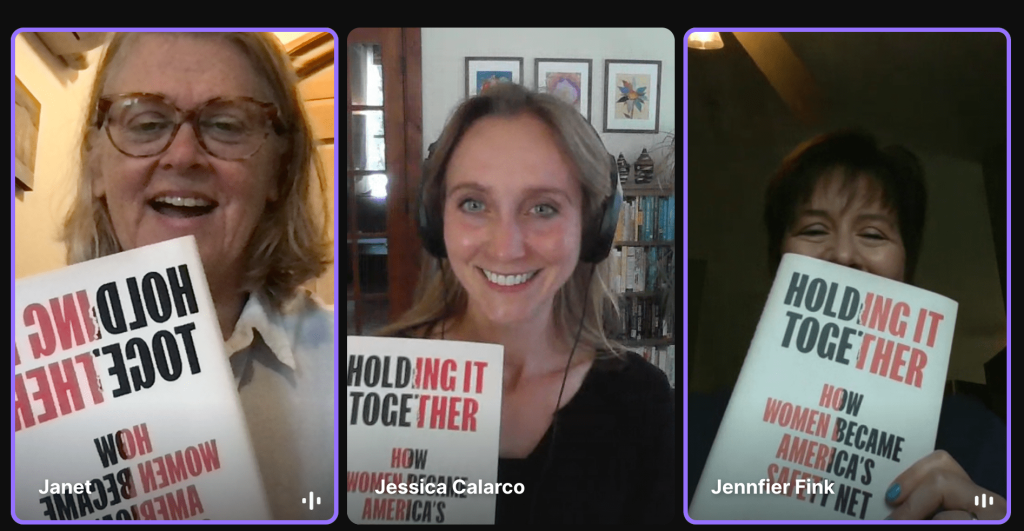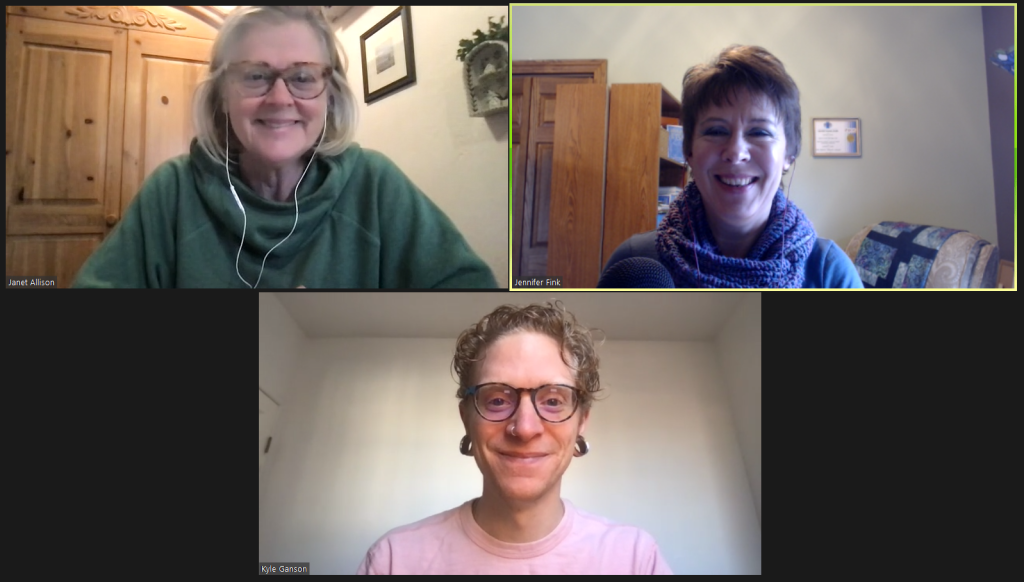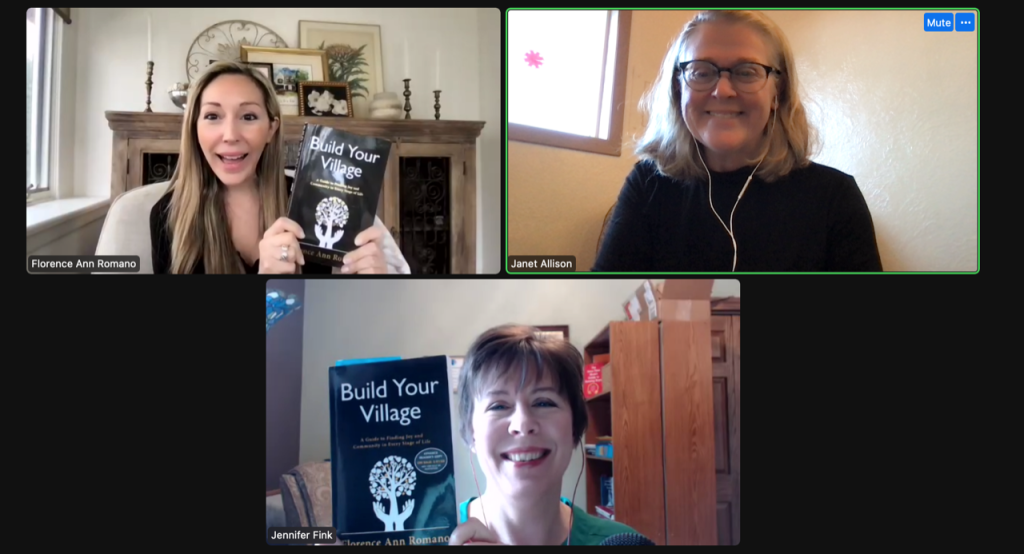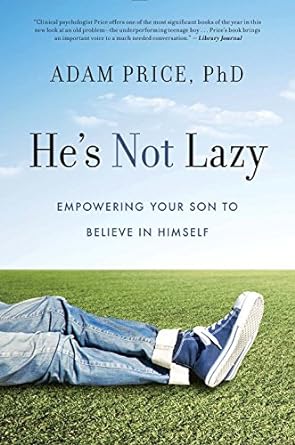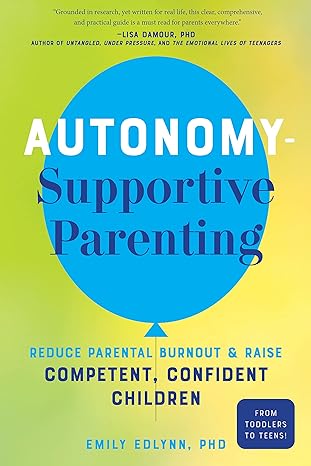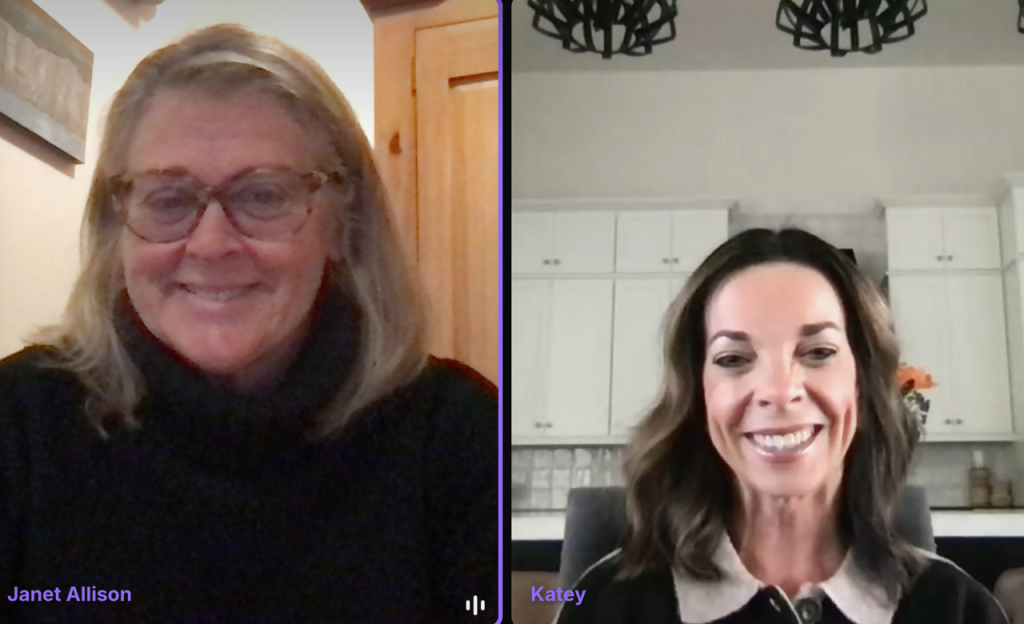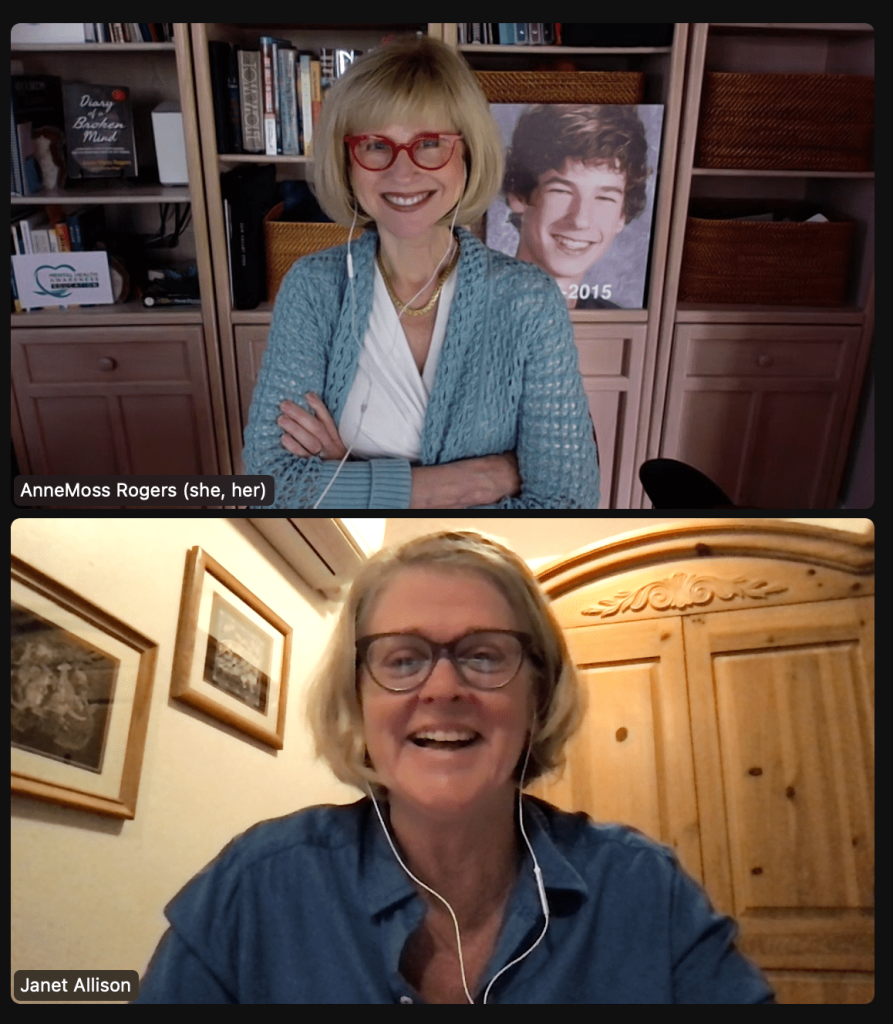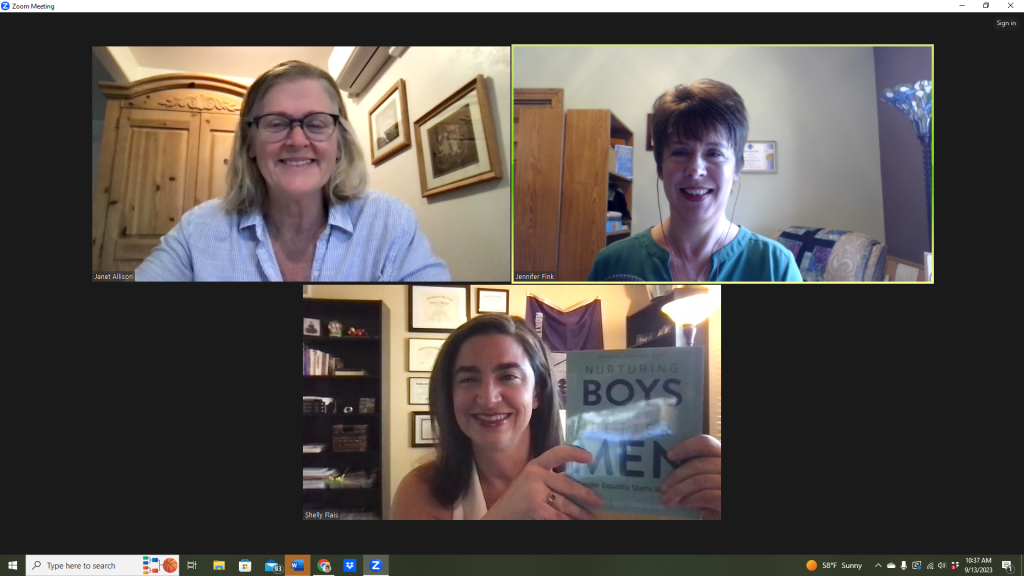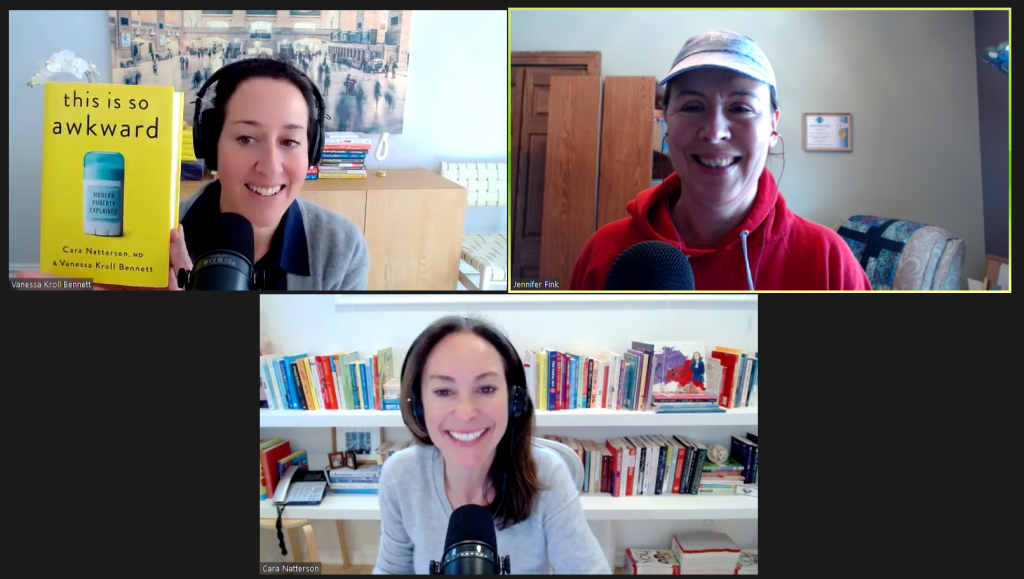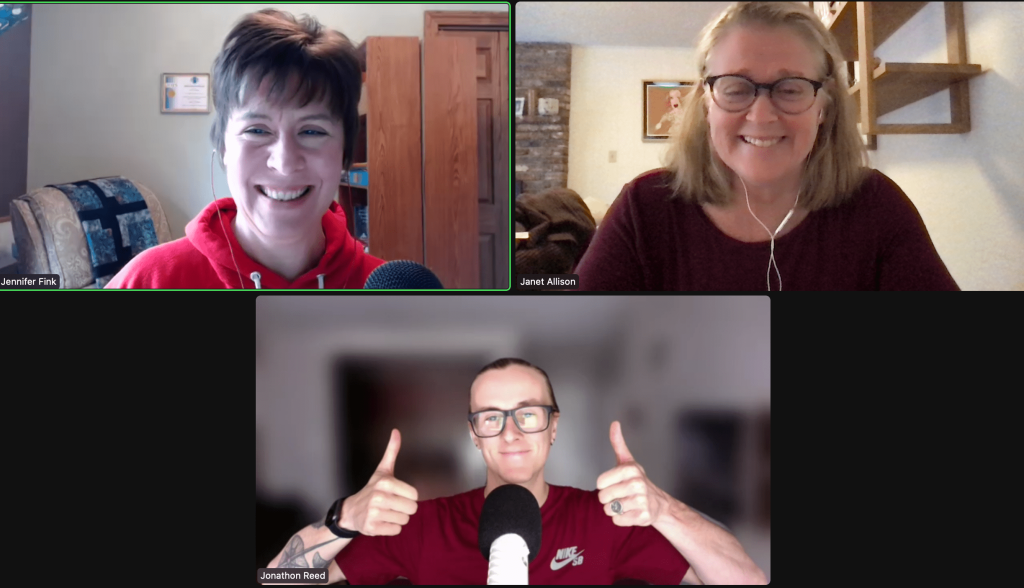
ON BOYS Podcast (Janet Allison, Jennifer LW Fink)
Explore every episode of ON BOYS Podcast
| Pub. Date | Title | Duration | |
|---|---|---|---|
| 05 Dec 2024 | Male Suicide & Mental Health: A Father’s Story of Love & Loss | 00:51:43 | |
We gotta talk about male suicide and mental health. If you or someone you know is having suicidal thoughts, you can call the 988 Suicide and Crisis Lifeline for help in the United States. Call 988 or 800-273-TALK (8255). The 988 Suicide and Crisis Lifeline is open 24 hours a day, every day. Services are also available en espanol. More than 39,000 boys and young men die of suicide in the United States each year. The male suicide rate is 4 times that of females’ – and that fact isn’t widely known. Although there’s been a lot of discussion of the youth mental health crisis and suicidal ideation in recent years, few people are talking about the fact that most of those who die of suicide are boys and young men. Anthony Tricarico was one of them. He was a “beautiful shooting star,” a young entrepreneur who loved snowboarding and bought a Camaro at age 16. Anthony died by suicide earlier this year, at age 16 1/2. From the outside looking in, Anthony had it all: a loving family, lots of friends, great grades, talent, and personality. His death was a shock to the community, as people realized, “If this could happen to Anthony, it could happen to any of us,” said his father, Neal Tricarico. Takeaways:
Links we mentioned (or should have) in this episode:AnneMoss Rogers on Suicide Prevention & Struggling Teens — ON BOYS episode Loving Someone With Suicidal Thoughts — ON BOYS episode What You Need to Know About Boys & Suicide — ON BOYS episode NAMI — National Alliance on Mental Illness (has support groups for parents!) Suicide & Autism — a report from the UK Neal's contact info:Email: neal@endurantmovement.com Instagram: @nealtricarico Facebook: https://www.facebook.com/neal.tricarico/ LinkedIn: https://www.linkedin.com/in/nealtricarico/ Sponsor Spotlight: IXLThe world’s most popular subscription-based learning site for K–12! Get 20% off at ixl.com/TODAY
Sponsor Spotlight: Hello FreshGet 10 FREE meals at HelloFresh.com/FreeONBOYS
Sponsor Spotlight: Boys Are GreatBoy-affirming merch! Our Sponsors: * Check out IXL and use my code TODAY for a great deal: https://www.ixl.com Advertising Inquiries: https://redcircle.com/brands Privacy & Opt-Out: https://redcircle.com/privacy | |||
| 12 Oct 2023 | Dr. Friendtastic on Boys & Friendship | 00:53:19 | |
Boys are twice as likely as girls to be friendless in middle school. And by adulthood, 1 in 5 men say they don’t have any close friends. Friendship matters for guys too – but clearly, boys face some unique challenges. “Boys & men have special challenges because of the image of how they’re ‘supposed to be,'” says Dr. Eileen Kennedy-Moore, a psychologist and author who may be better known as Dr. Friendtastic. Some boys, for instance, love rough & tumble play. But 40% of boys don’t like it & may struggle to connect with other boys who like to roughhouse. Additionally, adult women (including moms and teachers) often misinterpret “play fighting” as real fighting and stop it, even though the involved boys may be forging or solidifying friendships. “We have to be careful about being judgemental of boys’ play and boys’ imagination,” Eileen says. Supporting Boys’ FriendshipsOne of our fundamental jobs as parents, Eileen says, is “teaching them how to be in relationships.” Parents of young boys can help them connect with other children who have similar interests.You “have have a lot of influence on their social lives by creating opportunities,” she says. “Use your deep knowledge of your son & try to figure out what he enjoys doing that he can do with other kids.” That step is especially important if your son doesn’t naturally connect with the kids in his school or neighborhood. “I always, always, always recommend multiple groups of friends, if we can manage it,” Eileen says. “The ups & downs of friendship are inevitable, and we want them to have options.” You can also help boys understand how their actions and words contribute to conflicts, by calmly sharing your observations and asking them to share their perspective and imagine their friends’ perspective. If you son has hurt someone physically or emotionally, asking “what can you do to help him feel better?” both underscores the importance of relationship repair and helps him brainstorm ways to ease his friend’s pain. Keep in mind: Negotiation and compromise don’t become the main way kids’ resolve conflict until age 19. That doesn’t mean you can’t work on those skills before then; you should! It means that kids will continue to need our support to navigate friendship challenges for many years. Janet & her grandson w one of Eileen’s books In this episode, Jen, Janet, & Eileen (Dr. Friendtastic) discuss:
Links we mentioned (or should have) in this episode:drfriendtastic.com — includes links to the Dr. Friendtastic podcast eileenkennedymoore.com — includes free articles, videos, & links to all of Eileen’s books The Art of Roughhousing (w Dr. Lawrence Cohen) — ON BOYS episode Weapons Play is Okay — Building Boys blog post Common Sense Guidelines for “Gun Play” — Building Boys blog post Teaching Boys Social Skills — ON BOYS episode Sponsor Spotlight: Better HelpTherapy to help you live a more empowered life. Go to BetterHelp.com/onboys to save 10%
Sponsor Spotlight: Essential LabsUse code ONBOYS to save 15% Sponsor Spotlight: FactorUse code ONBOYS50 for 50% off Our Sponsors: * Check out IXL and use my code TODAY for a great deal: https://www.ixl.com Advertising Inquiries: https://redcircle.com/brands Privacy & Opt-Out: https://redcircle.com/privacy | |||
| 01 Aug 2024 | Understanding & Supporting Neurodivergent Boys | 00:55:36 | |
How do we best support neurodivergent boys? Approximately 12% of boys in the United States have been diagnosed with ADHD. About 3% are on the autism spectrum. 18% of boys have dyslexia. An untold number are gifted – &, of course, many boys are 2e, or twice-exceptional, with more than one of these conditions. Dr. Matt Zakreski was one of those boys. “My backpack always looked like a bomb went off, I always forgot there were tests but could study 3 minutes before the test and get a 92,” says Dr. Matt, author of Neurodiversity Playbook: How Neurodivergent People Can Crack the Code of Living in a Neurotypical World.His obvious-in-hindsight ADHD wasn’t noticed or address until he was in high school. Neurodiversity affects the intellectual, social, and emotional development of neurodivergent boys.”You have have a 10 year-old who’s intellectually 15 but socially, they’re 8,” Dr. Matt says, noting that neurodivergent boys need support both where they’re “ahead” of their similarly aged peesr and where they’re “behind.” Living with & Supporting Neurodivergent Boys“Be curious, not furious,” Dr. Matt advises. Instead of getting mad when your child does (or doesn’t do!) something, get curious. Don’t assume that the child is being defiant, disobedient, or trying to annoy you. Remind yourself, “this child has needs that I don’t necessarily understand right now.” Take some deep breaths or do whatever else you need to do to calm yourself first. Then, get curious: ask your child what’s going on. Listen carefully. You’ll likely learn more about your child & strengthen your relationship. Parenting neurodivergent kids will also include helping kids learn how to manage their attraction to things that feel good in the moment but may be harmful in excess. (Think: screens). Compromise — and demonstrating understanding & empathy for your kid’s interests and goals — can help. Neurodivergent-friendly environments are crucial for the success and well-being of neurodivergent children. You are not impairing their ability to cope or function in the broader world by considering your son’s unique needs. “Resiliency is not just working harder,” Dr. Matt says. “You build resiliency fastest and most generalizable through the things you like to do the most.” Giving boys plenty of opportunities to pursue the activities and problems that interest them also gives them opportunities to develop intellectually, socially, and emotionally. Takeaways:
Links we mentioned (or should have) in this episode:Neurodiversity Playbook: How Neurodivergent People Can Crack the Code of Living in a Neurotypical World, by Dr. Matt Zakreski Building Boys: Raising Great Guys in a World That Misunderstands Males, by Jen Sponsor Spotlight: ByHeartGet 10% off your first order using code ONBOYS at byheart.com
Sponsor Spotlight: Lumen Understand your metabolism! Go to lumen.me/ONBOYS to save 15% on Lumen
Sponsor Spotlight: ArmoireClothing rental subscription that makes getting dressed easier. Visit armoire.style/ONBOYS to get up to 50% OFF your first month. Jen in one of her favorite Armoire rentals Our Sponsors: * Check out IXL and use my code TODAY for a great deal: https://www.ixl.com Advertising Inquiries: https://redcircle.com/brands Privacy & Opt-Out: https://redcircle.com/privacy | |||
| 05 Oct 2023 | Parenting Beyond Power with Jen Lumanlan | 00:48:25 | |
Jen Lumanlan, author of Parenting Beyond Power: How to Use Connection & Collaboration to Transform Your Family, believes there’s a direct link between parenting and social justice. “The way that we raise our children — the daily interactions that we have with them that seem like they’re about discipline — actually support our children in learning about how power works in families and in our culture,” she says. “That shapes how they go out into the world and treat other people. If we want to move toward a vision of society in which everyone belongs, everyone feels free to be their full, true, whole self, then the work to do that begins at home, in parenting.” Easier Parenting + Powerful ChangeAll behavior is communication. Children’s “behavior that seems mysterious and overwhelming is communicating an unmet need. And when you can understand what that need is, you can support your child in meeting that need,” Jen says. Identifying and meeting your child’s needs can decrease conflict and increase family harmony. Questioning the stories you tell yourself about your child’s behavior is also helpful, as these stories may be inaccurate. It’s more helpful to get curious, as open-minded curiosity can point the way toward solutions that meet both your child’s needs and your own. “This is not just about meeting your child’s needs,” Jen says. “This is about seeing you, as the parent and caregiver, as a person that has needs. And seeing your child as a person with needs. We can hold those with equal thought, care, love, and attention.” In this episode, Jen, Janet, & Jen discuss:
Links we mentioned (or should have) in this episode:Parenting Beyond Power: How to Use Connection & Collaboration to Transform Your Family — and the World, by Jen Lumanlan yourparentingmojo.com –– Jen’s website (includes links to her needs quiz & Your Parenting Mojo podcast as well) Parenting, Privilege, & Building A Just World — ON BOYS episode Sponsor Spotlight: Better HelpTherapy to help you live a more empowered life. Go to BetterHelp.com/onboys to save 10%
Sponsor Spotlight: Essential LabsUse code ONBOYS to save 15% Sponsor Spotlight: FactorUse code ONBOYS50 for 50% off Our Sponsors: * Check out IXL and use my code TODAY for a great deal: https://www.ixl.com Advertising Inquiries: https://redcircle.com/brands Privacy & Opt-Out: https://redcircle.com/privacy | |||
| 08 Jun 2023 | Gemma Gaudette Talks About Raising Boys | 00:56:16 | |
Gemma Gaudette says “we don’t give boys enough credit.” Gemma, host of Idaho Matters & a mom of two sons (currently ages 11 & 15), knows (from personal experience!) that boys can be dramatic & sensitive, even though society has coded those traits as “feminine.” Yet many adults continue to insist on & impose so-called “masculine” expectations on boys, without recognizing the breadth of normal variation. Many adults also react to boys’ behavior based on their experiences with harmful adult males. “There’s an automatic assumption that boys are bad,” Gemma says. “There is an automatic assumption that a boy is a predator…I get very frustrated as a boy mom when we label all boys as ‘bad,’ ‘aggressive,’ as ‘having anger issues,’ because I think that when we do that, at some point, our boys believe that.” Helping boys navigate emotions & relationshipsLike most brothers, Gemma’s boys fight & bicker – often, physically. Given the age & size difference between her sons, she told her oldest son not to engage physically with the younger son. Sensing opportunity, the young one began tormenting his older brother. That led to a fascinating, revealing conversation between Gemma and her 15-year-old, which revealed her son’s deep love and concern for his younger brother. She validated his feelings and reiterated his right to self-protection. “We have to give boys room to breathe, and say that it’s okay sometimes feel aggression,” Gemma says. We then need to talk to them about healthy ways to cope with that feeling. We also need to establish boundaries and (reasonable) behavioral expectations, she says.. On giving boys more independenceParental fear can inhibit boys’ independence and hinder the development of confidence and competence. Boys need opportunities to assume responsibility and act autonomously in order to develop responsibility. “We’ve got to give them little baby steps toward autonomy,” Gemma says, “so when we release them ‘into the wild,’ they know how to make good choices.” As her boys have become teenagers, Gemma has shifted toward advising them and encouraging them to consider their options (and the likely consequences of each option) instead of simply telling them what to do. “They need me now to coach them,” she says, “because if we continue to tell them what to do, they’ll never know what to do when we’re not there.” In this episode, Jen, Janet, & Gemma discuss:
Links we mentioned (or should have) in this episode:Boy Moms as Boy Advocates — our previous ON BOYS episode w Gemma “Building Boys:” An Author Interview with Jennifer Fink — Gemma interviews Jen on Idaho Matters Raising Boys — CBSN documentary featuring Jen & Gemma Michael Gurian on Raising Boys –– ON BOYS episode Teacher Tom Talks About Boys, Emotions, & Play — ON BOYS episode The Art of Roughhousing (w Dr. Lawrence Cohen) — ON BOYS episode What Middle School Boys Need — ON BOYS episode w Jerome Hunter Our Sponsors: * Check out IXL and use my code TODAY for a great deal: https://www.ixl.com Advertising Inquiries: https://redcircle.com/brands Privacy & Opt-Out: https://redcircle.com/privacy | |||
| 21 Mar 2024 | Marc Hauser on Building Resilience | 00:51:50 | |
Building boys’ resilience can help them thrive, says Marc Hauser. Even if they’ve experienced a lot of adversity. “Adversity experienced by children is not a rare event, but a relatively common event,” says Marc, author of Vulnerable Minds: The Harms of Childhood Trauma & the Hope of Resilience. Adverse childhood experiences (ACEs) may include abuse, violence, neglect, poverty, and loss of a caregiver, and these experiences can negatively affect kids’ development. But although research linking ACEs to behavioral problems and decreased academic achievement has been around for more than two decades, many adults still do not understand that adverse experiences may be at the root of children’s behavioral issues. Boys who act up (or out) at school, at home, or in the community are frequently met with punishment, not understanding. Shifting your mindset from What’s wrong with you? to What happened to you? What’s happening? can be “transformative,” Marc says. The 5 Ts (& How They Impact ACEs)All adverse experiences are not equal. There are 5 Ts that can impact a child’s adverse experiences: Type – Poverty may impact a child differently than sexual abuse or loss of a caregiver, for instance. Tenure – How long is the child exposed to the adverse experience? Is it relatively fleeting, or a persistent issue over many months or years? Timing – When, during the child’s development, did they experience an adverse event? Some ACEs are particularly impactful if they occur during specific phases of development. Toxicity — This describes the severity of the event. Broadly speaking, severe physical abuse is typically more impactful than mild physical abuse. Turbulence – How unpredictable and uncontrollable is the event? In this episode, Jen, Janet, & Marc discuss:
Links we mentioned (or should have) in this episode:Vulnerable Minds: The Harms of Childhood Trauma & the Hope of Resilience, by Marc Hauser marcdhauser.com — Marc’s website “Whole Child, Whole Life” with Stephanie Malia Krauss — ON BOYS episode Adverse Childhood Experiences (ACEs) & Muscle Dysphoria — ON BOYS episode Sponsor Spotlight: ArmoireClothing rental subscription that makes getting dressed easier. Visit armoire.style/ONBOYS to get up to 50% OFF your first month. Jen’s Feb. Armoire haul Sponsor Spotlight: Dabble & DollopNatural bath products for kids. Visit dabbleandollop.com/onboys to get 20% OFF your first order! Sponsor Spotlight: American Blossom LinensGrown, spun, & woven in the USA. Use code ONBOYS to save 20%.
Sponsor Spotlight: WinonaMenopause care made easy! Visit bywinona.com/onboys & use code ONBOYS to get 25% your first order.
Sponsor Spotlight: HomeThreadsMake your home family friendly. Use this link to get 15% off. Our Sponsors: * Check out IXL and use my code TODAY for a great deal: https://www.ixl.com Advertising Inquiries: https://redcircle.com/brands Privacy & Opt-Out: https://redcircle.com/privacy | |||
| 14 Mar 2024 | How to Raise a Healthy Gamer | 00:52:42 | |
Yes, it’s possible to raise a healthy gamer. Even in a world saturated with video games. Fighting about video games, however, isn’t helpful, says Alok Kanojia (aka Dr. K), author of How to Raise a Healthy Gamer: End Power Struggles, Break Bad Screen Habits, and Transform Your Relationship with Your Kids. “Right now, there is an antagonistic relationship between most parents & their kids around video gaming,” Dr. K says. “You think they need to cut back; they don’t think they have a problem. Then, as parents start to institute limits, children will try to undermine them. Even if you ‘win’ in this scenario, you lose.” It’s more helpful, he says, to establish a collaborative relationship. Ask your child what he enjoys about gaming. Listen carefully to his answers, with an ear to understanding. Really work to understand what he gets from gaming, and ask questions to help him reflect on the role of video games in his life. This takes time — and it’s time well invested. “The time scale that a lot of parents operate on around video games is too small,” Dr. K says. Slow down, & don’t impose solutions. Instead, work on shared problem-solving. “This shifts the dynamic from ‘us vs them’ to ‘we’re on the same team.’ And the moment we make that shift, we see some beautiful changes.”
In this episode, Jen, Janet, & Dr. K discuss:
Links we mentioned (or should have) in this episode:How to Raise a Healthy Gamer: End Power Struggles, Break Bad Screen Habits, and Transform Your Relationship with Your Kids, by Alok Kanojia (aka Dr. K) www.healthygamer.gg — Dr. K’s website Why are Video Games So Important to Boys? — ON BOYS episode The Evolution of Esports — ON BOYS episode The Link Between Freedom & Video Games — BuildingBoys blog post Why Boys Play Video Games – BuildingBoys blog post Sponsor Spotlight: ArmoireClothing rental subscription that makes getting dressed easier. Visit armoire.style/ONBOYS to get up to 50% OFF your first month. Jen’s Feb. Armoire haul Sponsor Spotlight: HomeThreadsMake your home family friendly. Use this link to get 15% off. Sponsor Spotlight: American Blossom LinensGrown, spun, & woven in the USA. Use code ONBOYS to save 20%.
Sponsor Spotlight: Dabble & DollopNatural bath products for kids. Visit dabbleandollop.com/onboys to get 20% OFF your first order! Our Sponsors: * Check out IXL and use my code TODAY for a great deal: https://www.ixl.com Advertising Inquiries: https://redcircle.com/brands Privacy & Opt-Out: https://redcircle.com/privacy | |||
| 29 Aug 2024 | Back to School w a 5th Grade Teacher | 00:43:13 | |
It’s back-to-school time! What does this time of year look like for you & your family? Does your son dread back-to-school? Do you? Or, do you welcome that start of a new school year? Rob Vaughn, a 5th grade teacher, is one of the (too) few male elementary school teachers in the United States. Masculinity in 5th gradeWhen we asked Rob about his experiences in school when he was a boy, he told us, “I was a different kind of boy.” He says he wasn’t a “sporty jock,” but “quiet,” “introverted,” and “nerdy.” He remembers being shy and feeling overwhelmed. The boys in his class exhibit a broad range of masculinity. There are the “dude” and “jocks,” Rob says, and at least as many boys how are “not stereotypical boys.” These guys like video games and stuffed animals, imaginative play, and art. They are sensitive — and so are the boys who like sports. Kids today, he says, aren’t as strictly adhering to gender roles as kids were a generation ago. “I’m finding that boys and girls are working together really well & openly, at least in my school,” Rob says. “Some of them are really great friends & some of the boys are really into ‘girl stuff.’ And they’re good at talking about their feelings!” He is working to overcome lingering biases left over from his own childhood. Rob has noticed that his brain often thinks “tough kid” when he sees a boy in football gear, for instance. “I need to remember that they are still little kids and they are sensitive – even though they are acting like the celebrities they see,” he says. He’s noticed boys emulating the behavior of online influencers and celebrities, including in less-than-desirable ways, such as arguing with referees or reacting with over-the-top rage when they lose a game. “It’s almost like there are little boys who are trying to be men, only the men they’re trying to be aren’t actualy men; they’re parodies of men that we’re seeing on social media.” 5th grade boys, Rob says, are grappling with “who am I? and who am I supposed to be?” at the same time they’re “dealing with hurt feelings and missing their mom.” At the 5th grade level, boys tend to be less physically and emotionally mature than their female counterparts. At that age, boys are “not at a stage where they want to sit and discuss big ideas for as long” as the female students, Rob says. The boys, he says, “are operating at a level that’s a little sillier & younger.” Teaching boys and girls together — and honestly talking about development and challenges — can enhance understanding and empathy. Takeaways:
Links we mentioned (or should have) in this episode:Where Are All the Male Teachers? — Good Men Project article Lisa Damour on the Emotional Lives on Teens — ON BOYS episode Male Role Models — BuildingBoys post about male Olympians in the 2024 Summer Olympics Gender Equality, Boys, & Men — ON BOYS podcast featuring Richard V. Reeves (which coverrs redshirting boys in school) Erin’s Law — more info on the law that mandates child sexual abuse prevention Mark Rober — YouTuber Rob mentioned during our conversation Sponsor Spotlight: AvoilaUse code ONBOYS to save 10% when you shop Avoila Nourishing Face Oil Sponsor Spotlight: ByHeartGet 10% off your first order using code ONBOYS at byheart.com Our Sponsors: * Check out IXL and use my code TODAY for a great deal: https://www.ixl.com Advertising Inquiries: https://redcircle.com/brands Privacy & Opt-Out: https://redcircle.com/privacy | |||
| 06 Jul 2023 | Why Now is the Best Time to Raise Boys (w Michael Reichert) | 00:43:08 | |
Now is the best time to raise boys, says psychologist Michael Reichert, founding director of the Center for the Study of Boys’ & Girls’ Lives, author of How to Raise a Boy, and co-author of Equimundo’s recent State of American Men report. It doesn’t feel that way to many parents (or boys), though. Recently, for the first time in recorded history, a majority of expectant American parents expressed a preference for a female child because boys’ lives are “too uncertain.” “There’s such a cloud of pessimism that hangs over raising a boy,” Reichert says. But over the course of his career, Reichert has seen “a revolution in the willingness to apply science to the project of male development.” Researchers, educators, and parents are beginning to seriously think about how to best support boys. Connection is CrucialAt present, 2/3 of American men ages 18-23 says “no one really knows me well.” That’s a problem because humans who are not in relationship with others who know them well are dangerous to themselves and others. Human beings are relational learners, and boys, in particular, need connection to thrive. “Boys will give up trying if they don’t believe that someone really ‘get them’ and cares about how they’re doing,” Reichert says. Boys may appear to resist relationships (especially with teachers), but often, that resistance is grounded in past experience. By late elementary school, many boys have already concluded that most people don’t genuinely care about them — so, they resist adult efforts to connect, in an effort to protect themselves. “Consequently, the boy is misunderstood as someone who is unavailable for relationship,” Reichert says, which “compounds that problem and exacerbates the cycle.” Yet many parents believe that boys’ noisy resistance should be “met by an exercise of force or domination,” such as threat, punishment, scolding, or shaming, he says. But that’s precisely when boys most need connection and compassion. “The long game in parenting a boy who’s having trouble behaving is to help that boy express what’s driving his behavior” and help him develop emotional awareness and self-regulation skills, Reichert says. In this episode, Jen, Janet, & Michael discuss:
Links we mentioned (or should have) in this episode:michaelcreichert.com — Michael’s website (includes contact information) State of American Men report Is This the Best Time to Be Raising a Boy? — Building Boys Bulletin 5-29-23 I Won’t Learn From You: And Other Thoughts on Creative Maladjustment, by Herbert Kohl Here’s What I’ve Learned About Raising Boys in My 30 Years as a Child Psychologist — Self article by Michael How to Raise a Boy: The Power of Connection to Build Good Men — Michael’s book How to Raise a Boy (with Michael Reichert) — ON BOYS episode Chimp Empire — Netflix series Sponsor Spotlight: McEvoy RanchUse code ONBOYS15 to save 15% Sponsor Spotlight: June’s JourneyDownload via iOS or Android Our Sponsors: * Check out IXL and use my code TODAY for a great deal: https://www.ixl.com Advertising Inquiries: https://redcircle.com/brands Privacy & Opt-Out: https://redcircle.com/privacy | |||
| 25 Apr 2024 | Protein, Creatine, & Performance Enhancing Drugs | 00:44:07 | |
Protein, creatine, & performance enhancing drugs are common in boy world. In fact, most teen boys experiment with them at some point. Approximately 80% of teenage boys say they’ve used a protein supplement within the last 12 months, says Kyle Ganson, an assistant professor who researches boys and body image. “There’s a very broad list of performance enhancers, including dietary supplements and other substances that are perfectly legal and readily available to young people,” Kyle says. These substances are “purported to help you with your performance, with building strength, and with your appearance, but there’s not a lot of research on them and a lot of nuance to them.” Whether they’re looking for this info or not, boys are likely to encounter it online. There are a plethora of social media influencers who hawk supplements and explicitly discuss their workout routines, nutrition, and dietary supplements. Not all of that information is accurate. In many cases, these influencers gain financially when they promote supplements. Understanding boys’ motivation to use these substances is key to supporting them. An abstinence-only approach isn’t likely to work — and not necessary, in most cases, Kyle says. It’s better to engage boys in conversation and help them meet their goals. In this episode, Jen, Janet, & Kyle discuss:
Links we mentioned (or should have) in this episode:Adverse Childhood Experiences (ACES) & Muscle Dysmorphia — previous ON BOYS episode w Kyle Boys & Body Image – ON BOYS episode Zac Efron Admits Bulking Up for Baywatch “Messed” Him Up Rob McElhenney from “Always Sunny” Reveals How He Got So Ripped Safety Reporting Portal — site consumers can use to report adverse events Sponsor Spotlight: My Life in a Book
Sponsor Spotlight: FactorUse code ONBOYS50 for 50% off
Sponsor Spotlight: WinonaMenopause care made easy! Visit bywinona.com/onboys & use code ONBOYS to get 25% your first order. Sponsor Spotlight: ByHeartGet 10% off your first order using code ONBOYS at byheart.com
Sponsor Spotlight: ArmoireClothing rental subscription that makes getting dressed easier. Visit armoire.style/ONBOYS to get up to 50% OFF your first month. Our Sponsors: * Check out IXL and use my code TODAY for a great deal: https://www.ixl.com Advertising Inquiries: https://redcircle.com/brands Privacy & Opt-Out: https://redcircle.com/privacy | |||
| 15 Aug 2024 | Dr. Niobe Way on Reimagining Boys | 00:54:45 | |
Boys know that deep friendships are critical to mental health, says Dr. Niobe Way, a developmental psychologists who’s been studying boys for 40 years. But as boys move through their teenage years, many of them — as many as 70-80% — find it difficult to connect with other boys. Why? “Boy culture,” says Dr. Way, author of Rebels with a Cause: Reimagining Boys, Ourselves, & Our Future, noting that she uses that term to describe the stereotypical “boy” expectations which state that boys & men should be strong & indepedent. And in many cultures, that “boy culture” has spread to the culture at large. “Sucess, manhood, & modernity privilege the need for autonomy, not the need for connection,” Dr. Way says. The message most of us get is that maturity = self-sufficiency. That message may be harming the mental health of all of us, as humans as meant to be inter-dependent. Rebels, Dr. Way says, is not solely about boys & men, but about all of us & the culture in which we live. “Everybody needs relationships, connections, and friendships,” she says. Learning from boys to improve life for us all“We come into the world with natural relational intelligence, and we don’t value it,” Dr. Way says. So, we need to “nurture our 5-year-old capacity to look at each other with wonder, and rather than say, ‘what’s wrong with you?’, to say, ‘what can I learn from you, about you, & also about me?”” Dr. Niobe Way says that we in the United States (& many countries) over-attribute boys’ & mens’ behavior to biology. Yes, biology influences & affects male behavior. But culture also plays a critical role — as evidenced by the fact that other cultures throughout the world & history live out male friendships differently. “The reality is that we used to be a very different culture in terms of valuing our ‘hard’ and ‘soft’ sides,” she says. Recognizing the impact of culture frees us up to make necessary changes. Because as a 7th grade boy once told Dr. Way, “When we make things biology, we think we can’t change it.” All humans can be a-holes; all can be compassionate. All have relational intelligence that needs to be nurtured. “Kids do come into the world with different temperments,” Dr. Way says. “We shouldn’t immediately assume that boys who have trouble expressing their feelings are ‘troubled.'” She advises parents to “move past the idea that they [boys] have to express themselves to us,” noting that many kids directly resist parental pressure. Instead, we should help our children develop healthy, mutually-supportive relationships. Start by normalizing the desire to be deeply connected to other people. (Talk about it with your boys!) Engage in a dialogue about relationships — and that may include sharing some info about your own joys & challenges in relationships with fellow humans. Expresse curiosity, rather than judgment. Stop focusing so much time and attention on academics. Help kids build relationships instead. Takeaways:
Links we mentioned (or should have) in this episode:Rebels with a Cause: Reimagining Boys, Ourselves, & Our Future, by Dr. Niobe Way Deep Secrets: Boys’ Friendships & The Crisis of Connection, by Dr. Niobe Way Together: The Healing Power of Human Connection in a Sometimes Lonely World, by (U.S. Surgeon General) Vivek Murthy Pink Brain, Blue Brain: How Small Differences Grow Into Troublesome Gaps – and What We Can Do About It, by Dr. Lise Eliot When Boys Become Boys: Development, Relationships, and Masculinity, by Judy Chu Dr. Friendtastic on Boys & Friendship — ON BOYS episode Why Now is the Best Time to Raise Boys (w Michael Reichert) — ON BOYS episode
Sponsor Spotlight: ByHeartGet 10% off your first order using code ONBOYS at byheart.com
Sponsor Spotlight: ArmoireClothing rental subscription that makes getting dressed easier. Visit armoire.style/ONBOYS to get up to 50% OFF your first month. Jen in a fun overall from Armoire
Sponsor Spotlight: Lumen Understand your metabolism! Go to lumen.me/ONBOYS to save 15% on Lumen Our Sponsors: * Check out IXL and use my code TODAY for a great deal: https://www.ixl.com Advertising Inquiries: https://redcircle.com/brands Privacy & Opt-Out: https://redcircle.com/privacy | |||
| 02 May 2024 | FBI: Sextortion Targets Boys | 00:43:52 | |
Sextortion disproportionately affects boys. Between October 2021 & March 2023, the FBI & Homeland Security Investigation received more than 13,000 reports of online sextortion of minors. Most of the victims were boys. At least 20 boys have already died by suicide after experiencing sextortion. The FBI is so concerned about these trends that they reached out to ON BOYS podcast. Agents are working to shutdown sextorionists, but they know that parents play a key role in keeping boys safe too. “This trend of targeting boys for financial sextortion — where photos are taken or provided by the boy and then used to extort them for funds, under the impression that they will be shared online — is a scheme that seems to have emerged in the last few years,” says Chris Crocker, Acting Special Agent in Charge of the FBI St. Louis division. Protecting Boys From SextortionBoys ages 14-17 seem to be the primary targets. Sextortionists connect with boys via online platforms (including gaming sites and social media; they often represent themselves as attractive teenage girls, show a lot of interest, perhaps share a sexy photo of “themselves,” and then ask the boy to reciprocate. When he does, they threaten to share the image unless the boy sends them money. “The boys we’ve seen fall for these schemes are not dumb kids. They’re not kids that were necessarily obviously at any sort of risk. They’re good kids, good students, athletes, model kids, the kind of boys you would want your son to grow up to be,” Chris says. “These are not bad kids; these are good kids who make poor decisions. Every person is susceptible to doing that from time to time.” Talk to your boys about sextortion, so they will talk to you if it occurs to them (or a friend). Make sure they know that you will help them, not yell at them or punish them. “It is very important for parents to constantly reassure their children that they can come to them with something like this. Building that trust with your child is really important to avoiding these things – maybe not from occurring ever, but from reaching the worst possible outcome,” Chris says.”This is a really complex issue and there’s no easy way to handle it, but spreading awareness will prevent more of these outcomes.” Chris Crocker, Acting Special Agent in Charge of the FBI St. Louis Division To Report Sextortion:To contact the FBI, dial 1-800-CALL-FBI or use tips.fbi.gov to provide information online. The FBI’s partner at the National Center for Missing and Exploited Children provides guidance on how to remove nude photos online that were taken before a person was 18 years old: https://takeitdown.ncmec.org/ In this episode, Jen, Janet, & Chris discuss:
Links we mentioned (or should have) in this episode:Sextortion: A Growing Threat Preying on Our Nation’s Teens A Teen’s Death in a Small Michigan Town Led the FBI & Police to an Online Sexual Extortion Scheme This Boy’s Story Highlights Why Instagram’s Taking a New Stance on DMs Instagram to Crack Down on Teen Sextortion Maggie Dent: What Teenage Boys Really Need — ON BOYS episode Talk with Boys Like a PRO (about anything & everything!) — Jen & Janet’s upcoming course (starts May 7, 2024) Sponsor Spotlight: EZ MeltsGet a FREE 3-month supply of D3 w your 1st purchase at try.ezmelts.com/onboys Sponsor Spotlight: ByHeartGet 10% off your first order using code ONBOYS at byheart.com Sponsor Spotlight: My Life in a Book
Our Sponsors: * Check out IXL and use my code TODAY for a great deal: https://www.ixl.com Advertising Inquiries: https://redcircle.com/brands Privacy & Opt-Out: https://redcircle.com/privacy | |||
| 07 Nov 2024 | Amy Lang Discusses Puberty, Perimenopause, & Neurodivergence | 00:49:07 | |
Puberty, perimenopause, and neurodivergence affects brains and bodies. And in two or more of those things are going on in our household at the same time…well, things can get particularly challenging, says Amy Lang, founder of Birds & Bees & Kids. Amy & Janet discuss it all in this ON BOYS episode Links we mentioned (or should have) in this episode:The 3 Key Things Your Neurodivergent Boy Needs to Know about Sex (and 3 Things You Need to Know) Peri-menopause & Puberty: The Match Made in Heck – Get tickets here Tue Nov 19, 2024 7:00 PM – 8:00 PM PST Birds & Bees & Kids — Amy’s website Resources recommended by Amy: You Know, Sex: Bodies, Gender, Puberty, And Other Things Sex Talks With Tweens: What To Say & How To Say It BARK (inside US) Qustodio (monitoring outside US) Sex Ed for Neurodiverse Kids – ON BOYS episode w Amy Lang Keeping Boys Safe Online (w Amy Lang) — ON BOYS episode Talk to Boys About Sex (w Amy Lang) — ON BOYS episode Puberty, Perimenopause, & Midlife Parenting — ON BOYS episode Breakthrough Session for Family CoachingSchedule your no-cost call with Janet at https://boysalive.com/call Sponsor Spotlight: Hello FreshGet 10 FREE meals at HelloFresh.com/FreeONBOYS
Sponsor Spotlight: IXLThe world’s most popular subscription-based learning site for K–12! Get 20% off at ixl.com/TODAY
Our Sponsors: * Check out IXL and use my code TODAY for a great deal: https://www.ixl.com Advertising Inquiries: https://redcircle.com/brands Privacy & Opt-Out: https://redcircle.com/privacy | |||
| 25 Jul 2024 | Jonathon Reed: To Connect with Boys, Listen | 00:46:32 | |
To connect with boys, you must first listen, says Jonathon Reed, program manager for NextGenMen. Societal expectations of boys & men are gradually shifting. These shifting narratives are part of why it’s so important for adults to listen to boys. Adults’ interpretation and understanding of situations and interactions doesn’t necessarily reflect boys’ complex experiences, and neither does our language or approach. “We’ve got to look to them as the leaders in this conversation,” Reed says. Approach with CuriosityTeens (and humans of all ages) tend to shut down and stop listening to people who don’t seem to be listening. By adolescence, most boys know that the world isn’t simply black or white; they’re ready to explore the grey. If you want to connect you boys, approach conversations with curiosity. “Curiosity lays the possibility for an impactful conversation,” Reed says. Then, listen. Don’t dismiss what boys are telling you; dwell on the awkwardness they share and express. Remember, too, that boys won’t necessarily tell you about their problems. “If boys are struggling, often they’re struggling in silence,” Reed says. “There’s still a stigma against asking for help, particularly when it also means admitting a weakness or a vulnerability.” Create a sense of safety to connect with boys.
Links we mentioned (or should have) in this episode:NextGenMen website Raising Next Gen Men — ON BOYS episode Breaking the Boy Code — ON BOYS episode Teen Boys Emotional Lives — ON BOYS episode Creating Consent Culture: A Handbook for Educators, by Marcia Baczynski and Erica Scott Boys & Sex with Peggy Orenstein — ON BOYS episode Sponsor Spotlight: ByHeartGet 10% off your first order using code ONBOYS at byheart.com
Sponsor Spotlight: Dabble & Dollop Natural bath products for kids. Visit dabbleandollop.com/onboys to get 20% OFF your first order! Our Sponsors: * Check out IXL and use my code TODAY for a great deal: https://www.ixl.com Advertising Inquiries: https://redcircle.com/brands Privacy & Opt-Out: https://redcircle.com/privacy | |||
| 12 Sep 2024 | “Be A Man” Project Helps Us Understand Teen Boys | 00:42:35 | |
SheKnows’ “Be a Man” project is an “exploration of what it means to be a man today,” says Erika Janes, a “boy mom” and SheKnows editor-in-chief. Importantly, the project includes teen boys and gives them an opportunity to share their thoughts about manhood and masculinity. Perhaps unsurprisingly, the boys’ responses reflect our still-evolving understanding of gender. Crying, for instance, is still seen as a term with strongly feminine connotations, “but almost every boy we talked to said that they did cry,” Janes says. “They still feel like there’s a stigma to boys and men crying, but for the most part, almost of all of them said, ‘I cry at times.'” Boys, she says, “still get so many messages about traditional masculinity — ‘don’t cry, be strong, be a man.’ But they need to be allowed to express healthy emotion, to express vulnerability, to be able to cry and express sadness. We need to understand and accept that teen boys have all the same emotions as teen girls and that it’s healthier if they have outlets to express them.” Takeaways:
Links we mentioned (or should have) in this episode:We Asked 4 Teen Boys to Test New Fall Fragrances – Here’s What They Said – SheKnows article The Response to Tim Walz’s Son’s Proud Tears at the DNC is a Telling Look at Masculinity & Emotion — SheKnows article How Teen Boys View Male Celebrities & Masculinity, from Ryan Reynolds to Timothee Chalamet — SheKNow article Gender Equality, Boys, & Men — ON BOYS episode featuring Richard V. Reeves BoyMom Ruth Whippman on Reimaging Boyhood — ON BOYS episode Dr. Niobe Way on Reimagining Boys — ON BOYS episode Sponsor Spotlight: LumenUnderstand your metabolism! Go to lumen.me/ONBOYS to save 15% on Lumen Sponsor Spotlight: ArmoireClothing rental subscription that makes getting dressed easier. Visit armoire.style/ONBOYS to get up to 50% OFF your first month. Sponsor Spotlight: Avoila
Sponsor Spotlight: Artifact Uprising1st time buyers get 20% off (& returning customers get 15% off) with code ONBOYS
Sponsor Spotlight: IXLThe world’s most popular subscription-based learning site for K–12! Get 20% off at ixl.com/TODAY
Our Sponsors: * Check out IXL and use my code TODAY for a great deal: https://www.ixl.com Advertising Inquiries: https://redcircle.com/brands Privacy & Opt-Out: https://redcircle.com/privacy | |||
| 18 Apr 2024 | Advocating for Boys | 00:42:48 | |
Advocating for boys is one way to help boys and men thrive. At present, there are no governmental commissions working on behalf of boys and men in the United States. Not at the federal level & not at the state level. Even though boys lag behind girls in academic achievement and boys & men experience suicide, murder, drug & alcohol addiction, homelessness, incarceration, & early death at disproportionately high rates. And even though there are multiple commissions dedicated to addressing & advancing the needs of girls and women. Blair Daly, founder of the Washington Initiative for Boys & Men (WIBM) is working to change that. “The male population, I think, can be described as an under-advocated-for population group,” Blair says. “There’s very little organized advocacy.” That’s why he created WIBM, which combines advocacy journalism and grassroots political action to draw attention to the unique needs of boys and men in Washington state. As a result, Washington state may become the first state in the US to establish a Commission on Boys & Men. “Without a focus on the male population, we think a lot is being missed,” Blair says. Advocacy is necessary to focus attention on (& find solutions for) issues that disproportionately harm boys & men. In this episode, Jen, Janet, & Blair discuss:
Links we mentioned (or should have) in this episode:Washington Initiative for Boys & Men 7 Democrats, 7 Republicans Sponsor 2024 Commission on Boys & Men Legislation — article highlighting the diverse support for a WA Commission on Boys & Men Updated one-pager about WA legislation to develop a Commission on Boys & Men What is the Washington Initiative for Boys & Men? Blair Daly Explains — YouTube video Boys Moms as Boy Advocates — ON BOYS episode featuring Gemma Gaudette 50/50 Shared Parenting — ON BOYS episode Real Talk about Fentanyl, Opioids, & Marijuana — ON BOYS episode Talk with Boys Like a PRO (about anything & everything!) — Jen & Janet’s upcoming course (starts May 7, 2024) Sponsor Spotlight: My Life in a Book
Sponsor Spotlight: ArmoireClothing rental subscription that makes getting dressed easier. Visit armoire.style/ONBOYS to get up to 50% OFF your first month. Sponsor Spotlight: ByHeartGet 10% off your first order using code ONBOYS at byheart.com Sponsor Spotlight: FactorUse code ONBOYS50 for 50% off Our Sponsors: * Check out IXL and use my code TODAY for a great deal: https://www.ixl.com Advertising Inquiries: https://redcircle.com/brands Privacy & Opt-Out: https://redcircle.com/privacy | |||
| 25 Jan 2024 | Modern Male Puberty is Awkward | 00:41:23 | |
Modern male puberty starts earlier than you think. It may start as early as age 9 in boys – which means that the mood swings you’re seeing in your 10-year-old son could well be puberty-related. After all, as Cara Natterson & Vanessa Kroll Bennett write in their book This is So Awkward: Modern Puberty Explained, “The very first sign of puberty in most kids is a slamming door.” Most parents of boys aren’t prepared for male puberty. (And may be in denial when the first signs start appearing.) The earliest physical symptoms of male puberty aren’t obvious & typically occur around the same time your son starts seeking more privacy. So “you might not actually know when your kid is in puberty,” Vanessa says. Why your 10-year-old son may be acting like a 16-year-oldSex hormones fuel the physical changes that occur during puberty. (Testosterone is the primary male sex hormone.) These hormones also have a tremendous impact on our kids’ moods and well-being. And high levels of testosterone are linked to rage, as well as boys’ “swing to silence” during puberty. “When those hormones rise and fall, they do not do so gracefully,” says Cara, a pediatrician. “They do not do so slowly. It’s high, high, HIGH, rapid surge, and then you’re off the edge of the cliff and you’re pummeling to the floor. Those hormones drop and bottom out.” These swings can happen in a matter of hours. And that, Cara says, “is what you are seeing when your kid behaves like a jerk.” Kids don’t enjoy those sudden shifts and swings either. “Their brain is being bathed in a stew of hormones that is not familiar to them, and they don’t know how to manage how they feel as a result of this cocktail that is saturating all of the neurons in the brain,” Cara says. Boys’ brains are still maturing during puberty too. They don’t yet have fully mature emotional regulation systems. And while they need to learn how to control their behavior, it takes time (and, typically, many mistakes) to develop consistent behavioral control. So, parents, educators, and other adults need to extend grace and compassion to tweens and teens. “We have to give them the benefit of the doubt,” Vanessa says. “And give them a way back. They don’t feel good when they get that angry or emotional or react violently. They may feel ashamed or embarrassed.” Surviving your son’s adolescenceIt is completely normal to feel grief, doubt, anger, and fear as your son moves through puberty. During adolescence, boys (and girls) pull away from their parents. That separation is necessary and normal, but can feel like rejection to parents. It’s okay to grieve and feel sad. Take comfort, though, in the fact that boys typically “come back” to their parents as they reach the far side of puberty. Your son may well be annoying, thoughtless, disrespectful, disorganized, smelly, and messy during puberty. None of that means he’ll end up that way as an adult. And none of it means that you’re doing (or have done) something wrong. “The path to building kind, empathic, loving, thoughtful men is a very windy, bumpy road,” Vanessa says. “And at every step of the way, it can be really tempting to lose faith.” When a boy reacts angrily or violently, stay calm. Give them space. Connect with them after they’ve cooled down. During calmer times, teach & talk about emotions. Navigate puberty along your son, seeking support as needed. In this episode, Jen, Cara, & Vanessa discuss:
Links we mentioned (or should have) in this episode:This is So Awkward: Modern Puberty Explained, by Cara Natterson, MD & Vanessa Kroll Bennett lessawkward.com — Cara & Vanessa’s website (includes links to their books, newsletter, podcast, & talks) The Puberty Podcast — Cara & Vanessa’s podcast (Don’t miss Jen on their podcast — Building Boys with Jennifer Fink) Decoding Boys w Dr. Cara Natterson –– ON BOYS episode The Truth About Parenting Teen Boys — the famous BuildingBoys post about 14-yr-old boys being a**holes Puberty, Perimenopause, & Midlife Parenting — ON BOYS episode Guy Stuff: The Body Book for Boys, by Cara Natterson Guy Stuff Feelings: Everything You Need to Know About Your Emotions, by Cara Natterson Sponsor Spotlight: HomeThreadsMake your home family friendly. Use this link to get 15% off. Our Sponsors: * Check out IXL and use my code TODAY for a great deal: https://www.ixl.com Advertising Inquiries: https://redcircle.com/brands Privacy & Opt-Out: https://redcircle.com/privacy | |||
| 16 May 2024 | Opioids & Narcan: What You Need to Know | 00:44:56 | |
If you think you don’t know anybody who takes opioids, have you asked? Those are the words of Julia Pinksy, an Oregon-based mom who lost her son to an opioid overdose. “It’s been 10 years since he passed,” she says,”which seems unbelievable.” In the years since, Julia has devoted herself to opioid overdose education and prevention. Today, she teaches others about opioids & Narcan. Opioid Addiction Can Affect AnyoneOpioids don’t discriminate. Although some people may be more biologically or psychologcially susceptible to addition than others, anyone can become addicted. “Anyone — it doesn’t matter how intelligent, how educated, how knowledgable about drugs you are — it doesn’t stop your body or mind from becoming reliant on it,” Julia says. Narcan Saves LivesNaloxone (better known as Narcan) can immediately reverse the effects of opioids – & save lives. That’s why Julia thinks that every parent should have – & learn how to use — naloxone. It’s also a good idea to teach your kids how to use it.
In this episode, Jen, Janet, & Julia discuss:
Links we mentioned (or should have) in this episode:Max’s Mission – non-profit organization dedicated to overdose education & prevention Real Talk About Fentanyl, Opioids, & Marijuana — ON BOYS episode
Sponsor Spotlight: ByHeartGet 10% off your first order using code ONBOYS at byheart.com
Sponsor Spotlight: WinonaMenopause care made easy! Visit bywinona.com/onboys & use code ONBOYS to get 25% your first order. Sponsor Spotlight: EZ MeltsGet a FREE 3-month supply of D3 w your 1st purchase at try.ezmelts.com/onboys Sponsor Spotlight: Dabble & DollopNatural bath products for kids. Visit dabbleandollop.com/onboys to get 20% OFF your first order! Sponsor Spotlight: ArmoireClothing rental subscription that makes getting dressed easier. Visit armoire.style/ONBOYS to get up to 50% OFF your first month. Our Sponsors: * Check out IXL and use my code TODAY for a great deal: https://www.ixl.com Advertising Inquiries: https://redcircle.com/brands Privacy & Opt-Out: https://redcircle.com/privacy | |||
| 15 Feb 2024 | Jaclyn Greenberg on Parenting a Disabled Son | 00:40:38 | |
Jaclyn Greenberg often feels like she’s living a divided life. When her daughter was born, there was music and laughter in the birthing room. When her disabled son was born, there was no music. No laughter. In fact, everyone swept out of the room soon after the baby’s birth, taking him with them. Jacyln hadn’t even had a chance to say hello. Raising a disabled son alongside two typically-developing children (her daughter and youngest son) presents unique challenges and opportunities. “I’ve learned, from my son, how to advocate for and speak up for my son, and it’s taught me how to do that for myself and other people in my family,” says Jaclyn, a writer who’s working on a memoir that’s tentatively titled Keeping Us Together. “There’s something about having children that makes you brave in a way you haven’t been before.” Advocating for inclusionHenry, Jacyln’s disabled son, will likely never walk or talk. The world at large isn’t very accessible to those who don’t walk and talk (or see, hear, speak, sense, and act like most others), so it’s difficult for Jacklyn’s family to do things together. “I don’t want my husband to take my son and I take the other two. I don’t want us to have to divide and conquer,” she says. “I want us to experience life together.” Henry’s siblings have long found ways to include him. “They will go to people’s houses on Halloween and say, ‘My brother can’t come up here because you have stairs. Could you please come downstairs?'” Jacyln says. Others aren’t always accommodating, and too many people don’t make an effort to include people with disabilities. Some people even instruct their young kids to “look away” when they see a person with disabilities. These parents may believe they’re teaching their children not to stare at people who look or act differently, but it’s better, Jacyln says, to model curiosity and kindness. “To me, the worst thing someone can say is, ‘don’t stare; look away,’ because they’re teaching a child to ignore somebody who looks different rather than to learn about them and engage with them,” she says. “It’s okay to stumble. It’s okay to say the wrong thing. Ask what’s the right thing. Ask ‘how can I include you?'” In this episode, Janet & Jaclyn discuss:
Links we mentioned (or should have) in this episode:jaclyngreenbergwriter.com – Jaclyn’s website What My Children’s Relationship Taught Me About Accessibility & Inclusion — ScaryMommy article by Jaclyn How an Adaptive Game Controller Helps My Family Bond – Wired article by Jaclyn Sponsor Spotlight: Dabble & DollopNatural bath products for kids. Visit dabbleandollop.com/onboys to get 20% OFF your first order! Sponsor Spotlight: HomeThreadsMake your home family friendly. Use this link to get 15% off.
Sponsor Spotlight: American Blossom LinensGrown, spun, & woven in the USA. Use code ONBOYS to save 20%.
Our Sponsors: * Check out IXL and use my code TODAY for a great deal: https://www.ixl.com Advertising Inquiries: https://redcircle.com/brands Privacy & Opt-Out: https://redcircle.com/privacy | |||
| 12 Jan 2023 | Simplicity Parenting w Kim John Payne | 00:45:06 | |
Simplicity parenting, in many ways, is the antithesis of modern parenting. Simplicity parenting prioritizes a balanced schedule, predictable rhythm, and decluttered, information-filtered family environment, while most modern families rush from one activity to the next and live with crammed-full schedules in an information-soaked environment. Kim John Payne, author of Simplicity Parenting: Using the Extraordinary Power of Less to Raise Calmer, Happier, and More Secure Kids, was an undergrad psychology student when he first noticed striking similarities in the behavior of PTSD-affected soldiers, teenagers who grew up in abusive homes, and children who lived in warzones. “They were nervous, jumpy, hyperactive, and overstretched,” Payne says. Their nervous systems were hyperactive and hyper-attuned to the environment. In a few years, Payne began noticing similar behavior in children all over and surmised that there must be an “undeclared war on childhood,” as the kids exhibited all the signs of living in a war zone. But there were no battle lines, fronts, or bomb craters. Instead, these kids (and their families) lived quite ordinary lives. However, by that time, “overwhelmed family life had become the new normal.” And that new normal was not at all kid-friendly. “It became more and more obvious that children, and especially boys, were living in a child-hostile environment,” he says. As a result, kids’ nervous systems were “out of whack” and many kids were (and are) in a near-constant state of fight-flight-freeze-or-flock. Kids (and boys especially) often reacted “as if their lives depended on it,” when they were asked to do something as simple as putting a coat on. Simplicity is the Antidote to OverwhelmThe antidote to constant overwhelm is simple, Payne says. It’s simplicity. He advises parents to “dial back” and simplify their lives, and the results have been remarkable. “I can’t tell you how many parents have said, ‘I feel like I’ve gotten my boy back.'” Payne says. Many parents also notice that their boys are back to their “quirky selves.” It’s not easy, however, to push back against the status quo. “The difficulty comes when we look around our neighborhoods,” Payne says. “There are so many parents that have normalized what is not normal for a child’s nervous system.” But deliberately simplifying your lives — cutting out extraneous extracurricular activities, limiting screen time and info exposure, and prioritizing play, family, and connections, can pay dividends. “If we’ve built in time and balance in a boy’s life, and slowly built in time in nature, time with family, time with friends, that morphs into a strong inner loci” for the boy, Payne says. “As young men, they are much stronger and defined in who they are.” In this episode, Jen, Janet, & Kim discuss:
Links we mentioned (or should have) in this episode:SimplicityParenting.com — Kim’s website (includes links to the Simplicity Starter Kit, his podcast, and more) Simplicity Parenting: Using the Extraordinary Power of Less to Raise Calmer, Happier, and More Secure Kids, by Kim John Payne Video Game Addiction — ON BOYS episode Richard Louv on Animals, Nature, and Boys — ON BOYS episode Finding Ecohappiness –ON BOYS episode Sponsor Spotlight: Green ChefHealthy, Organic, Meal Kit Delivery Service. Use promo code ONBOYS60 to get 60% off & free shipping! 3 Green Chef meal kits Need help with your boys?Subscribe to Jen’s newsletter, Building Boys Bulletin Join Janet Allison’s real-time, monthly group coaching program, Decoding Your Boy Our Sponsors: * Check out IXL and use my code TODAY for a great deal: https://www.ixl.com Advertising Inquiries: https://redcircle.com/brands Privacy & Opt-Out: https://redcircle.com/privacy | |||
| 25 May 2023 | Puberty, Perimenopause, & Midlife Parenting | 00:45:18 | |
Midlife parenting often means navigating puberty and perimenopause at the same time. The average age of first parenthood has increased in recent years, so many moms now find themselves going thru perimenopause around the same time their kids hit puberty, according to a 2021 New York Times Parenting Newsletter article titled, When Your Home is a Hormonal Hellscape. And while thinking of your home as a “hormonal hellscape” may not be soothing, it’s refreshing to hear honest talk about midlife parenting. “Sometimes people try to soft pedal the challenges,” says Ann Douglas, author of the best selling MOTHER OF ALL BOOKS series and Parenting Through the Storm, a book about parenting children through psychological problems. “Let’s be real about it.” That’s exactly what Douglas does in her latest book, Navigating the Messy Middle: A Fiercely Honest & Wildly Encouraging Guide for Midlife Women. Similarities Between Puberty & Midlife“When you’re at midlife, you tend to start questioning everything,” Douglas says. “It’s a lot like the identity quest of adolescence.” Understanding that fact may make you more empathetic to the changes (and mood swings!) your child is experiencing. Many midlife adults and teens are asking themselves, How do I fit into the world? Midlife Parents Need Support & Community“I am such a believer in peer support,” Douglas says. “You want to talk to someone who knows just how hard it is – and who won’t judge — and that some from layers and layers of shared experience. We were never meant to go through any life stage on our own.” Support and community can be found online or in person. “You can process a lot of the thinking and learning together,” says Douglas, who believes that her younger self would be surprised to discover what a joyous stage midlife can be. “It literally feels like I was running a marathon for decades – and then suddenly, the race didn’t matter as much and it was more about feeling happy with who I am and my contributions to the world. I feel like I can enjoy and savor.” In this episode, Jen & Ann discuss:
Links we mentioned (or should have) in this episode:anndouglas.ca — Ann’s website Navigating the Messy Middle: A Fiercely Honest & Wildly Encouraging Guide for Midlife Women, by Ann Douglas When Your Home is a Hormonal Hellscape — NYT article Midlife Reimagined — Ann’s Psychology Today blog Parenting Through the Storm: Find Help, Hope, and Strength When Your Child Has Psychological Problems, by Ann Douglas Author Ann Douglas on How to Help Boys with Mental Health Problems — Building Boys post Trying Again: A Guide to Pregnancy After Miscarriage, Stillbirth, and Infant Loss, by Ann Douglas Sponsor Spotlight: Better HelpTherapy to help you live a more empowered life. Go to BetterHelp.com/onboys to save 10% Our Sponsors: * Check out IXL and use my code TODAY for a great deal: https://www.ixl.com Advertising Inquiries: https://redcircle.com/brands Privacy & Opt-Out: https://redcircle.com/privacy | |||
| 26 Oct 2023 | Supporting LGBTQ+ Kids | 00:45:01 | |
Supporting LGBTQ+ kids helps them become healthy adults. Jo Langford is a father, therapist, and author of The Pride Guide: A Guide to Social and Sexual health for LGBTQ Youth and Spare Me “The Talk!” (for both boy-identified and girl-identified youth). He helps kids and parents navigate sexuality, gender, media, and technology. Supporting LGBTQ+ KidsRule of thumb: Never out someone. The decision to disclose (or not disclose) one’s sexual orientation is an individual one. You should not out anyone without their consent, Jo says. Kids, however, may unintentionally or deliberately reveal private information about friends and acquaintances, and when that happens, the child whose privacy has been violated may feel distress. Sadly, some kids are still bullied for their sexual orientation or gender identity. One of our jobs as parents is “to protect our kids,” Jo says. Unfortunately, we can’t control the behavior of others, so “one way of doing that with a queer kid is letting them know that there are places and times that may be more dangerous to you,” he says. You may need to discuss things such as potential reactions to holding hands in public in particular cities or countries. Jo also says it’s important for parents to queer kids to become part of the queer community — to familiarize yourself with the history, culture, and traditions of the community. “Support the art and companies and jump into that with your kid,” he says. If you’re navigating evolving gender identity, give yourself grace. Even the most accepting, supportive parents, family members, and loved ones struggle with pronouns and language, especially at first. Do your best. Apologize when you get it wrong. Educate yourself. You can even say to your child, “Tell me what words to use. What do you want me to say when I talk to other people about you?” In this episode, Jen, Janet, & Jo discuss:
Links we mentioned (or should have) in this episode:behereos.net — Jo’s website, featuring his talks, speaking schedule & free downloads (including Porn: The Guide to a Healthy Grab-It Habit) Spare Me ‘The Talk!’: A Guy’s Guide to Sex, Relationship, and Growing Up, by Jo Langford The Pride Guide: A Guide to Sexual and Social Health for LGBTQ Youth, by Jo Langford 21st Century Sex Ed w Jo Langford –– ON BOYS episode Which Apps are APPropriate? (w Jo Langford) — ON BOYS episode
Sponsor Spotlight: Better HelpTherapy to help you live a more empowered life. Go to BetterHelp.com/onboys to save 10%
Sponsor Spotlight: Baby QuipUse code ONBOYS for $20 off your reservation of $100 or more.
Our Sponsors: * Check out IXL and use my code TODAY for a great deal: https://www.ixl.com Advertising Inquiries: https://redcircle.com/brands Privacy & Opt-Out: https://redcircle.com/privacy | |||
| 28 Mar 2024 | 50/50 Shared Parenting | 00:48:13 | |
50/50 shared parenting is good for boys & good for parents. But it’s not yet the norm, despite decades of research demonstrating the value of shared parenting. “It’s one part sexism and one part misunderstanding of the latest social science around what it best for kids,” says Emma Johnson, author of The 50/50 Solution: The Surprising Simple Choice that Makes Moms, Dads, and Kids Happier & Healthier After a Divorce. “”Thankfully, we are barreling toward a better future. No one’s really been able to quantify where or how often 50/50 is happening, but it’s definitely better than when I divorced 15 years ago.” Why 50/50 parenting should be the defaultChildren (and parents) thrive when they have regular, close connection. The exact number of minutes or days children and parents spend together isn’t as important as regular, routine interaction — and that’s what 50/50 shared parenting schedules provide. “Kids then know, intellectually, emotionally, and in their hearts that my mom and dad are both in it to win it. No one’s going to check out, slip out, or move away. No one’s got the upper hand,” Emma says. Shared parenting also gives both parents time to practice parenting and time to focus on work, adult connections, and self-care. And seeing both parents actively involved in parenting and work broadens children’s ideas of work and family. As Emma writes in her book, “An equal 50/50 parenting presumption is the one policy change that could dramatically help tens of millions of children, their families, and communities, without any additional funding.” In this episode, Jen, Janet, & Emma discuss:
Links we mentioned (or should have) in this episode:The 50/50 Solution: The Surprising Simple Choice that Makes Moms, Dads, and Kids Happier & Healthier After a Divorce, by Emma Johnson Single Parenting w Wealthy Single Mommy Emma Johnson –– ON BOYS episode Parenting Boys Thru Divorce — ON BOYS episode Is Shared Parenting Best for Boys After Divorce? — BuildingBoys post Moms for Shared Parenting –– an activist organization promoting equally shared parenting Sponsor Spotlight: ArmoireClothing rental subscription that makes getting dressed easier. Visit armoire.style/ONBOYS to get up to 50% OFF your first month. Jen’s Feb. Armoire haulSponsor Spotlight: Winona Menopause care made easy! Visit bywinona.com/onboys & use code ONBOYS to get 25% your first order.
Sponsor Spotlight: HomeThreadsMake your home family friendly. Use this link to get 15% off. Our Sponsors: * Check out IXL and use my code TODAY for a great deal: https://www.ixl.com Advertising Inquiries: https://redcircle.com/brands Privacy & Opt-Out: https://redcircle.com/privacy | |||
| 26 Sep 2024 | Helping Boys Thrive at Any Size | 00:47:19 | |
Kids can thrive at any size, says Jill Castle, a pediatric dietician, parent, and author of Kids Thrive at Any Size: How to Nourish Your Big, Small, or In-Between Child for a Lifetime of Health & Happiness. Takeaways:
Links we mentioned (or should have) in this episode:jillcastle.com — Jill’s website Kids Thrive at Any Size: How to Nourish Your Big, Small, or In-Between Child for a Lifetime of Health & Happiness — Jill’s latest book The Nourished Child — Jill’s podcast Picky Eaters, Family Meals, & Nutrition — ON BOYS episode Sponsor Spotlight: LumenUnderstand your metabolism! Go to lumen.me/ONBOYS to save 15% on Lumen Sponsor Spotlight: ArmoireClothing rental subscription that makes getting dressed easier. Visit armoire.style/ONBOYS to get up to 50% OFF your first month. Sponsor Spotlight: AvoilaUse code ONBOYS to save 10% when you shop Avoila Nourishing Face Oil
Sponsor Spotlight: Artifact Uprising1st time buyers get 20% off (& returning customers get 15% off) with code ONBOYS
Sponsor Spotlight: IXLThe world’s most popular subscription-based learning site for K–12! Get 20% off at ixl.com/TODAY
Our Sponsors: * Check out IXL and use my code TODAY for a great deal: https://www.ixl.com Advertising Inquiries: https://redcircle.com/brands Privacy & Opt-Out: https://redcircle.com/privacy | |||
| 17 Aug 2023 | Boys, Babies, & Breastfeeding | 00:42:58 | |
What do boys need to know about birth, babies, and breastfeeding? A lot more than we’re currently teaching them. According to the U.S. Centers for Disease Control & Prevention (CDC), 83.2% infants born in 2019 (the last year for which data is available) started out receiving some breast milk, and 78.6% were receiving any breast milk at 1 month. At 6 months, 55.8% of infants received any breast milk and 24.9% received breast milk exclusively. Breastfeeding rates tend to decline over time due to systemc medical and cultural barriers, says Lo Nigrosh, a birth doula and a international board certified lactation consultant. Think about it: Boys who don’t learn about birth, babies, or breastfeeding grow up into men who who don’t understand birth, babies, or breastfeeding. Some will become fathers who unwittingly undercut their partners’ confidence. Some will become employers and legislators who pass policies and laws that don’t consider the realities of birth and infant feeding. “Unless we specifically teach boys about breastfeeding” and birth, then they aren’t going to know about it or be able to provide the physical, logistical, and emotional support their future spouses, partners, and friends may need, says Lo, who also hosts The Milk Making Minutes podcast. Guys “aren’t just going to magically understand milk supply once they become adults, if we don’t start this education early and don’t expose them to all types of baby feeding.” In this episode, Jen, Janet, & Lo discuss:
Links we mentioned (or should have) in this episode:The Milk Making Minutes podcast — Lo’s podcast www.quabbinbirthservices.com – Lo’s website Building Boys: Raising Great Guys in a World That Misunderstands Males — Jen’s book Secrets of the Elephants — documentary series Buffy & Big Bird breasfeeding clip Sponsor Spotlight: Better HelpTherapy to help you live a more empowered life. Go to BetterHelp.com/onboys to save 10%
Sponsor Spotlight: Herbal-zzZsUse code ONBOYS25 to save 25% site-wide Sponsor Spotlight: Baby QuipUse code ONBOYS for $20 off your reservation of $100 or more.
Sponsor Spotlight: FactorUse code ONBOYS50 for 50% off Our Sponsors: * Check out IXL and use my code TODAY for a great deal: https://www.ixl.com Advertising Inquiries: https://redcircle.com/brands Privacy & Opt-Out: https://redcircle.com/privacy | |||
| 16 Nov 2023 | Listener Q & A: Punishment, Teenage Boys, & Letting Go | 00:38:27 | |
How do you make space for a teenage boy to make his own mistakes? Photo by olia danilevich via Pexels Especially when said teenager is frustrating, annoying, and contributing to family chaos? Sandra said: Teenager years are frustrating — wanting to tell him what do, yet I know he needs to make his own mistakes. Throw in toddler boy hitting/screaming at his brother…. She is definitely not the only parent wondering how to deal with a teen boys & balance the needs of siblings! That’s we tackled her question first in this edition of ON BOYS Listener Q & A. “It can be really hard to step back and let things unfold — let your teen be the one that has to navigate,” Janet says. She recommends talking about that with your teen. Say something like, “It is really hard to watch you make mistakes. I am here for you. I trust that you can figure this out on your own. And if need help, I am here.” Other listener questions include: My sons turned 18 yesterday and are in their last year of high school! I understand the natural and necessary pulling away from parents (especially moms) and establishing themselves as men. Is it possible to release them vs. them tearing away? If so, what does that look like? and How & what do you prioritize? I’m a single mom with 3 sons. I can’t do homework, home cooked meals, sports practice and read with them every night, so what to prioritize, who to prioritize and what to let go? and Should I punish the boys by taking away screen time if they get bad grades? Taking away screens is the only punishment that works. In this episode, Jen & Janet discuss:
Links we mentioned (or should have) in this episode:Listener Q & A: Supporting Sibling Relationships, Finding Common Ground, & More — Jan. ’23 ON BOYS episode Puberty, Perimenopause, & Midlife Parenting — ON BOYS episode The Art of Roughhousing (w Dr. Lawrence Cohen) — ON BOYS episode More Wisdom from Teacher Tom — ON BOYS episode How to Build Your Village — ON BOYS episode Sponsor Spotlight: Better HelpTherapy to help you live a more empowered life. Go to BetterHelp.com/onboys to save 10%
Sponsor Spotlight: Baby QuipUse code ONBOYS for $20 off your reservation of $100 or more. Our Sponsors: * Check out IXL and use my code TODAY for a great deal: https://www.ixl.com Advertising Inquiries: https://redcircle.com/brands Privacy & Opt-Out: https://redcircle.com/privacy | |||
| 23 Feb 2023 | Parental Accommodation & ADHD | 00:42:46 | |
Parental accommodation can limit the skill development of kids with (and without) ADHD. Many boys with ADHD or other executive function challenges struggle despite diagnosis, treatment, and well-intended help — in part because they and their family have received less-than-stellar advice and support. And because loving families often unwittingly accommodate (and reinforce) undesirable behavior. “Most families of children with ADHD are unintentionally misled when they receive a diagnosis,” says Ryan Wexelblatt, aka ADHD Dude. “They’re not provided with comprehensive information about what ADHD is, and they’re also directed to treatments with are not recommended by the American Academy of Pediatrics.” Parenting training is recommended as a first step for kids ages 6 and younger — and parent training should be delivered in conjunction with medication management and, if necessary, school support for kids older than age 6. Parent/child interactions are foundational to helping a child develop executive functioning skills. Parental Accommodation CycleUnfortunately, parents sometimes unintentionally reinforce the inflexibility and anxiety that’s common in kids with ADHD and executive function challenges. “Parental accommodation is when parents change their behavior to alleviate or avoid their child’s temporary distress,” Ryan says. It’s often done out of love — and fear. Doing so may avoid some conflict, but it allows unhelpful behaviors to continue. Although sparing your child pain and discomfort may seem like a kind, compassionate thing to do, you may be robbing your child of the opportunity to develop self-confidence and resilience. In fact, there’s a relationship between parental accommodation and “failure to launch,” which occurs when young people do not take on adult roles or increasing responsibility. But over-protection and accommodation have almost become societal norms.It’s difficult to push back against cultural pressure and parent differently than others. Many of us are also afraid of harming our kids. “There’s so much fear, from parents, that they’re going to somehow damage their child by putting expectations on them or requiring them to persevere through temporary discomfort,” Ryan says. “Children are not fragile. But when you treat them as if they are fragile, they receive the message that they are fragile.” Breaking the Parental Accommodation CycleYou can break this unhelpful cycle by asking yourself, What am I doing for my child that they could be doing alone? Your child might not yet have the skills to do the task independently, but when you identify what they could be doing, you can begin teaching them the necessary skills and gradually release responsibility. Don’t get sucked into the “negotiation vortex.” Don’t give an audience to negative behavior or maltreatment Reinforce (and praise) positive behaviors. And enlist supportive individuals who can help you and your child. Things may be rough when you first stop accommodating your child. But eventually, home life (and your relationship)will become more peaceful. Your child will also be more capable — and confident. In this episode, Jen, Janet, & Ryan discuss:
Links we mentioned (or should have) in this episode:ADHD Dude — the online home of Ryan’s ADHD work ADHD with Ryan Wexelblatt the ADHD Dude — ON BOYS episode Teaching Boys Social Skills –– our first ON BOYS episode w Ryan! It’s a Confusing Time to Be a Boy — another ON BOYS episode featuring Ryan Constant Chaos Parenting with ADHD — ON BOYS episode Helping Boys with Executive Function Challenges –– ON BOYS episode Nurtured Heart Institute — learn more about the Nurtured Heart approach mentioned by Ryan Sponsor Spotlight: StokkeSponsor Spotlight: Better HelpTherapy to help you live a more empowered life. Go to BetterHelp.com/onboys to save 10% Sponsor Spotlight: Green ChefHealthy, Organic, Meal Kit Delivery Service. Use promo code ONBOYS60 to get 60% off & free shipping! 3 Green Chef meal kits Sponsor Spotlight: Mommy MakeupClean beauty for busy women.Get a FREE color consultation – & then use promo code ONBOYS for 20% off your first order. Jen wearing Mommy MakeupNeed help with your boys?Subscribe to Jen’s newsletter, Building Boys Bulletin Join Janet Allison’s real-time, monthly group coaching program, Decoding Your Boy Our Sponsors: * Check out IXL and use my code TODAY for a great deal: https://www.ixl.com Advertising Inquiries: https://redcircle.com/brands Privacy & Opt-Out: https://redcircle.com/privacy | |||
| 04 May 2023 | Boys in School Task Force | 00:39:55 | |
Division 51 of the American Psychological Association launched a Task Force on Boys in School in 2020. Finally! Boys do worse in school, on average, than girls. Boys are more likely to be disciplined, suspended, or expelled than girls — even when their behavior is similar. They’re also less likely to graduate or go onto college and graduate from college. These facts aren’t new. Boys have been struggling for decades. “We are very late to the game,” says Christopher Reigeluth, PhD, an assistant professor in the Division of Child and Adolescent Psychiatry at Oregon Health and Science University and chair of the Boys in School task force. “Lots of people are late to the game in this regard. I can take some pride in the fact that we got this task force going and are trying to build awareness of this decades-long issue.” Why It’s Taken So Long to Address Boys’ Issues in SchoolBecause men still predominate in positions of power, many people assume boys are doing just fine. “The light doesn’t get shined on boys and men for their difficulties and issues and mental health struggles the way that it needs to, and those things can get overlooked. And have been overlooked for a long time,” Chris says. Additionally, he says, “the ‘guy code’ doesn’t want there to be acknowledgment of the fact that boys suffer, or boys feel vulnerability and have weaknesses and insecurities, even though everyone does.” Why Boys Struggle in SchoolEducators’ perceptions (and expectations) of boys affect boys’ educational experiences. “Boys as a group experience implicit biases against them,” Chris says. He also believes that boys’ socialization leads many of them to devalue school and education. “a lot of that comes from messages they get about how they should be as guys, and what society tells them is appropriate versus not appropriate behavior,” he says. Boys’ beliefs about masculinity can exacerbate their issues with school. What the Task Force is Doing – & What You Can DoThe task force has created (and is disseminating) a variety of fact sheets:
Parents and others concerned about boys can also vote for school board members and legislators who care about boys’ issues and education. We can also communicate the importance of education to our boys.Schools and teachers must also create safe, welcoming spaces for boys. In this episode, Jen, Janet, & Chris discuss:
Links we mentioned (or should have) in this episode:www.division51.net/taskforce-on-boys-in-school — Task Force website chrisreigeluth.com — Chris’ website The Gender Equation in Schools — ON BOYS episode How Microschools & Black Moms May End the School to Prison Pipeline — ON BOYS episode Forest Schools Get Boys Learning Naturally — ON BOYS episode Homeschool Hacks & How to Homeschool Boys –– ON BOYS episode Emails & Phone Calls from Teachers — ON BOYS episode How to Raise a Boy with Michael C. Reichert — ON BOYS episode The Masculinity Workbook for Teens: Discover What Being a Guy Means to You — workbook by Chris Our Sponsors: * Check out IXL and use my code TODAY for a great deal: https://www.ixl.com Advertising Inquiries: https://redcircle.com/brands Privacy & Opt-Out: https://redcircle.com/privacy | |||
| 23 Nov 2023 | Christopher Pepper Discusses Health Education and Boys | 00:37:52 | |
Health education varies greatly from place to place. Some boys receive great, age-appropriate, inclusive health education at school. Others do not. “It’s pretty inconsistent,” says Christopher Pepper, a health educator who currently teaches in the San Francisco Unified School District & is working on a book called TALK TO YOUR BOYS: 27 Crucial Conversations Parents Need to Have with Boys Today – and How to Start Having Them. “What’s covered is pretty different and how the subject is approached is handled very differently.” Young men’s health groups can be particularly helpful, as they give boys a chance to discuss masculinity and relationships as well as health topics. “There’s a real hunger among boys to talk about the real issues in their lives,” Christopher says. “Teenage boys are figuring out their attitudes about sexuality and gender, so having a place to talk about the celebrity that just came out as nonbinary” is helpful, he says. Adults with work with teenage boys should lead with curiosity and give boys space to express their thoughts and opinions. “Coming at someone with criticism, even if they’ve said something offensive” is not as helpful as asking questions, such as What do you mean by that? Adults who listen with genuine curiosity are better positioned to then provide additional context and feedback. Contrary to popular belief, “Boys have a lot of capacity and interest in talking about emotions and relationships,” Christopher says. “Boys are really hungry for those kinds of conversations and interested in exploring their values and ideas.” Unfortunately, many boys don’t get the opportunity to discuss those topics in a deep and rich way with their peers or caring adults. Prioritizing those conversations is one important thing adults can do to support boys’ health and development. In this episode, Jen, Janet, & Christopher discuss:
Links we mentioned (or should have) in this episode:Teen Health Today — Christopher’s Substack newsletter mrhealthteacher.com — Christopher’s website Teacher Tom Talks About Boys, Emotions, & Play — ON BOYS episode cdc.gov/healthyyouth/index.htm — CDC site with links to adolescent and school health resources (including the Health Education Curriculum Analysis Tool (HECAT) amaze.org — health, relationship, and sex education material (great to share w your kids!) The New Drug Talk — website w resources to talk about fentanyl Sponsor Spotlight: Baby QuipUse code ONBOYS for $20 off your reservation of $100 or more. Sponsor Spotlight: Better HelpTherapy to help you live a more empowered life. Go to BetterHelp.com/onboys to save 10% Our Sponsors: * Check out IXL and use my code TODAY for a great deal: https://www.ixl.com Advertising Inquiries: https://redcircle.com/brands Privacy & Opt-Out: https://redcircle.com/privacy | |||
| 24 Oct 2024 | Andrew Reiner: What Boys Need | 00:45:10 | |
Boys need support, not disdain In June 2024, Andrew Reiner, author of Better Boys, Better Men: The New Masculinity That Creates Greater Courage and Emotional Resiliency, published an article entitled “Our culture’s trashing of boys & men is having toxic consequences.” In this episode, he and Jen discuss what boys need & we can best support boys. | |||
| 11 Apr 2024 | Gifted & Twice-Exceptional (2E) Boys | 00:44:49 | |
Gifted & twice-exceptional boys often struggle in school, despite their intelligence & talents. In fact, boys who are gifted or twice-exceptional (which means they are gifted & have a learning disability) are considered “problem kids.” Teachers (and other adults) may make boredom as lack of focus, or assume that poor grades indicate lack of intelligence. For many 2E boys, their learning disabilities overshadow their giftedness; for others, their giftedness hides their learning disabilities, says Deborah (Deb) Gennarelli, a gifted education specialist who is also the author of Twice-Exceptional Boys: A Roadmap to Getting it Right. Intensity is part of giftedness — a part that frequently presents challenges for gifted & 2E boys. “Intensity is treated different in boys than in girls in this culture,” Deb says. Teachers & parents may punish or try to “fix” boys’ intensity, which typically only creates more problems. Gifted & 2E boys need support to thrive. “We can’t ignore the fact that students that have high intelligence look at things in different ways, behave in different ways, learn in different ways,” Deb says. “With the right support, these boys can go from surviving to thriving.” In this episode, Jen, Janet, & Deb discuss:
Links we mentioned (or should have) in this episode:Twice-Exceptional Boys: A Roadmap to Getting it Right, by Deborah Gennarelli, M.Ed. www.deborahgennarelli.com — Deb’s website Twice-Exceptional Boys (w Ramsey Hootman) — ON BOYS episode When Your Kid is the Classroom Problem Child — heartbreaking The Cut article about a 2E boy Twice Exceptional Students — info from the National Association for Gifted Children Twice Exceptional — classic Building Boys post Talk with Boys Like a PRO (about anything & everything!) — Jen & Janet’s upcoming course (starts May 7, 2024) Sponsor Spotlight: My Life in a Book
Sponsor Spotlight: FactorUse code ONBOYS50 for 50% off Sponsor Spotlight: ByHeartGet 10% off your first order using code ONBOYS at byheart.com Sponsor Spotlight: HomeThreadsMake your home family friendly. Use this link to get 15% off. Sponsor Spotlight: ArmoireClothing rental subscription that makes getting dressed easier. Visit armoire.style/ONBOYS to get up to 50% OFF your first month. Our Sponsors: * Check out IXL and use my code TODAY for a great deal: https://www.ixl.com Advertising Inquiries: https://redcircle.com/brands Privacy & Opt-Out: https://redcircle.com/privacy | |||
| 18 Jul 2024 | Dr. Lisa Damour: Connecting with Teens | 00:45:25 | |
Dr. Lisa Damour says that adults should consider the barriers boys face when it comes to emotional connection and expression. "Gender is such a huge force in how emotion is expressed, and perhaps even in how emotion is experienced," says Dr. Damour. "If a boy doesn’t feel that he has permission to let people know he’s hurting, it’s a good bet that he will discharge his unwanted emotions by acting out." To Connect with Teens, Learn About Their EmotionsDr. Damour served as an advisor on one of this summer's most popular films, Inside Out 2. (Haven't seen it yet? Go! It'll give you great insight into what's going on inside the brain of your teen.)
Boys may restrict their emotional expression due to societal pressures and gender norms. Dr. Damour highlights the stark contrast between the emotional expression allowed for girls and boys in our culture. Girls, she says, generally have a "wide emotional highway" to express a range of emotions, while boys are restricted to a "two-lane highway." And while it’s natural for humans to cry, boys who do so often face ridicule and social pressure, especially in environments like school. Dr. Damour suggests that parents and educators can help boys by creating spaces for physical and alternative forms of emotional expression. Unlike the cultural preference for verbal expressions of emotion, many boys and men (and some girls, women, and nonbinary individuals) find relief through physical activities. Activities like shooting basketball hoops, running laps, or even banging on an old filing cabinet can be effective ways to discharge and process emotions. "If it brings relief and does no harm, it’s a good coping strategy," Dr. Damour says. Additionally, music can be a powerful tool for many boys to express and regulate their emotions. Practical Steps for ParentsTo connect better with teenage boys and support their emotional development, parents can:
Links we mentioned (or should have) in this episode:drlisadamour.com – Lisa’s website The Emotional Lives of Teenagers: Raising Connected, Capable, and Compassionate Adolescents — Lisa’s latest book (get the free parent discussion guide here) Ask Lisa: The Psychology of Parenting – podcast hosted by Lisa Damour & Reena Ninan Teen Boys’ Emotional Lives — ON BOYS episode Managing Emotions — ON BOYS episode Nonverbal Communication with Boys — ON BOYS episode
Sponsor Spotlight: Lumen Understand your metabolism! Go to lumen.me/ONBOYS to save 15% on Lumen
Sponsor Spotlight: Dabble & Dollop Natural bath products for kids. Visit dabbleandollop.com/onboys to get 20% OFF your first order! Our Sponsors: * Check out IXL and use my code TODAY for a great deal: https://www.ixl.com Advertising Inquiries: https://redcircle.com/brands Privacy & Opt-Out: https://redcircle.com/privacy | |||
| 21 Dec 2023 | ON BOYS Most Popular Episode of 2023 | 00:43:09 | |
Our January 5 conversation with Mary Van Geffen, Parenting “Spicy” Boys, is ON BOYS’ Most Popular Episode of 2023. (And Jen’s sons’ least favorite! Gen Z defines “spicy” quite differently than we’re using it here.) Sure, this episode, released early in the year, had the benefit of time. But Mary’s message also resonates with frustrated and overwhelmed parents of boys. As she told us, “Spicy” boys are those who express themselves in big and loud ways, feel things intensely, and have energy to spare. They “have so much loyalty toward their own soul — and less to the adults’ agenda.” Mary’s audience continues to grow — she has over 286,000 Instagram followers! — because parents need help supporting their strong, spicy kids. You’ll want to listen to this episode more than once because a) it contains a lot of wisdom and b) because your spicy kids are now likely challenging you in ways they weren’t the first time you listened! In this episode, Jen, Janet, & Mary discuss:
Links we mentioned (or should have) in this episode:maryvangeffen.com – Mary’s website https://www.instagram.com/maryvangeffen/ — Mary on Instagram Highly Sensitive People Can Thrive — ON BOYS episode Highly Sensitive Boys with William Allen — ON BOYS episode Sensitive Boys (w Dr. Sandy Gluckman) — ON BOYS episode Brain-Body Parenting w Dr. Mona Delahooke — ON BOYS episode Positive Intelligence: Why Only 20% of Teams and Individuals Achieve Their True Potential and How You Can Achieve Yours — book by Shirzad Chamine (recommended by Mary) Sponsor Spotlight: ByHeartGet 10% off your first order using code ONBOYS at byheart.com Sponsor Spotlight: Better HelpTherapy to help you live a more empowered life. Go to BetterHelp.com/onboys to save 10% Our Sponsors: * Check out IXL and use my code TODAY for a great deal: https://www.ixl.com Advertising Inquiries: https://redcircle.com/brands Privacy & Opt-Out: https://redcircle.com/privacy | |||
| 20 Jun 2024 | Navigating Parenthood Beyond Stereotypes with Jaimie Kelton | 00:43:27 | |
Like most moms, Jaimie Kelton has “so many thoughts & fears on raising a boy.” “I question myself constantly,” says Jamie, host of The Queer Family podcast and mom to two children, a 10-year-old daughter & a 6-year-old son. She knows that gender is a social construct — and also knows that gender stereotypes are extremely powerful and prevalent. When she was pregnant with her son, Jamie says, she worried that she wouldn’t be able to connect with him. In this episode, Jaimie shares her journey and thoughts on raising a boy within a society that holds strong gender stereotypes, while also highlighting the unique challenges and joys faced by queer families. Key Topics:
Memorable Quotes:
Links we mentioned (or should have) in this episode:The Queer Family podcast — Jaime’s podcast Supporting LGBTQ+ Kids — ON BOYS episode Understanding Gender with Dr. Alex Iantaffi — ON BOYS episode Sponsor Spotlight: ArmoireClothing rental subscription that makes getting dressed easier. Visit armoire.style/ONBOYS to get up to 50% OFF your first month. Our Sponsors: * Check out IXL and use my code TODAY for a great deal: https://www.ixl.com Advertising Inquiries: https://redcircle.com/brands Privacy & Opt-Out: https://redcircle.com/privacy | |||
| 22 Dec 2022 | Best of 2022 | 00:46:19 | |
Which ON BOYS episodes were the Best of 2022? Some of our favorites! Chris Tompkins, author of Raising LGBTQ Allies: A Parent’s Guide to Changing the Messages from the Playground, recognized the power of unspoken messages when his then 6-year-old nephew asked him — an openly gay man — if the female friend with him was his girlfriend. In that moment, Chris realized that his nephew didn’t know he was gay. In conversations with adult family members the next day, Chris learned that most believed that his nephew wasn’t “old enough to understand.” 4. How Microschools & Black Moms May End the School to Prison Pipeline When they realized that schools wouldn’t change quickly enough to meet their kids’ needs, members of the Black Mothers Forum opened microschools, with an eye toward ending the school to prison pipeline. Existing school leaders and educators “really did not understand how to create a safe and supportive learning environment for our Black children,” says Janelle Wood, President of The Black Mothers Forum, Inc. 3. Myths & Misconceptions About Boys How many do you believe?
2. Picky Eaters, Family Meals, & Nutrition “I felt confident going into parenting!” says Rebecca Toutant, a registered dietician who began her career helping children with autism and sensory issues expand their palate. “I thought my boys would be these really wonderful, adventurous eaters and we’d sit down at the dinner table and have such peaceful family meals.” …Children are naturally “neo-phobic,” or hesitant to try new things, Rebecca says. That’s a protective instinct. So, our kids look to us to see how we’re interacting with and reacting to food — & many, many, MANY exposures to a food (as many as 10-20) for a child to accept it. It’s time to “move from focusing on behaviors to focusing on how each child perceives, understands, and interprets their world,” says Dr. Delahooke, a child psychologist and author of Brain-Body Parenting: How to Stop Managing Behavior and Start Raising Joyful, Resilient Kids and Beyond Behaviors: Using Brain Science and Compassion to Understand and Solve Children’s Behavioral Challenges. The autonomic nervous system is our “automatic nervous system,” she explains. It controls our bodies’ unconscious, non-voluntary reactions. Importantly, the triggers for each of us can be different. A few of our other 2022 favorites: Why are Video Games So Important to Boys? Helping Boys Develop Healthy Body Image Which were your favorite episodes of 2022? Need help with your boys?Subscribe to Jen’s newsletter, Building Boys Bulletin Join Janet Allison’s real-time, monthly group coaching program, Decoding Your Boy Our Sponsors: * Check out IXL and use my code TODAY for a great deal: https://www.ixl.com Advertising Inquiries: https://redcircle.com/brands Privacy & Opt-Out: https://redcircle.com/privacy | |||
| 14 Sep 2023 | Lisa Damour on The Emotional Lives of Teens | 00:45:13 | |
Dr. Lisa Damour is our go-to expert regarding the emotional lives of teens. She is a psychologist & author of The Emotional Lives of Teenagers: Raising Connected, Capable, and Compassionate Adolescents, and although her previous two books were a deep dive into the world of girls, she gets boys. Consider this sentence: If a boy “doesn’t feel that he has permission to let people know he’s hurting, it’s a good bet that he will discharge his unwanted emotions by acting out.” That one sentence – found on page 52 of the hardcover edition of her book – explains so much: Boys’ behavior at school. Door slamming, name calling and rule-breaking at home. Neighborhood fights that escalate into violence. “Gender is such a huge force in how gender is expressed, and perhaps even in how emotion is experienced,” Lisa says. And when it comes to emotions, boys in our culture “are absolutely cornered and given so little room to work,” she says. Girls enjoy a “wide emotional highway,” with a lot of latitude to feel and express an array of emotions, while “boys are given a two-lane highway.” Parents, teachers, and others who want to expand boys’ emotional expression, however, need to understand and respect the barriers boys face in their lives. Boys (still) pay a social price when they don’t adhere to the cultural script. Crying may be a natural, human emotion, but in most places, a 5th grade boy who cries at school will face uncomfortable social pressure and may be ridiculed. However, understanding the pressures boys face in society doesn’t mean we have to allow or tolerate rude, hateful, or unkind language or behavior. We can (and should) set expectations. Making Space for Boys’ Emotional ExpressionOne thing Lisa realized, while writing her book, is how strongly our cultural seems to prefer verbal expressions of emotion over physical expression. Many boys & men (and some girls, women, and nonbinary folks) use physical activity to express and process their emotions Shooting basketball hoops, running laps, or banging on an old filing cabinet are perfectly acceptable ways to discharging and expressing emotion. “If it brings relief and does no harm, it’s a good coping strategy,” Lisa says, noting that many boys also use music to express and regulate emotions. In this episode, Jen, Janet, & Lisa discuss:
Links we mentioned (or should have) in this episode:drlisadamour.com – Lisa’s website The Emotional Lives of Teenagers: Raising Connected, Capable, and Compassionate Adolescents — Lisa’s latest book (get the free parent discussion guide here) Ask Lisa: The Psychology of Parenting – podcast hosted by Lisa Damour & Reena Ninan Teen Boys’ Emotional Lives — ON BOYS episode Managing Emotions — ON BOYS episode Nonverbal Communication with Boys — ON BOYS episode Sponsor Spotlight: Better HelpTherapy to help you live a more empowered life. Go to BetterHelp.com/onboys to save 10%
Sponsor Spotlight: Smart for LifeUse code ONBOYS20 for 20% off your next order Sponsor Spotlight: Herbal-zzZsUse code ONBOYS25 to save 25% site-wide Sponsor Spotlight: Essential LabsUse code ONBOYS to save 15% Sponsor Spotlight: FactorUse code ONBOYS50 for 50% off Our Sponsors: * Check out IXL and use my code TODAY for a great deal: https://www.ixl.com Advertising Inquiries: https://redcircle.com/brands Privacy & Opt-Out: https://redcircle.com/privacy | |||
| 07 Mar 2024 | Listener Q & A: Getting Curious & Motivating Boys | 00:48:17 | |
How, exactly, does one “get curious” about their son without badgering him? That’s a big, important question, and that’s exactly what Jennifer wants to know: Lately, as he is resisting my normal questioning…I feel like I am now pushing him to evaluate his feelings, talk to me, or just engage…I have seen this cute, fun challenge of showing a person two pieces of paper. Each one has something different written in it. The recipient who is choosing the paper has no idea what is on the other side. At one time, this fun way to choose an adventure with me would have been exciting. Today was the exact opposite. He whined, then slithered down in his seat. Covered his face. I was taken aback. So I “got curious”. I asked him what was he feeling. “I don’t know”. I asked him if he thought I would put something un-fun on them. “I don’t know.” Why. Are you feeling like a lack of control? “I don’t know”. I probed a bit more, but you get the idea… Well-meaning mom + fun idea + teen boy = Disappointment & discomfort Timing may have been part of the problem. When talking to teenage boys, it’s best to avoid after-school surprises. It’s better to give them a heads-up; let them know, in advance, that you want to talk with (or do something) with them – and then, together, figure out good time. And as for getting curious, Jen reminds listeners that “getting curious” can be internal. Instead of interrogating your son, get quiet. Think about what might be going on under the surface. Read, listen, and learn about what may be going on with your son. Other questions we address include: My son had undiagnosed learning differences for many years. We have changed schools a few times, but his motivation is at an all-time low…I read in a lot of literature that kids often lack motivation because of their relationship with their parents. We generally have a good relationship, but we worry that he still feels we failed him all those years ago… and I get calls from the school that my boys misbehave…They usually get a consequence at school. How harsh should I follow up at home, do they need a second punishment? and If my junior has a winter dance coming up, and I think he should go, can I make him go or bribe him, or is this me living vicariously through him? and also: I’d like to hear something about the “other” teens. The ones who hide their insecurities behind perfection…So growing up they miss out on opportunities, camps, jobs… How do I help them become more confident? How do I help them see their value, take initiative and try new stuff? and I’m reluctant to let my kid go to summer camp… nervous… and how do I actually GET him to go? Note Jen’s sweater – it’s a rental from Armoire, one of our sponsors! In this episode, Jen & Janet discuss:
Links we mentioned (or should have) in this episode:Boost Boys’ Motivation –– our online course Listener Q & A: Punishment, Teenage Boys, & Letting Go — Q & A from late 2023 Needed: Boy-Friendly Schools — ON BOYS episode Debt Free Mom Discusses Family Finances –– ON BOYS episode Emails & Phone Calls from Teachers — ON BOYS episode Sleepovers, Camp, & Separation Anxiety — ON BOYS episode Building Boys Bulletin — Jen’s Substack newsletter Sponsor Spotlight: ArmoireClothing rental subscription that makes getting dressed easier. Visit armoire.style/ONBOYS to get up to 50% OFF your first month.
Sponsor Spotlight: Dabble & DollopNatural bath products for kids. Visit dabbleandollop.com/onboys to get 20% OFF your first order!
Sponsor Spotlight: HomeThreadsMake your home family friendly. Use this link to get 15% off. Our Sponsors: * Check out IXL and use my code TODAY for a great deal: https://www.ixl.com Advertising Inquiries: https://redcircle.com/brands Privacy & Opt-Out: https://redcircle.com/privacy | |||
| 28 Nov 2024 | Exploring the Gender Gap | 00:49:48 | |
If you heard anything at all about the 2024 U.S. presidential election, you likely encountered the term "gender gap." More than half of female voters (53%) voted for Kamala Harris; more than half of male voters (also 55%) voted for Donald Trump. Among young voters, the gender gap was even more pronounced: 61% of women aged 18-29 voted for Harris, compared to 49% of males. Societal and political gender gaps are widening in other countries as well. Mark Sutton, director of The Boys Initiative & author of How Democrats Can Win Back Men, joins us to explore the factors underlying the gender gap and ways we can help boys and men thrive alongside girls and women. Takeaways:
Links we mentioned (or should have) in this episode:Men & the 2024 Election -- Mark's Substack How Democrats Can Win Back Men: Why Understanding Male Voters & Their Issues is Vital for Democratic Victory -- Mark's book
Sponsor Spotlight: IXLThe world’s most popular subscription-based learning site for K–12! Get 20% off at ixl.com/TODAY
Sponsor Spotlight: Hello FreshGet 10 FREE meals at HelloFresh.com/FreeONBOYS
Sponsor Spotlight: Boys Are GreatBoy-affirming merch! Our Sponsors: * Check out IXL and use my code TODAY for a great deal: https://www.ixl.com Advertising Inquiries: https://redcircle.com/brands Privacy & Opt-Out: https://redcircle.com/privacy | |||
| 01 Feb 2024 | Needed: Boy-Friendly Schools | 00:51:34 | |
Most schools today aren’t boy-friendly. That’s one (big!) reason why boys lag behind girls academically. And why so many boys hate going to school. Tyler, a 16-year-old Texas boy, started struggling in middle school. Recess was no more. Classes were 90 minutes long. So, “he found it really hard to sit still in class,” says Julie Jargon, the Wall Street Journal Family & Tech columnist who interviewed Tyler for her series on boys and education. Now a high school student, Tyler suggests that “instead of making guys change the way they behave, maybe schools should change the way they’re structured.” Boy-friendly education practicesMovement helps humans remain alert and engaged. Simply shifting activities every 15 minutes or so can boost boys’ (and girls’) performance in the classroom. Time outside is helpful as well. Visual cues can help keep boys on track too. Boy-friendly schools also prioritize hands-on learning. “A lot of these things that are beneficial for boys are the same for girls. It’s not that girls need something vastly different,” Julie says. “The things that benefit boys also benefit girls. You can adopt boy-friendly practices in your school without being unfriendly to girls.” All students benefit from time to reflect on — and correct — academic, social, and behavioral mistakes. One of the all-boys schools Julie wrote about uses a restorative justice approach, she says. “Instead of just punishing them, they give boys an opportunity to talk about it and apologize,” Julie says. That approach helps boys hone their emotional intelligence and communication skills. In this episode, Jen, Janet, & Julie discuss:
Links we mentioned (or should have) in this episode:Boys are Struggling. It Can Take Coaches, Tutors, and Thousands a Month to Fix That — WSJ article by Julie Inside the Schools Where Boys Can Be Boys — WSJ article by Julie Losing a Grandparent Hurts Boys at School — Scientific American article Set Boys Up for School Success — ON BOYS episode Boys in School Task Force –– ON BOYS episode The Gender Equation in Schools — ON BOYS episode Boy Moms as Boy Advocates — ON BOYS episode featuring Gemma Gaudette Sponsor Spotlight: WinonaMenopause care made easy! Visit bywinona.com/onboys & use code ONBOYS to get 25% your first order. Sponsor Spotlight: Dabble & DollopNatural bath products for kids Sponsor Spotlight: HomeThreadsMake your home family friendly. Use this link to get 15% off.
Our Sponsors: * Check out IXL and use my code TODAY for a great deal: https://www.ixl.com Advertising Inquiries: https://redcircle.com/brands Privacy & Opt-Out: https://redcircle.com/privacy | |||
| 18 Mar 2023 | Michael Gurian - Raising Boys | 00:46:22 | |
When Michael Gurian published The Wonder of Boys in 1996, there "wasn't any national consciousness about boys' issues," he says. A quarter century later, there are dozens of books about boys, and parents, educators, and politicians alike are realizing that we must address boys' issues if we are to address the current epidemic of violence. Yet despite this progress, "we are still talking about ancillary concepts as to why these boys kill people rather than getting to the root causes of what's going on," Gurian says. We also "still don't systemically understand boys or how to raise them." What Parents Need to Know About Male DepressionMale depression, for instance, is often unrecognized (and untreated) because it is covert. A boy who immerses himself in video games, does just enough school work to get by, or uses drugs or alcohol may actually be depressed. As many as 10-20% of males may be experiencing unrecognized depression, and these males are having an outsized impact on our culture and lives, Gurian says. Parents, healthcare providers, and counselors need to learn about male development -- and they need to learn how to recognize and respond to the signs of male depression, which may include anger, irritability, withdrawal, and substance use. Parents and educators must also partner together to figure out how to help boys succeed in school. How Parents Can Partner with Schools to Help Boys Succeed"Parents and schools need to get really well connected around a specific question: How do we make sure the boys can succeed as well as the girls?" Gurian says. He suggests parents of boys connect with other parents of boys (from at least 3 other families) to create teams to share info, gather data, and approach school administration, expressing their concern and willingness to help address gender disparities in academics and discipline referrals. In this episode, Jen, Janet, & Michael discuss:
Our Sponsors: * Check out IXL and use my code TODAY for a great deal: https://www.ixl.com Advertising Inquiries: https://redcircle.com/brands Privacy & Opt-Out: https://redcircle.com/privacy | |||
| 29 Feb 2024 | Debt Free Mom Discusses Family Finances | 00:55:19 | |
“Debt Free Mom” (aka Carly Hill) knows that family finances can be a fraught topic. Yet family finances affect every aspect of family life: A family’s stress level, as well as housing, education, and recreational choices. Family finances play into decisions such as rec sports or travel team? Private school or public school? And, of course, our attitude and money habits affects our children as well. Our boys learn a lot about money management — both good and bad! – from us. On Budgeting & Money Management“A budget is simply a tool, a way to arrive at an outcome that’s not going to happen by accident,” Carly says. Step one in budgeting (or creating a money plan) is to understand the gap — either positive or negative — between your income & expenses. “Any financial goal that we have is all going to be driven by the gap between our income and our expenses.” You may not have a financial cushion; your expenses may regularly exceed your income. That’s stressful. And stress and overwhelm can cause us to freak out and/or ignore our financial situation. Instead, Carly recommends radical acceptance. “We have to radically accept what’s already happened,” she says. You can’t go back and un-borrow your student loans or choose a different job. Take some deep breaths and look at your real numbers — how much money you owe and how much you have. (Often, Carly says, things aren’t as dire as people think.) Once you know your numbers, do NOT jump to creating a budget. Instead, think about what you’re trying to achieve. What goal would you like to work towards? A good first goal is to consistently spend less than you make. Don’t worry about saving or paying down debt yet. Next, focus on your financial circle of influence. You can’t control grocery prices; you can control how quickly you press “buy” online. If you’re struggling to see a path forward — if you’ve already cut expenses and don’t see a way to increase your income — it may be wise to get outside advice. “We’re often too close to our own situation to see an alternate path,” Carly says. An outside advisor (who may be a friend or financial professional) isn’t emotionally involved and may be able to see alternatives that you can’t. In this episode, Jen, Janet, & Carly discuss:
Links we mentioned (or should have) in this episode:debtfreemom.co — Carly’s website Teach Boys Money Management — ON BOYS episode Sponsor Spotlight: ArmoireClothing rental subscription that makes getting dressed easier. Visit armoire.style/ONBOYS to get up to 50% OFF your first month. Jen’s Feb. Armoire haul Sponsor Spotlight: Dabble & DollopNatural bath products for kids. Visit dabbleandollop.com/onboys to get 20% OFF your first order! Sponsor Spotlight: WinonaMenopause care made easy! Visit bywinona.com/onboys & use code ONBOYS to get 25% your first order. Sponsor Spotlight: HomeThreadsMake your home family friendly. Use this link to get 15% off.
Our Sponsors: * Check out IXL and use my code TODAY for a great deal: https://www.ixl.com Advertising Inquiries: https://redcircle.com/brands Privacy & Opt-Out: https://redcircle.com/privacy | |||
| 01 Jun 2023 | Advanced Parenting with Dr. Kelly Fradin | 00:41:02 | |
Advanced parenting may involve guiding a child through a mental health crisis. Or parenting a child with a chronic medical condition. Or both. It’s what parents must do when a child’s needs go beyond basic feeding, sheltering, loving, and nurturing. As a childhood cancer survivor and complex care pediatrician, Dr. Kelly Fradin knows that it’s difficult for parents to balance kids’ physical and mental challenges with the routine logistics of parenting and family life. Healthcare providers and mental health clinicians often don’t have the time they’d like to support parents navigating these complex challenges, so she write a guidebook to help parents: Advanced Parenting: Advice for Helping Kids Through Diagnoses, Differences, & Mental Health Challenges. Parenting Boys Through Health Challenges“Boys struggle just as much as girls with having a challenge that separates them from their friends,” Dr. Kelly says. But while many girls will spontaneously reach out for support and share their emotions with their friends and family, boys will likely need extra parental support to develop their emotional vocabulary. “If they have that emotional literacy of being able to identify and talk about their feelings, they can communicate on a more sophisticated level,” she says, noting that parents (and other adults) must also give boys space and time to experience their emotions. Boys, Dr. Kelly says, need to know that “they don’t have to be strong all the time.”
In this episode, Jen, Janet, & Kelly discuss:
Links we mentioned (or should have) in this episode:drkellyfradin.com — Dr. Kelly’s website Advanced Parenting: Advice for Helping Kids Through Diagnoses, Differences, & Mental Health Challenges, by Dr. Kelly Fradin Advanced Parenting podcast series You Can Thrive with Chronic Illness and Special Needs — ON BOYS episode Parenting Thru Health Challenges — ON BOYS episode Sponsor Spotlight: Better HelpTherapy to help you live a more empowered life. Go to BetterHelp.com/onboys to save 10%
Our Sponsors: * Check out IXL and use my code TODAY for a great deal: https://www.ixl.com Advertising Inquiries: https://redcircle.com/brands Privacy & Opt-Out: https://redcircle.com/privacy | |||
| 09 Mar 2023 | Loving Someone With Suicidal Thoughts | 00:50:01 | |
If you or someone you know is having suicidal thoughts, you can call the 988 Suicide and Crisis Lifeline for help in the United States. Call 988 or 800-273-TALK (8255). The 988 Suicide and Crisis Lifeline is open 24 hours a day, every day. Services are also available en espanol. Suicidal thoughts are common. In the U.S. alone, each year, more than 15 millions adults & teens struggle with serious thoughts of suicide. Knowing how to respond to suicidal thoughts is a crucial skill for all parents & educators. One of the best, most effective things you can do to reduce suicide risk to directly ask those you’re concerned about if they’re having suicidal thoughts. That, of course, is easier said than done. It’s scary to ask about suicide, and scary to admit thoughts of suicide. To make it easier, you can say something like, “A lot of people have suicidal thoughts sometimes. Do you ever have thoughts like that?” “We don’t want to normalize suicide, but we can normalize thinking about suicide,” says Stacey Freedenthal, a licensed psychotherapist and author of Loving Someone with Suicidal Thoughts: What Family, Friends, and Partners Can Say & Do. Some people say “no” when the answer is really yes. So it’s a good idea to follow up with, “If you were having thoughts of suicide in the future, do you think you’d tell me?” Listen calmly and bravely, and keep the conversation going if you can. “Be curious, not judgmental,” Freedenthal says. Why Calling 911 or Heading to ER May Not Be a Good IdeaIf someone is not in immediate, acute danger — think firearm in hand or pills ingested — don’t call 911 or head to the hospital. Instead, talk. And listen. Empathetic statements like, “that sounds so hard” are far more useful than comments such as, “What are you talking about? You have a great life!” Emergency help can actually be counterproductive. It may lead to long waits and little help. And the affected individual may become angry and less likely to trust you with suicidal thoughts in the future. So, if the situation is not acutely dangerous, call 988, the Suicide and Crisis Lifeline, instead. It’s available 24/7 and trained responders can answer your questions, help you establish a safety plan, and connect you with local resources. In this episode, Jen, Janet, & Stacey discuss:
Links we mentioned (or should have) in this episode:Loving Someone with Suicidal Thoughts: What Family, Friends, and Partners Can Say & Do, by Stacey Freedenthal — every home & school needs a copy of this book staceyfreedenthal.com — Stacey’s personal page speakingofsuicide.com — Stacy’s web page, packed with tons of free resources What You Need to Know About Boys & Suicide — ON BOYS episode Suicide Rates are Rising — Here’s What Parents Can Do — Your Teen magazine article by Jen Sponsor Spotlight: StokkeUse promo code RegisterWithStokke at checkout for a FREE highchair pad Sponsor Spotlight: RightStart MathematicsRightStart Math Card Games kit makes math fun! Use coupon code OB23RSMPC at RightStartMath.com to get 10% off Sponsor Spotlight: Better HelpTherapy to help you live a more empowered life. Go to BetterHelp.com/onboys to save 10% Sponsor Spotlight: Green ChefHealthy, Organic, Meal Kit Delivery Service. Use promo code ONBOYS60 to get 60% off & free shipping! 3 Green Chef meal kits Our Sponsors: * Check out IXL and use my code TODAY for a great deal: https://www.ixl.com Advertising Inquiries: https://redcircle.com/brands Privacy & Opt-Out: https://redcircle.com/privacy | |||
| 15 Dec 2022 | Youth Sports Linda Flanagan | 00:43:04 | |
Linda Flanagan says youth sports are out of control. And she should know. Flanagan is a former youth athlete, cross country coach, mother of a young athletes, and the author of Take Back the Game: How Money and Mania are Ruining Kids' Sports - and Why It Matters. “If your goal is to cultivate a well-adjusted, responsible child who contributes to the family, then limiting T-ball, youth soccer & it’s ilk may be wisest," she says in her book. "Western parenting customs that put the child at the center - usually with the goal of engendering happiness among the young – also fragment families and erode self-sufficiency.” That's quite a different point of view than the traditional "sports teaches kids teamwork and builds character" POV. But while sports can teach teamwork and build character, so do other activities, such as working together as a family. And youth sports in the 21st century often include significant downsides, including massive investments of time and money, over-emphasis on children's achievements, and risk of over-use injuries. In this episode, Jen, Janet, & Linda discuss:
Links we mentioned (or should have) in this episode:Take Back the Game: How Money and Mania are Ruining Youth Sports - and Why It Matters, by Linda Flanagan lindaflanaganauthor.com -- Linda's website Coaches Speak About Youth Sports -- ON BOYS episode Sports & Masculinity -- ON BOYS episode Healthy Sports Parenting -- ON BOYS episode Hunt Gather Parent with Michaeleen Ducleff -- ON BOYS episode Need help with your boys?Subscribe to Jen’s newsletter, Building Boys Bulletin Join Janet Allison’s real-time, monthly group coaching program, Decoding Your Boy Our Sponsors: * Check out IXL and use my code TODAY for a great deal: https://www.ixl.com Advertising Inquiries: https://redcircle.com/brands Privacy & Opt-Out: https://redcircle.com/privacy | |||
| 23 May 2024 | Connecting With Boys & Answering Your Questions | 00:51:49 | |
In this episode, Jen & Janet discuss:
Links we mentioned (or should have) in this episode:Emails & Phone Calls from Teachers — ON BOYS episode Why Boy Moms Need Mentors Too — ON BOYS episode Sponsor Spotlight: Dabble & DollopNatural bath products for kids. Visit dabbleandollop.com/onboys to get 20% OFF your first order! Sponsor Spotlight: ArmoireClothing rental subscription that makes getting dressed easier. Visit armoire.style/ONBOYS to get up to 50% OFF your first month. Sponsor Spotlight: ByHeartGet 10% off your first order using code ONBOYS at byheart.com
Our Sponsors: * Check out IXL and use my code TODAY for a great deal: https://www.ixl.com Advertising Inquiries: https://redcircle.com/brands Privacy & Opt-Out: https://redcircle.com/privacy | |||
| 03 Aug 2023 | Phyllis Fagell Discusses Middle School Superpowers | 00:38:22 | |
Middle school students are “superheroes in the making,” says Phyllis Fagell, a school counselor, mom, and author of Middle School Superpowers: Raising Resilient Tweens in Turbulent Times. If that sounds crazy to you, consider this: middle schoolers and superheroes “both get catapulted out of a world they know and sent on a jarring (& occasionally scarring) journey. At the start…they’re strangers to themselves and can feel as if their own bodies have betrayed them,” Phyllis says. Middle School Boys Need Time to MatureRemember: boys’ mature cognitively, physically, and emotionally at a different pace than girls. Generally speaking, boys take longer to mature, so it’s not fair (or helpful) to expect tween boys to consistently think, act, and behave in a mature manner. Many middle school-aged boys have difficulty regulating their emotions, organizing their spaces and time, and communicating with others, but that doesn’t mean those same boys won’t grow up to be amazing humans. They simply need time to grow — and appropriate love and support. “Middle school boys are not the final product,” Phyllis says. “Their skills are still developing, they’re still figuring out who they are, and what they need and can give. Our job is to approach them with curiosity, rather than judgment.” “Super Bounce” & How Boys Can Learn From MistakesAlthough their actions and behavior may suggest otherwise, “every middle school boy wants to do the right thing, wants to be seen as capable and kind and compassionate,” Phyllis says. “They do not want adults [or their peers] to think poorly of them.” Their impulsivity and immaturity sometimes (maybe even often) leads them to behave in ways that hurt others (or themselves). While it’s important to not shield boys from the consequences of their actions, punishment is not the best way to help middle school boys learn from mistakes or poor choices. “If you are too harsh or punitive — especially if the consequence doesn’t match or have any kind of logical connection to whatever the mistake was — that kid is going to get stuck in shame,” Phyllis says. “We want them to learn, not get so stuck or paralyzed that they can’t learn.” Instead of berating boys for their actions, encourage self-reflection and restitution. One question that can help boys self-reflect on their behavior: Were you your best self? In this episode, Jen, Janet, & Phyllis discuss:
Links we mentioned (or should have) in this episode:PhyllisFagell.com — Fagell’s online home. Includes blog posts and links to her speaking schedule. Middle School Superpowers: Raising Resilient Tweens in Turbulent Times, by Phyllis Fagell Middle School Matters: The 10 Skills Kids Need to Thrive in Middle School & Beyond, by Phyllis Fagell Middle School Matters with Phyllis Fagell — ON BOYS episode The Gender Equation in Schools — ON BOYS episode featuring Jason Ablin (who’s mentioned by Phyllis in this episode) Sponsor Spotlight: Herbal-zzZsUse code ONBOYS25 to save 25% site-wide
Our Sponsors: * Check out IXL and use my code TODAY for a great deal: https://www.ixl.com Advertising Inquiries: https://redcircle.com/brands Privacy & Opt-Out: https://redcircle.com/privacy | |||
| 13 Jul 2023 | Managing Medical Expenses | 00:43:11 | |
Medical expenses are a part of life. (Particularly if you live in the United States!) Figuring out how to budget and pay for well-child checks, sports physicals, ER and urgent care visits, and recommended screenings is confusing and overwhelming. Health insurance is expensive and difficult to decipher. Independent contractors and entrepreneurs typically don’t have access to group plans, and many available plans simply don’t meet the needs of today’s families. Cost-sharing plans are an alternative for managing medical expenses. How Cost-Sharing Plans Differ From Health InsuranceTraditional health insurance plans transfer the financial risk from individuals to the insurance company. Individuals (or families) pay a monthly premium and are responsible for deductible and co-pays. In contrast, when you sign up for a cost-sharing plan, you become a member of a group that shares the cost of medical needs, says Melissa Blatt, founder & CEO of Indipop. Cost-sharing health plans are also sometimes called “health sharing” plans or “membership” or “subscription” plans. Traditionally, most cost-sharing plans were connected with religious organizations, and many required a statement of faith from members. Today, secular cost-sharing plans are available to individuals and families. With cost-sharing plans, your deductible doesn’t automatically reset each year; physical therapy that’s needed in January due to a surgery or injury that happened in December is not considered separately or subject to a new deductible. In this episode, Jen, Janet, & Melissa discuss:
Links we mentioned (or should have) in this episode:indipop.co — Indipop website How to Reduce Medical Costs for Your Child — Building Boys post Sponsor Spotlight: IndipopSubscription-based healthcare
Sponsor Spotlight: Baby QuipUse code ONBOYS for $20 off your reservation of $100 or more. Sponsor Spotlight: Essential LabsUse code ONBOYS to save 15% Sponsor Spotlight: McEvoy RanchUse code ONBOYS15 to save 15%
Our Sponsors: * Check out IXL and use my code TODAY for a great deal: https://www.ixl.com Advertising Inquiries: https://redcircle.com/brands Privacy & Opt-Out: https://redcircle.com/privacy | |||
| 13 Jun 2024 | Emily Edlynn on a Healthier Approach to Tech | 00:44:17 | |
Child psychologist Emily Edlynn says a healthier approach to tech is good for the whole family. As she wrote in her Substack newsletter, the currently popular shame-blame-restrict approach to social media, screens, and gaming isn’t working particularly well. Emily sas: Parents’ hyper-focus on screen time, gaming, or phones can have more negative effects than the technologies on their own. Parents can become so fixated on maintaining the limits that the fixation itself causes a child’s or teen’s frustration and subsequent distancing from their parents. Social Media, Video Games, & Phones Aren’t the Cause of Mental Health ProblemsContrary to popular belief, smartphone and screens are not solely responsible for the current mental health crisis. “I’m always skeptical is there’s a straight line drawn from any one thing to mental health,” Emily says. “That’s not how mental health works. It’s very complex, nuanced, layered, and full of contributing factors.” In fact, tech overuse can be a symptom, not a cause of mental health problems. “It’s really important not to blame the tech but to get under it & explore what’s going on,” Emily says. So, parents: take a breath. Giving your child a smartphone does not doom them to anxiety or depression. It is much healthier to step away from the fear and approach technology as a tool. “When parents take more of a mentorship approach to online activity and social media, the kids do better with it,” Emily says. Fighting About Tech Isn’t Helpful. Here’s a Healthier Approach to Tech.Parents and children often have vastly different views of (& goals for) technology. These differing views often come into conflict. And in many cases, that escalates into a problem. “The conflict around technology can cause more harm than the technology itself,” Emily explains. Kids may feel misunderstood, alienated, and not trusted. And parental guilt and stress around technology is harming both parents & kids. Although it may not seem like it during the tween & teenage years, our kids want to be connected with us. When they don’t feel connected to us due to high and constant conflict, they suffer (often, in ways we can’t see). Focus on the connection with your child instead of focusing on the tech. Photo by Photo by KoolShooters via Pexels Takeaways:
Links we mentioned (or should have) in this episode:Autonomy-Supportive Parenting: Reduce Parental Burnout and Raise Competent, Confident Children, by Emily Edlynn www.emilyedlynnphd.com — Emily’s website The Art & Science of Mom — Emily’s Substack (Be sure to check out Fortnite Creep) Fortnite is Not a Waste of Time — Building Boys post Autonomy-Supportive Parenting — ON BOYS episode featuring Emily How Our Feelings About Technology Affect Our Kids — newsletter by Melinda Wenner-Moyer (mentioned by Emily) Melinda Wenner Moyer: Raising Boys Who Aren’t Assholes — ON BOYS episode Sponsor Spotlight: ArmoireClothing rental subscription that makes getting dressed easier. Visit armoire.style/ONBOYS to get up to 50% OFF your first month. Our Sponsors: * Check out IXL and use my code TODAY for a great deal: https://www.ixl.com Advertising Inquiries: https://redcircle.com/brands Privacy & Opt-Out: https://redcircle.com/privacy | |||
| 20 Apr 2023 | Fostering Connection to Build Social & Emotional Health | 00:38:53 | |
Fostering Connection: Building Social and Emotional Health in Children and Teens is the latest book by Dr. Tish Taylor, a child psychologist with more than 25 years of experience. Fostering connection is also key to boys’ social, emotional, and overall well-being. But how do we teach our boys to connect? How can we best connect with them? Through her work, Dr. Tish noticed certain patterns of behavior in kids, teens, and adults. She dubbed some of these patterns Connectors and others, Disconnectors. The Helpful Coach Connector, for instance, sees smarter and more effective ways to handle a situation and is willing to call a time-out to ponder options. In contrast, the Insulator, a Disconnector, doesn’t want help or constructive criticism.The Insulator is emotionally overwhelmed and wants other to go away! “I tried to simplify things and make it more concrete,” Dr. Tish says, nothing that, “You can see all of these behaviors and patterns in anyone.” Some of the disconnecting behaviors, though, are perhaps more frequently seen in people with ADHD or oppositional defiant disorder (ODD). In this episode, Jen, Janet, & Dr. Tish discuss:
Links we mentioned (or should have) in this episode:tishtaylor.com — Dr. Tish’s website (includes Connectors & Disconnector cards & images) Fostering Connection: Building Social and Emotional Health in Children and Teens, by Dr. Tish Taylor Parenting “Spicy” Boys — ON BOYS episode Teaching Boys Social Skills — ON BOYS episode w ADHD Dude Ryan Wexelblatt Sponsor Spotlight: Better HelpTherapy to help you live a more empowered life. Go to BetterHelp.com/onboys to save 10%
Sponsor Spotlight: FITAID Clean Energy + Sports Recovery. Go to drinkfitaid.com/ONBOYS and get 40% off Our Sponsors: * Check out IXL and use my code TODAY for a great deal: https://www.ixl.com Advertising Inquiries: https://redcircle.com/brands Privacy & Opt-Out: https://redcircle.com/privacy | |||
| 17 Nov 2022 | Parenting Teenage Boys with Lee Bare | 00:49:45 | |
Parenting teenage boys is a challenge. And an opportunity. In some ways, says child and adolescent psychologist Lee Bare, parenting a teenage boy is like parenting a newborn. “You have to be prepared for anything and you never know what kind of mood they’re going to wake up in,” says Lee, who is also the mother of three teenage sons. The angst and worry that parents experience during the boys’ teenage years also recalls the frantic worries and sleepless nights of the newborn stage. Just as in parenting newborns, it can be helpful to put some of your own expectations to the side and focus instead of meeting your son “where he is,” Lee says. Dealing with Adolescent SeparationIt is completely normal for teen boys to pull way from their parents. Your son may not talk to you (or want to hang out with you) as much when he’s a teen as he did when he’s younger. That’s OK and developmentally appropriate. It’s also OK for parents to grieve the loss of closeness with their sons. But instead of focusing your energy on what you’ve lost, concentrate on the kind of relationship you’d like to have with your son when he’s older. Work on building that relationship. “I want them to want to spend time with me when they’re adults,” Lee says. (Pro tip: Nagging your son about the time he spends with his friends or alone in his room won’t likely lead to that desired result.) Adapting Your Parenting for Teenage BoysYour parenting has to evolve and grow as your boys do. When your son starts pushing back on things like bedtime and curfew, it may be time to revisit (and renegotiate) your expectations. Boys crave more control over their lives as they get older, and they need opportunities to manage their own time and make independent choices (and mistakes). During your boys’ teen years, you can adapt traditional parenting practices to your family’s needs. You may not be able to have dinner together every night — or even most nights. “We have kind of an open, revolving door dinner,” Lee says. “Dinner is ready and then people kind of rotate in and out.” Where and what you eat doesn’t matter; what’s powerful about “family dinner” is communication, and you can maintain communication in all sorts of non-traditional ways. When you are concerned about your son’s behavior, ask yourself if it’s a big deal in the bigger picture. (Long term, does it really matter if he doesn’t turn in his math homework?) “Look at what’s important for your family to place value on, and what’s OK to let go,” Lee says, “because you don’t have time to respond to every single thing.” It’s also helpful to try to put yourself in your son’s shoes. Think about what matters to him, what he likes, and what makes him feel safe and loved. (Hint: it might not be a big hug or kiss from mom) “Teenage boys want connection,” Lee says. “They just don’t necessarily connect the same way we do.” In this episode, Jen, Janet, & Lee discuss:
Our Sponsors: * Check out IXL and use my code TODAY for a great deal: https://www.ixl.com Advertising Inquiries: https://redcircle.com/brands Privacy & Opt-Out: https://redcircle.com/privacy | |||
| 29 Jun 2023 | Sue Atkins Tackles Common Parenting Questions | 00:45:40 | |
Sue Atkins encourages parents to slow down, relax, & learn from their children. “We are rushing through life,” says the UK parenting guru.. “We rush everything — we rush our children to eat their breakfast, to do their shoes up, to brush their teeth. And I think children have got something to teach us, because they just don’t worry about those things. They take their time.” Atkins also encourages parents to “exude confidence” — even if they’re not feeling 100% confident — via their voice & body language. She also reminds parents that they’re doing a better job than they probably think. “If you’re kind; if you’re loving; if you have firm, fair, consistent boundaries and the kids know them and know you’ll follow through on consequences, they’ll learn to self-regulate,” she says. “They’ll learn it from you first and then they’ll implement it as they grow and change.” Focus on the big picture and “lighten up a bit,” Atkins says. “Parenting is an adventure.”
In this episode, Jen, Janet, & Sue discuss:
Links we mentioned (or should have) in this episode:sueatkinsparentingcoach.com — Sue’s website Nonverbal Communication with Boys — ON BOYS episode Mathew Blades on Healing Generational Trauma — ON BOYS episode Lads Need Dads with Sonia Shaljean — ON BOYS episode Sponsor Spotlight: Baby QuipUse code ONBOYS for $20 off your reservation of $100 or more. Our Sponsors: * Check out IXL and use my code TODAY for a great deal: https://www.ixl.com Advertising Inquiries: https://redcircle.com/brands Privacy & Opt-Out: https://redcircle.com/privacy | |||
| 02 Feb 2023 | Teen Boys’ Emotional Lives | 00:49:12 | |
Teen boys mystify (and frustrate) their parents. Especially their moms. But there’s a lot going on behind and beneath that sometimes stony exterior. Teen boys are not devoid of emotions; in fact, they devote a lot of time and attention to managing and controlling their emotions. They may not show their emotions as freely as they did when they were younger, but, sadly, that’s often because they’ve learned their emotions aren’t welcome. According to Brendan Kwiatkowski, PhD, a researcher who studies boys’ emotions, experiences, and masculinities, the #1 reason why teen boys restrict emotion (& emotional expression) is because “they don’t want to burden other people.” The #2 reason is “fear of judgment.” Why Teen Boys Retrict EmotionTeen boys “assume most people don’t want to hear about their negative emotions,” Brendan says. Stress and trauma can also affect boys’ ability to process and express emotion. Teenage boys’ refusal (or inability) to express their emotions is usually “not selfish,” Brendan says, but rather, an “act of care.” Helping Boys Express EmotionA boy’s ability to express emotion is affected, in part, by his parents’ ability to tolerate his distress. If he knows that his anger, sadness, or frustration upsets your equilibrium, he’s more likely to stifle his emotion. If he knows that you’ll respond with calm compassion, he’s more likely to open up and honeslty share his feelings and experiences. Don’t fret, though, if you don’t always respond calmly or compassionately. According to Dr. Becky, clincical psychologist & founder of Good Inside, parents can miss the mark 70% of the time and still raise great, well-adjusted children, especially if they apologize and make things right when they’ve gone off the rails. Getting Teen Boys to TalkAccording to Brendan’s research, teenage boys are most comfortable opening up to women — typically, their girlfriends or moms — because they believe that females are good listeners and less likely to judge them. Modeling authenticity and vulnerabilty also helps boys (and all humans) open up. “I never would expect a teenage boy to be honest with me if I’m not demonstrating that myself,” Brendan says. “Being a boy or man is full of contradictions and tensions, and acknowledging those is such as important way to help the dialogue.” In this episode, Jen, Janet, & Brendan discuss:
Links we mentioned (or should have) in this episode:remasculine.com — Brendan’s website Re: Masculine — Brenda’s album about masculinity Hold Onto Your Kids: Why Parents Matter More Than Peers, by Gordon Neufeld and Gabor Mate — book recommended by Brendan What You Need to Know About Boys & Suicide (w Katey McPherson) — ON BOYS episode Sponsor Spotlight: Green ChefHealthy, Organic, Meal Kit Delivery Service. Use promo code ONBOYS60 to get 60% off & free shipping! 3 Green Chef meal kits Sponsor Spotlight: Mommy MakeupClean beauty for busy women.Get a FREE color consultation – & then use promo code ONBOYS for 20% off your first order. Jen wearing Mommy MakeupNeed help with your boys?Subscribe to Jen’s newsletter, Building Boys Bulletin Join Janet Allison’s real-time, monthly group coaching program, Decoding Your Boy Our Sponsors: * Check out IXL and use my code TODAY for a great deal: https://www.ixl.com Advertising Inquiries: https://redcircle.com/brands Privacy & Opt-Out: https://redcircle.com/privacy | |||
| 29 Dec 2022 | ON BOYS Most Popular Episode of 2022 | 00:42:42 | |
Our February 10 conversation with Dr. Mona Delahooke about her new book, Brain-Body Parenting:How to Stop Managing Behavior and Start Raising Joyful, Resilient Kids, is ON BOYS’ Most Popular Episode of 2022. And no wonder: The Center for Childhood Development calls the book a “game-changer,” and Berkely’s Greater Good Magazine lists it #2 on its Favorite Parenting Books of 2022 list. Jen & Janet’s copies are both dog-eared & marked up because it’s packed with information and easy-to-implement strategies that can change your parenting for the better. It’s an episode you can listen to again and again because you’ll likely hear and implement different things each time. (At the very least, you’ll feel inspired and supported!) It’s a clear 2022 favorite: Brain-Body Parenting with Dr. Mona Delahooke was downloaded more than 13,000 times in 2022. Some highlights: It’s time to “move from focusing on behaviors to focusing on how each child perceives, understands, and interprets their world,” says Dr. Delahooke. and “You are witnessing the power of human resilience.” In this episode, Jen, Janet & Mona discuss:
Need help with your boys?Subscribe to Jen’s newsletter, Building Boys Bulletin Join Janet Allison’s real-time, monthly group coaching program, Decoding Your Boy Our Sponsors: * Check out IXL and use my code TODAY for a great deal: https://www.ixl.com Advertising Inquiries: https://redcircle.com/brands Privacy & Opt-Out: https://redcircle.com/privacy | |||
| 04 Apr 2024 | Real Talk About Fentanyl, Opioids, & Marijuana | 00:53:16 | |
Like it or not, fentanyl, other opioids, and marijuana are part of our boys’ world. “It is very easy to get drugs on social media,” says Michelle Leopold, a mother who’s son, Trevor, died after taking a pill he purchase online. Ignoring these uncomfortable fact isn’t helpful. We have to educate ourselves and educate our boys. Here’s why: Marijuana harms young brainsToday’s marijuana and marijuana-based products are far stronger than those of the past. “It’s so important to learn about today’s marijuana,”Michelle says. Although marijuana and THC products are now legal in many states, study after study has shown that these products are not safe for developing brains. Fentanyl killsIn 2019, Trevor, age 18, swallowed a blue pill he thought was oxycodone. It wasn’t. Despite its markings, there was no oxycodone in the pill. The pill Trevor purchased was a counterfeit pill, & it contained fentanyl, a narcotic that’s 100 times more powerful than morphine, 50 times more powerful than heroin—and lethal at just a few grains. Trevor didn’t get high; Trevor died. According to the US. Dept of Justice, over 150 people die every day from overdoses related to synthetic opioids like fentanyl. As many as 7 in 10 counterfeit pills — pills sold online & purported to be oxycodone or other “prescription” meds — may now contain a lethal dose of fentanyl. “People now need to assume that any drug they don’t get from their pharmacist has fentanyl in it,” Michelle says. “The odds are not in your favor.” “I am going to use Trevor’s story to prevent other parents from losing their children.” — Michelle Leopold In this episode, Jen, Janet, & Michelle discuss:
Links we mentioned (or should have) in this episode:Marijuana to Fentanyl: My Son is More Than a Statistic — post by Michelle www.wearenotalone.community — Michelle’s blog (packed w info!) Addiction Inoculation w Jessica Lahey — ON BOYS episode Troubled Boys (w Kenneth R Rosen) — ON BOYS episode Another View of Wilderness Therapy — ON BOYS episode http://drugfree.org/ and toll-free Helpline (1-855-DRUGFREE / 1-855-378-4373) SAMHSA National Helpline 1-800-662-4357 (Confidential free help, from public health agencies, to find substance use treatment and information) dancesafe.org (Fentanyl Test Strips and Drug Checking Kits) Adding Naloxone to Your First Aid Kit — Decipher Your Health post (NOTE: Jen now has naloxone in her home) shatterproof.org — includes a Narcan training video Al-Anon — support for family & friends of people w alcohol use disorder Nar-Anon — support for family & friends of people who use narcotics Sponsor Spotlight: ArmoireClothing rental subscription that makes getting dressed easier. Visit armoire.style/ONBOYS to get up to 50% OFF your first month. Jen’s Feb. Armoire haulSponsor Spotlight: HomeThreads Make your home family friendly. Use this link to get 15% off. Sponsor Spotlight: FactorUse code ONBOYS50 for 50% off Our Sponsors: * Check out IXL and use my code TODAY for a great deal: https://www.ixl.com Advertising Inquiries: https://redcircle.com/brands Privacy & Opt-Out: https://redcircle.com/privacy | |||
| 09 Feb 2023 | Lads Need Dads with Sonia Shaljean | 00:51:35 | |
Lads need dads, says Sonia Shaljean, director of the UK-based organization Lads Need Dads, one of the only projects in the country working to proactively address the impact of the absent father on boys aged 11-15. Many boys with absent or uninvolved fathers, of course, turn out perfectly okay. But many don’t. Sonia pivoted to this work after noticing, through a long career in criminal justice, domestic abuse, anger management, and homelessness, that males who didn’t grow up with involved fathers (or father figures) are over-represented in each of those areas. Lads Need Dads was created to support young men (and their mothers) “who, through no fault of their own” are experiencing fatherlessness, she says. The success of their program proves that deliberately and intentionally meeting the needs of boys improves outcomes. Boys develop a sense of confidence and competence. Their relationships with their mothers (and others) improve. They contribute to the community. Emphasizing the Importance of Dads“Getting people to recognize that this is a need — that boys can be impacted very negatively without a positive father figure,” is a tough message to sell in a society that’s focused on women’s empowerment and glosses over the need for men, Sonia says. “The thinking is that, ‘we don’t need a man to provide for us anymore.” But dads’ value to their families — to society — goes far beyond economic provision. Boys need male influence in their lives, particularly during the adolescent years. Even if they have an involved, dedicated mom (or moms). Advocating for Boys & MenDespite the fact that boys & men tend to do significantly worse in schools and life than girls and women, there are few organizations focused on boys’ and men’s issues. “There’s an apathy when it comes to men’s issues,” Sonia says. That needs to change. “Boys need to be supported and seen as the vulnerable gender that they actually are because we are currently failing them badly. If we want our boys to treat other people better, they need to know that they’re valued. We need to treat them better. They need to feel cared for and loved for who they are, not just because they’re going to come into contact with girls and therefore they should be better behaved. Let’s help our young men for the sake of themselves – not just because of how they may impact females.” In this episode, Janet, & Sonia discuss:
Links we mentioned (or should have) in this episode:Tips for Single Moms Raising Boys — BuildingBoys post Here’s How to Motivate Teenage Boys: Encourage Risk-Taking — Your Teen article by Jen Dads Matter (w Marion Hill) — ON BOYS episode Dads, Boys, & Masculinity — ON BOYS episode Sponsor Spotlight: Green ChefHealthy, Organic, Meal Kit Delivery Service. Use promo code ONBOYS60 to get 60% off & free shipping! 3 Green Chef meal kits Sponsor Spotlight: Mommy MakeupClean beauty for busy women.Get a FREE color consultation – & then use promo code ONBOYS for 20% off your first order. Jen wearing Mommy MakeupNeed help with your boys? Subscribe to Jen’s newsletter, Building Boys Bulletin Join Janet Allison’s real-time, monthly group coaching program, Decoding Your Boy Our Sponsors: * Check out IXL and use my code TODAY for a great deal: https://www.ixl.com Advertising Inquiries: https://redcircle.com/brands Privacy & Opt-Out: https://redcircle.com/privacy | |||
| 06 Apr 2023 | Building Boys in a World That Misunderstands Males | 00:41:58 | |
Building Boys: Raising Great Guys in a World That Misunderstands Males is Jen’s second book. Janet says it contains “wise words from a mom who has successfully raised four boys,” “wise words from an author who knows how to weave personal stories with scientific research,” and “wise words from the many experts she’s interviewed” — including many here ON BOYS! The book has been years in the making — years of parenting, learning, pitching, and writing. And it’s applicable to all kinds of families: those raising little boys as well as those raising teens; those raising neurodiverse boys; two-parent families, single-parent families, and more. It’s built around 10 broad guidelines that parents can use to guide their parenting choices & daily interactions:
“I can’t tell you the specific of what to do when your 7-year-old is poking his 4-year-old brother, but I can give you some really good guidelines that you can use to figure out what you want to do next,” Jen says. “What I tried to do in this book is share some of the things that I learned the hard way.” In this episode, Jen & Janet discuss:
Links we mentioned (or should have) in this episode:Building Boys: Raising Great Guys in a World That Misunderstands Males, by Jennifer L.W. Fink Building Boys Bulletin — Jen’s newsletter The First-Time Mom’s Guide to Raising Boys — Jen’s first book Why You Need to Stop Focusing on Your Boys’ Bickering – Building Boys blog post How to Raise a Boy with Michael C. Reichert — ON BOYS episode mentioned during this one More Wisdom from Teacher Tom — ON BOYS episode mentioned during this one Caste: The Origins of Our Discontents, by Isabel Wilkerson How to Build Your Village – ON BOYS episode mentioned during this one Sponsor Spotlight: Better HelpTherapy to help you live a more empowered life. Go to BetterHelp.com/onboys to save 10% Sponsor Spotlight: FITAIDClean Energy + Sports Recovery. Go to drinkfitaid.com/ONBOYS and get 40% off
Our Sponsors: * Check out IXL and use my code TODAY for a great deal: https://www.ixl.com Advertising Inquiries: https://redcircle.com/brands Privacy & Opt-Out: https://redcircle.com/privacy | |||
| 11 Jul 2024 | Brendan Kwiatkowski: Connecting w Teen Boys | 00:50:02 | |
Brendan Kwiatkowski knows that connecting with teenage boys requires understanding, patience, and a willingness to create a safe emotional space. Kwiatkowski, PhD, a renowned researcher specializing in boys’ emotions, experiences, and masculinities, says that teen boys “assume most people don’t want to hear about their negative emotions.” Helping Boys Express Their Emotions One of the key factors in a boy’s ability to express his emotions is his parents’ response to his distress. If a boy knows that his anger, sadness, or frustration will upset his parents’ equilibrium, he is more likely to stifle his emotions. On the other hand, if he feels that his parents will respond with calm compassion, he is more likely to share his feelings honestly. It’s important for parents to create a supportive environment where their sons feel safe to express themselves. This means responding to their emotions without judgment or immediate solutions, simply listening and validating their feelings. Don’t fret if you don’t always respond perfectly. It’s okay to miss the mark sometimes. Research has shown that parents can miss the mark 70% of the time and still raise well-adjusted children, as long as they apologize and strive to make things right when they falter. Encouraging Teen Boys to Talk Interestingly, Kwiatkowski’s research shows that teenage boys are often most comfortable opening up to women. Therefore, moms have a unique opportunity to foster a deeper connection with their sons by being approachable and supportive listeners. Modeling authenticity and vulnerability is another powerful way to encourage boys to open up. Kwiatkowski emphasizes the importance of being genuine and honest with your own emotions. “I never would expect a teenage boy to be honest with me if I’m not demonstrating that myself,” he says. Acknowledging the contradictions and tensions in being a boy or man and discussing these openly can help create a more trusting and open dialogue. Links we mentioned (or should have) in this episode:remasculine.com — Brendan’s website Re: Masculine — Brenda’s album about masculinity Hold Onto Your Kids: Why Parents Matter More Than Peers, by Gordon Neufeld and Gabor Mate — book recommended by Brendan Kwiatkowski What You Need to Know About Boys & Suicide (w Katey McPherson) — ON BOYS episode
Sponsor Spotlight: Lumen Understand your metabolism! Go to lumen.me/ONBOYS to save 15% on Lumen
Sponsor Spotlight: Dabble & Dollop Natural bath products for kids. Visit dabbleandollop.com/onboys to get 20% OFF your first order! Our Sponsors: * Check out IXL and use my code TODAY for a great deal: https://www.ixl.com Advertising Inquiries: https://redcircle.com/brands Privacy & Opt-Out: https://redcircle.com/privacy | |||
| 19 Jan 2023 | Listener Q & A: Supporting Sibling Relationships, Finding Common Ground & More | 00:35:22 | |
How do you support sibling relationships and build brother-sister bonds? Or connect with a tween son? Photo by Beatnik Photos via Flickr Those are just a few of the questions Jen & Janet tackle in 2023’s first listener Q & A. Matthew says: We have 3 boys (15, 17, & 19) and 3 girls (2, 9, & 13)…our boys are incredibly close, practically best friends, and our girls are similar. What can we do to bring the groups closer together? We have tried divide and conquer (mixing who runs errands with us and such), game nights, movie nights, outings… The girls are always more receptive, but the boys act like they’ve been plague-ridden to have to tolerate their sisters for more than a mealtime… Cheslea asks: What suggestions do you have for common interests with your boys? It feels like we have almost nothing in common… Britney wonders: Is it normal for the teen boy to push moms away during this time and cling to dads? while another Britney and Susan ask: Why is he such a butt head? Why do they know everything at the age of 16?! Karon asks: What steps should I take to monitor my 13-year-old’s online gaming?..I’d love tips/advice on keeping his gaming time in check. Kate wants to know: How can a 7 yr old have so much anger and attitude? Our answers to their questions might give you some insight into your own parenting challenges. In this episode, Jen & Janet discuss:
Links we mentioned (or should have) in this episode:Sibling Stress: How to Handle Bickering, Fighting, & More — ON BOYS episode Why You Need to Stop Focusing on Your Boys’ Bickering — BuildingBoys blog post Why Are Video Games So Important to Boys? — ON BOYS episode Video Game Addiction — ON BOYS episode Anger & Boys — ON BOYS episode The Truth About Parenting Teen Boys — BuildingBoys’ most popular post Moms Need Mentors Too — BuildingBoys blog post Why Boys Moms Need Mentors Too — ON BOYS episode Sponsor Spotlight: Mommy MakeupClean beauty for busy women.Get a FREE color consultation – & then use promo code ONBOYS for 20% off your first order. Jen wearing Mommy Makeup Sponsor Spotlight: Green ChefHealthy, Organic, Meal Kit Delivery Service. Use promo code ONBOYS60 to get 60% off & free shipping! 3 Green Chef meal kits Need help with your boys?Subscribe to Jen’s newsletter, Building Boys Bulletin Join Janet Allison’s real-time, monthly group coaching program, Decoding Your Boy Our Sponsors: * Check out IXL and use my code TODAY for a great deal: https://www.ixl.com Advertising Inquiries: https://redcircle.com/brands Privacy & Opt-Out: https://redcircle.com/privacy | |||
| 10 Aug 2023 | Raising Empowered Athletes w Kirsten Jones | 00:51:25 | |
Raising Empowered Athletes, by former D1 athlete Kirsten Jones, is the book parents need to navigate today’s youth sports culture. Kids do not need to begin formal sports instruction in preschool, and they don’t need to specialize in a single sport in order to succeed or excel, Kirsten says. In fact, she recommends that kids “try everything” — all kinds of active, physical pursuits, including dance and solo sports – up until age 14 or so. Before that, sports participation should focus on the 3Fs:
Parents should also resist FOMO, the fear of missing out. Even if other families are opting for elite, travel teams, “you have to do what’s best for your family,” Kirsten says. “It’s a family values discussion. What do you value?” Supporting Boys’ Athletic (& Human) DevelopmentIt can be hard to find coaches and teams that will support your son’s long-term development. Many teams (and coaches) are focused on winning at present, and may not have the time, resources, desire, or skills to nurture the development of boys who are undersized or still developing. You can support your son by finding ways to keep him physically engaged and working toward his long-term goals. Ideally, you’ll find him a coach (or coaches) who will value his determination, dedication, and skills. That, Kirsten admits, can be difficult. Helping your son connect with a mentor — another boy who’s a few years or a level ahead of him, athletically — is one way to support his athletic development. “It’s really powerful,” Kirsten says, “to hear a peer say, I’ve been there, I’ve overcome that injury.'” Mentoring a younger athlete also helps older boys develop their skills and confidence. In this episode, Jen, Janet, & Kirsten discuss:
Links we mentioned (or should have) in this episode:Raising Empowered Athletes: A Youth Sports Parenting Guide for Raising Happy, Brave, and Resilient Kids, by Kirsten Jones kirstenjonesinc.com — Kirsten’s website Whole Child Sports: An Alternative to Toxic Youth Sports Culture — ON BOYS episode Linda Flanagan: Youth Sports are Out of Control — ON BOYS episode Healthy Sports Parenting — ON BOYS episode Stephen Curry: Underrated — Apple TV show mentioned in episode Sponsor Spotlight: Baby QuipUse code ONBOYS for $20 off your reservation of $100 or more. Sponsor Spotlight: Herbal-zzZsUse code ONBOYS25 to save 25% site-wide Our Sponsors: * Check out IXL and use my code TODAY for a great deal: https://www.ixl.com Advertising Inquiries: https://redcircle.com/brands Privacy & Opt-Out: https://redcircle.com/privacy | |||
| 22 Feb 2024 | Maggie Dent: Build Up Dads to Benefit Boys | 00:45:37 | |
Many Dads want to “step up with their hearts” and “actively parent,” says Maggie Dent, Australian parenting author and host of The Good Enough Dad and Parental As Anything podcasts. “They want to know how to do it well,” she says, noting that most dads have little experience caring for (or interacting with!) children prior to becoming a parent. Moms, though, often unconsciously interfere with dads’ parenting efforts by criticizing fathers or insisting that dads follow their parenting directives. “If you keep telling a boy or a man they’re ‘doing it wrong,’ they’ll just stop,” Maggie says. “Moms have to let go a bit. You’ve got to step back.” Dads need time to figure out parenting too. They need space to make mistakes (& discoveries!) And they need to know that we value their contributions. Boys (and girls and nonbinary children) do best when dads are involved. Building up dads benefits boys! In this episode, Jen, Janet, & Maggie discuss:
Links we mentioned (or should have) in this episode:MaggieDent.com — Maggie’s website (LOTS of good stuff here, including a link to her podcast, Parental as Anything, and links to her courses & books) The Good Enough Dad — podcast hosted by Maggie Dads Matter (w Marion Hill) — ON BOYS episode Dads, Boys, & Masculinity — ON BOYS episode Maggie Dent on How to Motivate Boys — 2022 ON BOYS episode Maggie Dent: What Teenage Boys Really Need — 2020 ON BOYS episode Maggie Dent on Mothering Boys (Part 1) — ON BOYS episode Maggie Dent on Mothering Boys (Part 2) — ON BOYS episode Sponsor Spotlight: HomeThreadsMake your home family friendly. Use this link to get 15% off.
Sponsor Spotlight: American Blossom LinensGrown, spun, & woven in the USA. Use code ONBOYS to save 20%.
Sponsor Spotlight: WinonaMenopause care made easy! Visit bywinona.com/onboys & use code ONBOYS to get 25% your first order. Our Sponsors: * Check out IXL and use my code TODAY for a great deal: https://www.ixl.com Advertising Inquiries: https://redcircle.com/brands Privacy & Opt-Out: https://redcircle.com/privacy | |||
| 11 May 2023 | Celebrating Moms on Mother’s Day | 00:45:16 | |
Mother’s Day is a day to honor the sacrifices mothers make for their children. At least, that was the intent of Anna Jarvis, the founder of Mother’s Day in the United States This year, we’re also celebrating the many ways in which mothering has enhanced our lives. (“You can’t stay stagnant as a human being while you’re a parent,” Jen says.) Parenting is a lot more challenging than most of us expected. And yet, raising kids is an awesome, enriching experience. Mothering & Learning to Let GoParenting “by the books” is exhausting — and often ineffective. Our panel of experienced moms have found better luck (and more satisfaction) in tailoring their parenting to their child. And in trusting the process. “Your child is going to grow through whatever stage he is in,” Janet says. Mother’s Day ExpectationsFor many moms, Mother’s Day can be stressful. We want to be appreciated. We might want to relax — alone, or with family. Some moms are grieving the loss of a child, the loss of a parent, or other losses. Sharing your preferences with your family can be helpful. In this episode, Jen, Janet, Katie & Brenda discuss:
Links we mentioned (or should have) in this episode:Honoring Dads on Father’s Day (and Always) — ON BOYS episode Boy Moms as Boy Advocates — ON BOYS episode All Boys? — classic Building Boys post Sponsor Spotlight: Better HelpTherapy to help you live a more empowered life. Go to BetterHelp.com/onboys to save 10%
Sponsor Spotlight: FITAID Clean Energy + Sports Recovery. Go to drinkfitaid.com/ONBOYS and get 40% off Our Sponsors: * Check out IXL and use my code TODAY for a great deal: https://www.ixl.com Advertising Inquiries: https://redcircle.com/brands Privacy & Opt-Out: https://redcircle.com/privacy | |||
| 22 Jun 2023 | “Whole Child, Whole Life” w Stephanie Malia Krauss | 00:49:36 | |
The Whole Child, Whole Life approach can help kids thrive. Stephanie Malia Krauss, a mom of two boys and an author with a background in education and social work, wrote Whole Child, Whole life: 10 Ways to Help Kids Live, Learn, & Thrive because she realized that parents, educators, coaches, community leaders (and so many others!) all need to know how to nurture the whole child. Focusing on certain aspects of a child’s development — say, their academic or athletic development — while neglecting other aspects of the child’s identity can inhibit growth and even inflict harm. “Kids bring their whole human selves onto the field and into the school building,” Krauss says. “You might see them as just ‘an athlete’ or ‘a student,’ but that’s not how they’re experiencing every interaction.” Brokenness, shes says, shows up when a child is “persistently and chronically in environments and experiences that ignore, devalue, or demean aspects of themselves. It occurs when kids’ basic needs are not consistently met — when kids spend a lot of time in environments where they feel like they don’t belong. Meeting Boys’ Basic Needs Can Help Them Become WholeAll humans have basic needs that must be met to sustain life. Children have additional basic needs that must be met if they are to thrive. “Children – including tweens and teens — need time for play. They need downtime and they need purpose. They need a sense that they’re in this world for some reason,” Krauss says. Kids, of course, also need sleep, movement, and nutrition, but they need more of some of these things (sleep, for instance) than adults do. Krauss encourages parents and educators to broaden their focus. Instead of aiming for “college and career readiness,” she wants adults to think about “what does this kid need for a long life that they love?”
In this episode, Jen, Janet, & Stephanie discuss:
Links we mentioned (or should have) in this episode:Whole Child, Whole Life: 10 Ways to Help Kids Live, Learn, & Thrive, by Stephanie Malia Krauss stephaniemaliakrauss.com — Stephanie’s website Making It: What Today’s Kids Need for Tomorrow’s World, by Stephanie Malia Krauss Our Sponsors: * Check out IXL and use my code TODAY for a great deal: https://www.ixl.com Advertising Inquiries: https://redcircle.com/brands Privacy & Opt-Out: https://redcircle.com/privacy | |||
| 22 Aug 2024 | Steve Biddulph Discusses the Wild Creature Mind | 00:37:01 | |
The right hemisphere of your brain is your “wild creature mind,” says Steve Biddulph, the Australian author, psychologist, and family therapist known for his work on parenting and child development (including his seminal book Raising Boys). It is richly connected to our body & memories, including memories that we no longer consciously recall. It communicates with us constantly via bodily sensations, sending us important messages. We can tap into that, and we can help our children tap into that — and, in doing so, help us all realize that “emotions are not the whole story,” Steve says. Try using the phrase “there is something in me” when discussing emotions and the accompanying sensations. There is a big difference between “I am furiously angry” and “There is something in me that is furiously angry.” That linguistic tweaking allows you to gain a bit of separation, to observe and notice your thoughts and sensations. The goal is not to eliminate the feeling or sensation, but to learn from it. Anxiety isn’t something to eliminateAnxiety isn’t necessarily problematic. It’s not a troublesome emotion that needs to be eliminated, Steve says. “Anxiety is your wild creature mind, slashing at the bars, yelling at you,” he says. “Rightly or wrongly, it wants to get your attention about something.” So, when you feel anxiety, pause. Feel where it lives in your body. Try describing those sensations to yourself. Value, rather than dismiss, the sensations and experience of anxiety. Your wild creature mind — the right hemisphere of your brain — is intended to work in conjunction with the left hemisphere of your brain. Yet because our societies have long prioritized rational, logical thinking, many of us have learned to ignore the stirrings of our wild creature mind. Tapping into it will allow us to “walk more slowly through life, love more deeply, and be happy with less,” Steve says.
Links we mentioned (or should have) in this episode:stevebiddulph.com — Steve’s online home Wild Creature Mind: The Neuroscience Breakthrough that Helps You Transform Anxiety and Live a Fiercely Loving Life, by Steve Biddulph Fully Human with Raising Boys Author Steve Biddulph — ON BOYS episode Steve Biddulph on Raising Boys — ON BOYS episode
Sponsor Spotlight: ByHeartGet 10% off your first order using code ONBOYS at byheart.com
Sponsor Spotlight: Lumen Understand your metabolism! Go to lumen.me/ONBOYS to save 15% on Lumen Sponsor Spotlight: ArmoireClothing rental subscription that makes getting dressed easier. Visit armoire.style/ONBOYS to get up to 50% OFF your first month. Our Sponsors: * Check out IXL and use my code TODAY for a great deal: https://www.ixl.com Advertising Inquiries: https://redcircle.com/brands Privacy & Opt-Out: https://redcircle.com/privacy | |||
| 03 Oct 2024 | Stop, Drop, Grow, and Glow with Holly Swenson | 00:45:27 | |
Stop, drop, grow, and glow? That’s Holly Swenson’s advice to parents. Swenson, a RN-turned-writer and mom of 4 boys (currently ages 10, 13, 15, & 15) was approximately seven years into parenting when she realized that “when you are taking care of yourself, you’re better able to take care of everyone in her life.” She & Jen talk about her book, Stop, Drop, Grow, & Glow: Forming Deeper & More Joyful Connections with Yourself & Your Children. Takeaways:
Links we mentioned (or should have) in this episode:Stop, Drop, Grow, & Glow: Forming Deeper & More Joyful Connections with Yourself & Your Children, by Holly Swenson liveyourglow.live — Holly’s website Mom is in Control with Heather Chauvin — ON BOYS episode Sponsor Spotlight: AvoilaUse code ONBOYS to save 10% when you shop Avoila Nourishing Face Oil
Sponsor Spotlight: Artifact Uprising1st time buyers get 20% off (& returning customers get 15% off) with code ONBOYS
Sponsor Spotlight: IXLThe world’s most popular subscription-based learning site for K–12! Get 20% off at ixl.com/TODAY
Our Sponsors: * Check out IXL and use my code TODAY for a great deal: https://www.ixl.com Advertising Inquiries: https://redcircle.com/brands Privacy & Opt-Out: https://redcircle.com/privacy | |||
| 05 Jan 2023 | Parenting “Spicy” Boys | 00:42:33 | |
“Spicy” boys are those who express themselves in big and loud ways, feel things intensely, and have energy to spare, says Mary Van Geffen, a popular Instagrammer and parent coach for Spicy Ones. Spicy kids “have so much loyalty toward their own soul — and less to the adults’ agenda,” Mary says. They often are very persistent and quite emotionally intelligent. (Though often more attuned to their own emotions than others’.) It “can take a lot of energy to be with this child,” Mary notes. Spicy boys are often world-changers. Their tendency toward change, questioning, experimentation, and new ideas can be challenging for parents who want their boys to follow directions and obey. Calming your nervous system can help you effectively parent (and live with!) spicy boys. Taking regular “pause moments” is one way you can metaphorically “shut down all the tabs” in your brain, Mary says. Modeling meditation and pauses is also a powerful way to teach your boys how to manage their nervous systems. Setting Boundaries & ExpectationsParents of spicy boys should also get clear about their own boundaries and expectations. Before going to the grocery store together, for instance, “decide what are your non-negotiables,” she says, and share that with your kids. “You have to decide what’s okay with you because I think a lot of the ‘feeling judged’ parents feel actually occurs when you’re judging yourself: Oh, a good mom would…” You will need to clearly communicate your expectations to others who spend time with your kids, too. Communicate compassionately, especially when talking with parents and grandparents who may not understand the modern emphasis on consent and body boundaries, for instance. Set boundaries as needed, and remind yourself that good boundaries need reminders and reinforcements. “Don’t think for a minute that someone’s poor reaction to your boundary doesn’t mean it wasn’t a good boundary to set,” Mary says. “In some ways, it’s actually a validation. When someone gives you a very hard time for setting a boundary, it shows you that this a relationship that needs boundaries.” In this episode, Jen, Janet, & Mary discuss:
Links we mentioned (or should have) in this episode:maryvangeffen.com – Mary’s website https://www.instagram.com/maryvangeffen/ — Mary on Instagram Highly Sensitive People Can Thrive — ON BOYS episode Highly Sensitive Boys with William Allen — ON BOYS episode Sensitive Boys (w Dr. Sandy Gluckman) — ON BOYS episode Brain-Body Parenting w Dr. Mona Delahooke — ON BOYS episode Positive Intelligence: Why Only 20% of Teams and Individuals Achieve Their True Potential and How You Can Achieve Yours — book by Shirzad Chamine (recommended by Mary) Sponsor Spotlight: Green ChefHealthy, Organic, Meal Kit Delivery Service. Use promo code ONBOYS60 to get 60% off & free shipping! 3 Green Chef meal kits Need help with your boys?Subscribe to Jen’s newsletter, Building Boys Bulletin Join Janet Allison’s real-time, monthly group coaching program, Decoding Your Boy Our Sponsors: * Check out IXL and use my code TODAY for a great deal: https://www.ixl.com Advertising Inquiries: https://redcircle.com/brands Privacy & Opt-Out: https://redcircle.com/privacy | |||
| 08 Dec 2022 | Maggie Dent on How to Motivate Boys | 00:50:44 | |
Want to know how to motivate boys? Toss out your outdated beliefs about boys and men, says Maggie Dent, Australia's "boy champion" and author of From Boys to Men: Guiding Our Teen Boys to Grow Into Healthy, Happy Men. "Our boys aren't these tough, unfeeling humans," she says. "They've got incredibly tender hearts, and with appropriate guidance they can grow to shine." Boys Don't Want to FailBoys don't want to disappoint their parents. Or themselves. They don't want failing grades, lost homework, and dozens of uncompleted assignments. It may seem that way -- otherwise, they'd just do their work, right? But the reality is young, tween, and teen boys are still growing; they are still developing their organization and time management skills and sometimes (Ok, often), they fall behind. Nagging and browbeating them is not helpful. ("Of course that's not going to bring out the best in our boys," Maggie says.) "We've got to be careful that we don't treat our boys harshly," Maggie says. Instead, "we really need to build understanding so we can support them and help them navigate the world." Yet in many places, shame and punishment are still the primary tools used to "motivate" boys. Motivating BoysThe neurobiological changes of male puberty can actually affect boys' motivation -- and explaining that fact to young boys may prevent some negative self-talk that could otherwise further thwart their motivation. Helping boys understand that relevance of school assignments and house rules to their lives can also increase their motivation. A boy who knows why something is important to his life (and how it will help him with things that matter to him) is more likely to follow through than a boy who doesn't understand why you want him to do something that seems absolutely irrelevant to him. Boys may also need adult assistance to break down overwhelming, seemingly insurmountable tasks into smaller bits. Instead of telling a boy with failing grades to "bring up your grades," work with him to identify one subject to focus on. Together, develop a plan to pull up his grades in that one class. Support and encourage his efforts, and celebrate his achievements. His successes will fuel his sense of competence, which will lead to increased confidence. "There's nothing better for confidence and motivation than small doses of success," Maggie says. In this episode, Jen, Janet, & Maggie discuss:
Links we mentioned (or should have) in this episode:MaggieDent.com — Maggie’s website (LOTS of good stuff here, including a link to her podcast, Parental as Anything, and links to her courses & books) From Boys to Men: Guiding Our Teen Boys to Grow Into Healthy, Happy Men, by Maggie Dent Gender Equality, Boys & Men — ON BOYS conversation w Richard V. Reeves (mentioned by Maggie) Maggie Dent: What Teenage Boys Really Need — 2020 ON BOYS episode Maggie Dent on Mothering Boys (Part 1) — ON BOYS episode Maggie Dent on Mothering Boys (Part 2) — ON BOYS episode unpluggedpsychologist.com — website of Brad Marshall, the “unplugged psychologist” mentioned by Maggie Need help with your boys?Subscribe to Jen’s newsletter, Building Boys Bulletin Join Janet Allison’s real-time, monthly group coaching program, Decoding Your Boy Our Sponsors: * Check out IXL and use my code TODAY for a great deal: https://www.ixl.com Advertising Inquiries: https://redcircle.com/brands Privacy & Opt-Out: https://redcircle.com/privacy | |||
| 26 Jan 2023 | Damon Brown Discusses Raising Boys | 00:47:00 | |
Damon Brown is a journalist, author, entrepreneur, and primary caregiver for his two young sons, ages 6 and 9. But from his earliest days of parenting, people assumed he was simply “helping” his wife. “I’d put on the Baby Bjorn and walk to the grocery story and hear ‘Oh, is it Daddy day?’ or ‘Are you taking over for Mom while she’s resting?'” Damon says. “And there’s a whole ‘nother layer to to it being African-American.” (Including backhanded compliments about “sticking around” to raise his children.) Modeling Emotional HonestyDamon describes himself as an emotionally honest person; he’ll tell you when he’s overwhelmed, upset, or happy. As a dad, he now realizes that emotional honesty is “one of the biggest gifts that I’m giving my boys.” Simultaneously, he reminds us that we must learn to accept emotional honesty from males. How a Tech-Savvy Dad (who wrote for Playboy) Talks about Screen Time & SexDamon brings some advantages to parenting boys: Unlike many modern parents, he’s tech- and culture-savvy. In 2008, he wrote Porn & Pong: How Grand Theft Auto, Tomb Raider, & Other Sexy Games Changed Our Culture, a book that examined the impact of video games and porn on popular culture. He even co-founded an intimacy app, Cuddlr (way back in 2014!). Damon says he’s handling his sons’ exposure to technology “very carefully.” He knows, from personal experience, that simply setting borders and boundaries isn’t effective. “It’s not just a matter of saying, ‘don’t do this,'” Damon says. “It’s more, ‘If you’re going to tread in these territories, these are the mile makers and this is the compass.'” He talks to his boys about intimacy and boundaries — not only “this is what a boundary is” and “respect the boundaries of other people,” but also “respect the boundaries of yourself.” Boys too rarely hear that last part; they need to know that it’s okay to not want sexual or intimate contact (and that they have the right and responsibility to say no. Too often, people who are raising boys forget to emphasize that point. Helping Boys Understand IndependenceBoys (and men) today still feel a lot of pressure to be independent. At age 9, Damon’s oldest son has already unconsciously internalized the idea that guys should be self-reliant — so when he got stuck on his homework, he simply stopped doing it. Damon corrected his son’s mis-interpretation of indepence. “Independence,” he told the boy, “is getting the support you need to create the life that you want.” In the moment, the child was unimpressed. But Damon knows his son will eventually need to ask for help, so he’s talking about independence and help-seeking now. Raising boys is a long game. In this episode, Jen, Janet, & Damon discuss:
Links we mentioned (or should have) in this episode:damonbrown.net — Damon’s website Porn & Pong: How Grand Theft Auto, Tomb Raider, & Other Sexy Games Changed Our Culture, by Damon Brown Dads Need Therapy; Black Dads Aren’t Getting It — Yahoo article by Damon Why You Should Strive for Good Enough — one of Damon’s TED talks #BringYourWorth — Damon’s YouTube TV show Sponsor Spotlight: Green ChefHealthy, Organic, Meal Kit Delivery Service. Use promo code ONBOYS60 to get 60% off & free shipping! 3 Green Chef meal kits Sponsor Spotlight: Mommy MakeupClean beauty for busy women.Get a FREE color consultation – & then use promo code ONBOYS for 20% off your first order. Jen wearing Mommy MakeupNeed help with your boys? Subscribe to Jen’s newsletter, Building Boys Bulletin Join Janet Allison’s real-time, monthly group coaching program, Decoding Your Boy Our Sponsors: * Check out IXL and use my code TODAY for a great deal: https://www.ixl.com Advertising Inquiries: https://redcircle.com/brands Privacy & Opt-Out: https://redcircle.com/privacy | |||
| 12 Dec 2024 | Listen to Boys & Young Men | 00:53:44 | |
How often do we really listen to boys & young men? Not nearly often enough! There’s been a lot of chatter lately about boys & young men, masculinity, and the growing gender gap in politics – and very little public input from boys & young men themselves. In this episode, Jen & Janet talk with Lance Walker, a 26 yr old man from Utah. Like so many males his age, Lance has learned that boys’ and men’s perspectives aren’t always welcome. As he says, “We are never given license to speak.” We encourage you to listen as he describes his experiences in school (including being started on ADHD medication in 3rd grade) and in the world. Takeaways:
Links we mentioned (or should have) in this episode:ADHD with Ryan Wexelblatt the ADHD Dude — ON BOYS episode Talking to Tween & Teen Boys — ON BOYS episode Sports & Masculinity — ON BOYS episode Sponsor Spotlight: IXLThe world’s most popular subscription-based learning site for K–12! Get 20% off at ixl.com/TODAY
Sponsor Spotlight: Hello FreshGet 10 FREE meals at HelloFresh.com/FreeONBOYS
Sponsor Spotlight: Boys Are GreatBoy-affirming merch! Our Sponsors: * Check out IXL and use my code TODAY for a great deal: https://www.ixl.com Advertising Inquiries: https://redcircle.com/brands Privacy & Opt-Out: https://redcircle.com/privacy | |||
| 09 Jan 2025 | Unlocking the Power of Play | 00:49:55 | |
Play is a powerful tool for parenting & child development. Mr. Rogers once said “Play is serious learning” and “the work of childhood,” and we and our guest, Georgie Wisen-Vincent, couldn’t agree more. That’s not to say or imply that play is serious or work in the way that most of adults think of “serious” or “work.” Rather, it’s to underscore the fact that play — as fun as it can be! — is not a frivolity. It’s not trivial or unimportant at all. In fact, it’s absolutely vital for health human development. “Play is essential for long-term success,” Georgie says. Yet no one really teaches parents how to engage in & support their children’s play. In this episode, we share some fun, easy strategies you can use to play with your kids. Takeaways:
Links we mentioned (or should have) in this episode:The Way of Play: Using Little Moments of Big Connection to Raise Calm, Confident Kids, by Tina Payne Bryson and Georgie Wisen-Vincent Teacher Tom on Connections & Play-Based Learning – ON BOYS episode Gun Play & Boys – ON BOYS episode Sponsor Spotlight: IXLThe world’s most popular subscription-based learning site for K–12! Get 20% off at ixl.com/TODAY
Sponsor Spotlight: Hello FreshGet 10 FREE meals at HelloFresh.com/FreeONBOYS
Our Sponsors: * Check out IXL and use my code TODAY for a great deal: https://www.ixl.com Advertising Inquiries: https://redcircle.com/brands Privacy & Opt-Out: https://redcircle.com/privacy | |||
| 19 Sep 2024 | Overcoming Fears and Worries to Say YES | 00:49:28 | |
How can parents overcome their fears and worries so they can say YES to their boys’ interests and passions? That’s the question we discuss with Heather Sponholz, a “boy mom” who’s said yes to her teenage sons’ solo National Parks trips, MMA fighting, and ambitious Christmas lights project. Takeaways:
Links we mentioned (or should have) in this episode:Encouraging Independence — ON BOYS episode Autonomy-Supportive Parenting — ON BOYS episode Step In or Step Back? — ON BOYS episode Age 16 & Learning to Let Go — BuildingBoys post Sponsor Spotlight: LumenUnderstand your metabolism! Go to lumen.me/ONBOYS to save 15% on Lumen Sponsor Spotlight: ArmoireClothing rental subscription that makes getting dressed easier. Visit armoire.style/ONBOYS to get up to 50% OFF your first month. Sponsor Spotlight: Artifact Uprising1st time buyers get 20% off (& returning customers get 15% off) with code ONBOYS
Sponsor Spotlight: IXLThe world’s most popular subscription-based learning site for K–12! Get 20% off at ixl.com/TODAY
Sponsor Spotlight: Avoila
Our Sponsors: * Check out IXL and use my code TODAY for a great deal: https://www.ixl.com Advertising Inquiries: https://redcircle.com/brands Privacy & Opt-Out: https://redcircle.com/privacy | |||
| 07 Sep 2023 | Parenting During Crisis & Catastrophe | 00:42:04 | |
Crisis and catastrophe no longer seem so rare. There were 51 school shootings that resulted in injury or death in 2022. Wildfires are destroying communities and affecting air quality. Hurricanes, heat, infectious disease (malaria is back in the U.S & COVID-19 infections are rising), increasing rates of depression and suicide…it’s a lot. And that’s on top of the now-typical anxiety many parents and kids feel about school and sports performance. “We, as parents and caregivers of kids, are constantly confronted by the low to loud crises and catastrophic conditions in our lives,” says Stephanie Malia Krauss, author of Whole Child, Whole life: 10 Ways to Help Kids Live, Learn, & Thrive. The question we’re faced with is, How do we support kids in challenging times? Whole Child, Whole Life Approach to ThrivingParents & educators can take comfort in the fact that there are core practices that support health, healing, learning, & development, all at the same time. Work on these 5 categories:
“Those five conditions of thriving will protect and support a kid even in catastrophe or crisis,” Stephanie says. She reminds parents that “we have so much power to create conditions that will help our kids weather adversity.” Taking time to meet your own needs is another way you can help your kids thrive. “Thriving begets thriving,” Stephanie says, “and it is even more contagious than anxiety.” In this episode, Jen & Stephanie discuss:
Links we mentioned (or should have) in this episode:“Whole Child, Whole Life” w Stephanie Malia Krauss — ON BOYS episode Whole Child, Whole Life: 10 Ways to Help Kids Live, Learn, & Thrive, by Stephanie Malia Krauss stephaniemaliakrauss.com — Stephanie’s website Sponsor Spotlight: Better HelpTherapy to help you live a more empowered life. Go to BetterHelp.com/onboys to save 10%
Sponsor Spotlight: Smart for LifeUse code ONBOYS20 for 20% off your next order Sponsor Spotlight: Herbal-zzZsUse code ONBOYS25 to save 25% site-wide Sponsor Spotlight: FactorUse code ONBOYS50 for 50% off Our Sponsors: * Check out IXL and use my code TODAY for a great deal: https://www.ixl.com Advertising Inquiries: https://redcircle.com/brands Privacy & Opt-Out: https://redcircle.com/privacy | |||
| 13 Apr 2023 | Empowering Boys and Dyslexic Learners | 00:42:15 | |
Empowering boys and dyslexic learners could positively change so many lives. Jason Kantor, a New York-based homeschool tutor who frequently works with boys and dyslexic learners, believes it’s important to identify kids’ strengths and build them up, so they develop true confidence in themselves and their ability. Especially because so many boys and people with dyslexia attend schools that focus on their flaws and shortcomings, rather than their strengths. “A dyslexic who goes to the public school system can feel tormented because they feel dumb,” Kantor says. “They’re sitting there in class and can’t read and think I’m not catching up with my peers, I’m struggling, everyone thinks I’m lazy and unmotivated.” Eventually, these thoughts and feelings leach motivation, and kids lose confidence in their ability. “You can throw the best reading tips and tools at kids, and have the best teachers, but if kids don’t believe in themselves, they’re not going to learn to read,” Kantor says. To effectively help “failing” or “unmotivated” learners, he said, you must first believe in them – and show them that you believe they can do great things. Nurture Kids’ Interests to Help Them Learn“Most kids don’t care about school, so when they fail, they’re like, whatever,” Jason says. But when kids are given the opportunity to do things that matter to them and fall short of their goals, they tend to keep trying. “It’s easier for kids to swallow failure and bounce back when it’s something they want to get better at,” he says. So, when he works with kids, one of the first things he tries to determine is what they’re interested in and passionate about. Jason encouraged one boy, age 15, to start a pizza business. The boy loved to cook, so Jason encouraged him to “take it to the next level.” He’s since developed a recipe, contacted multiple farmers’ markets, and has 11 scheduled bookings. Encouraging and empowering boys and dyslexic learners allows them to develop resilience and confidence. In this episode, Jen, Janet, & Jason discuss:
Links we mentioned (or should have) in this episode:@coachjasonkantor — Jason’s Instgram @thejasonkantor – Jason on Twitter Supporting Boys’ Interests — ON BOYS episode Novel Education for Boys — ON BOYS episode Sponsor Spotlight: FITAID Clean Energy + Sports Recovery. Go to drinkfitaid.com/ONBOYS and get 40% off
Sponsor Spotlight: Better HelpTherapy to help you live a more empowered life. Go to BetterHelp.com/onboys to save 10% Our Sponsors: * Check out IXL and use my code TODAY for a great deal: https://www.ixl.com Advertising Inquiries: https://redcircle.com/brands Privacy & Opt-Out: https://redcircle.com/privacy | |||
| 01 Aug 2024 | Circumcision: Facts & Myths | 00:50:28 | |
Circumcision is a decision every boy parent must face – but what’s the truth behind the practice? Let’s break down the facts and dispel the myths. Culture & emotion influence circumcision ratesSurgical removal of the foreskin of the penis is incredibly common in some cultures & very rare in others. In the United States, approximately. 58% of male newborns are circumcised. But rates vary greatly by region – in the Midwest, it’s 74%; on the West coast, it’s 30%. Globally, about 1 in 3 males are circumcised, with great variation across countries and continents. In Australia, the circumcision rate is 27%. In Germany, it’s 11%. Zimbabwe, 9.2%. Italy, 3%. Ireland, 1%. Uganda, 26.7%. “The variation is really accounted for my cultural differences,” says Tim Hammond, executive director of the Genital Autonomy Legal Defense & Education Fund (GALDEF). He notes that circumcision is not recognized as healthcare in many countries — with some countries considering the procedure medically harmful. Myths, misinformation, superstition, and religion are often at the heart of the cultural reasons for circumcision. “What I’ve learned in 35+ years of being involved in this issue is that it really comes down to an emotional decision,” Hammond says. Circumcision isn’t medically necessaryRemoval of the foreskin may confer some health benefits, including a reduced risk of urinary tract infections (UTIS), decreased risk of sexually transmitted infection (STIs), and a decreased risk of penile and cervical cancer. However, there are other, less invasive ways for children to experience the same benefits, without undergoing surgical removal of the foreskin. Excellent hygiene can prevent many UTIs – and oral antibiotic treatment can easily treat UTIs. Consistent use of condoms during sexual activity can decrease the risk of STIs, including human papillomavirus (HPV), the virus that causes penile and cervical cancer. HPV vaccination can also prevent HPV infection. Links we mentioned (or should have) in this episode:Genital Autonomy Legal Defense & Education Fund (GALDEF) Circumcision: Where We Stand — American Academy of Pediatrics Aug. 3 Double Feature Documentary Screening: Nurses of St. Vincent: Saying No to Circumcision and Facing Circumcision: 8 Doctors Tell Their Stories Circumcision: The Hidden Trauma, by Ronald Goldman doctorsopposingcircumcision.com Sponsor Spotlight: ByHeartGet 10% off your first order using code ONBOYS at byheart.com Sponsor Spotlight: ArmoireClothing rental subscription that makes getting dressed easier. Visit armoire.style/ONBOYS to get up to 50% OFF your first month. Jen in one of her favorite Armoire rentals Our Sponsors: * Check out IXL and use my code TODAY for a great deal: https://www.ixl.com Advertising Inquiries: https://redcircle.com/brands Privacy & Opt-Out: https://redcircle.com/privacy | |||
| 17 Nov 2022 | Dads Matter (w Marion Hill) | 00:48:00 | |
Dads matter. Men matter. To become their best, boys need involved dads and male teachers, coaches, & mentors. But when Marion Hill began working in early childhood education in Phoenix, he “noticed there weren’t a lot of fathers around,” he says. Recognizing dads’ importance to kids’ social, emotional, and cognitive development, Marion devoted his effort to engaging dads. He co-founded of M.A.N. C.A.V.E (Men All Need to be Caring Actively-Engaged, and Encouraged), a fatherhood program designed to encourage fathers/male role models to be actively engaged in their child’s growth and development through training, monthly meetings and father-child activities. “When fathers are involved, children are more successful in school and life,” Marion says. “When fathers are not engaged, we see a 269% increase in the likelihood of a child being arrested for drug dealing or firearms possession, and the child is twice as likely to drop out of high school and seven times more likely to become a parent as a teen.” To thrive, children need both paternal nurturance and maternal nurturance. Paternal nurturance is “all about doing,” Marion says. Maternal nurturance is about empathy and interpersonal relations. Moms and dads “do things differently and it benefits the child,” he says. Most men want to be involved parents. But they need to be invited in by educational institutions, healthcare providers, and other parents. Bringing fathers into schools and healthcare settings would help kids, parents, teachers, and healthcare providers – and show boys (and girls) that males have a role to play in education, health, and childcare. “We need to get rid of this perception that there is no use for fathers,” Marion says. Each of us has a role to play in supporting father involvement. In this episode, Jen, Janet, & Marion discuss:
Links we mentioned (or should have) in this episode:
Need help with your boys?Subscribe to Jen’s newsletter, Building Boys Bulletin Join Janet Allison’s real-time, monthly group coaching program, Decoding Your Boy
Our Sponsors: * Check out IXL and use my code TODAY for a great deal: https://www.ixl.com Advertising Inquiries: https://redcircle.com/brands Privacy & Opt-Out: https://redcircle.com/privacy | |||
| 04 Jul 2024 | Teacher Tom on Connections & Play-Based Learning | 00:48:30 | |
Teacher Tom says “kids haven’t changed at all” over recent decades. “Kids still need freedom to play, to follow their own curiosity,to ask and answer questions,and to learn how to get along with other people,” he says. Nurturing Kids & Building ConnectionsThe first five years of a child’s life “should be about how to live with these complicated things called emotions,” Tom says. Children also need time and space to navigate emotions and social interactions. But “too often, we step in too soon,” Tom says. When adults hear bickering, arguing, or tears, they frequently step in and problem solve for the kids — which can adversely affect child development. “We rob them of the chance to learn that basic skill of self-governance and self-control,” Tom says. Give the kids time. Left to their own devices, kids often come up with innovative solutions. Links we mentioned (or should have) in this episode:Teacher Tom — Tom’s blog Teacher Tom’s World — includes links to Teacher Tom’s courses, books, & speaking events Teacher Tom Talks About Boys, Emotions, & Play — ON BOYS episode The Gardener & the Carpenter: What the New Science of Child Development Tells Us About the Relationship Between Parents & Children, by Alison Gopnik — book mentioned by Teacher Tom The Link Between Freedom & Video Games — BuildingBoys post Why You Need to Stop Focusing on Your Boys’ Bickering — BuildingBoys post Sapiens: A Brief History of Humankind, by Yuval Harari — book mentioned by Teacher Tom
Sponsor Spotlight: Lumen Understand your metabolism! Go to lumen.me/ONBOYS to save 15% on Lumen
Sponsor Spotlight: Dabble & Dollop Natural bath products for kids. Visit dabbleandollop.com/onboys to get 20% OFF your first order! Our Sponsors: * Check out IXL and use my code TODAY for a great deal: https://www.ixl.com Advertising Inquiries: https://redcircle.com/brands Privacy & Opt-Out: https://redcircle.com/privacy | |||
| 27 Jun 2024 | Women are America’s Safety Net & That’s a Problem for Boys | 00:43:21 | |
Women are America’s safety net. Women provide the vast majority of child and elder care and care for the disabled. Women do the bulk of home- and community-tending, and they create and reinforce the ties that bind us together. Most of that labor is unpaid — and the little that is paid is typically poorly compensated. This imbalance is clearly problematic for women, who are often exhausted and overworked. But it’s also a problem for boys, men, girls, and, well, everyone. If we don’t talk about this imbalance, our sons will grow up in a system that still devalues care work. They’ll see women, predominantly, as caregivers, and may conclude – incorrectly – that they’re not capable of childcare or elder care. Others may also assume that our boys and men aren’t capable of care. How Our DIY Society Tricked Us AllOther countries use social safety nets to manage risk, says sociologist Jessica Calarco, author of Holding It Together: How Women Became America’s Safety Net. In contrast, the US “tries to DIY society,” Calarco says, essentially telling people “that if they just make the right choices for their kids and families, then they won’t actually need any support.” That’s a lie, though. We all need help and support at various time throughout life. But “women’s unpaid and underpaid labor is maintaining this illusion that we can get by without a social safety net” in the United States, she says. Busting Gender StereotypesFrom the time girls are old enough to hold a baby doll, we’re training them to be mothers. We don’t do the same for boys, at least not on a society-wide scale. “Boys are often denied the opportunity to learn to be caregivers,” Calarco notes. Despite the ubiquity of the Mars/Venus myth, which suggests that females are better suited to caregiving than males, there’s no solid scientific evidence to back up that assertion. “If anything, much of what we perceive as these innate gender differences roots back to early socialization,” Calarco says. “Even as young as infancy, adults treat babies differently if they perceive it to be a girl versus if they perceive it to be a boy.” Research shows that the more caregiving experience an individual has, the more that person’s body will respond physiologically — by pumping out hormones like oxytocin — to caregiving activities. “This happens for both men and women,” Calarco says. “The more experience you have in caregiving capacities, the better at it you get.” But while parents (and society at large) are now widely supportive of girls who bend traditional gender boundaries, they are much less comfortable with boys who bend and challenge gender stereotypes. Many parents (and grandparents) still aren’t comfortable giving boys dolls or letting them play house. “This is a place where we can intervene,” Calarco says. “We can hold up examples of kids and adults pushing back against these boundaries and binaries. We can let them know ‘there’s many, many different ways to be a girl and many different ways to be a boy.’ And I think the more that we can encourage that kind of gender flexibility for both our boys and our girls, the better off they will be.”
Takeaways:
Links we mentioned (or should have) in this episode:Holding It Together: How Women Became America’s Safety Net — Jessica’s book Kate Mangino on Teaching Boys to Be Equal Partners — ON BOYS podcast Nursing, Boys, & Gender Stereotypes — 4-15-24 Building Boys Bulletin Sponsor Spotlight: Dabble & Dollop Natural bath products for kids. Visit dabbleandollop.com/onboys to get 20% OFF your first order! Sponsor Spotlight: ArmoireClothing rental subscription that makes getting dressed easier. Visit armoire.style/ONBOYS to get up to 50% OFF your first month. Our Sponsors: * Check out IXL and use my code TODAY for a great deal: https://www.ixl.com Advertising Inquiries: https://redcircle.com/brands Privacy & Opt-Out: https://redcircle.com/privacy | |||
| 02 Mar 2023 | More Wisdom from Teacher Tom | 00:48:28 | |
Kids “haven’t changed at all” during the 20+ years Teacher Tom has been working with young children, he says. Parents have, though. And so has society. There’s an increased concern for safety and academic performance, and a lot of anxiety about kids’ futures. “I think there’s more fear, and more fear of their children falling behind,” Tom says. Adult stress and anxiety appears to be trickling down to even the youngest children, as today’s preschoolers are more anxious and stressed than previous generations. But kids’ needs remain the same. “Kids still need freedom to play, to follow their own curiosity,to ask and answer questions,and to learn how to get along with other people,” Tom says. “Parenting” is Relatively NewBefore the early 1960s, the word “parenting” was rarely used, especially in scholarly articles, literature, or books. The word parent denoted a relationship between people; today, parent is often used a verb. “Parenting” is something we do to other people — and we can judge the quality of parenting, we think, by its outcome. But that’s not how relationships work. Our children are individual humans. We can’t control them; we can cultivate their growth by creating (and maintaining) nurturing environments for them. Nurturing Kids’ Mental HealthThe first five years of a child’s life “shouldn’t be about learning your phoncis. They shouldn’t be about how to do math. They should be about how to live with these complicated things called emotions,” Tom says. Children also need time and space to navigate emotions and social interactions. But “too often, we step in too soon,” Tom says. When adults hear bickering, arguing, or tears, they frequently step in and problem solve for the kids — which can adversely affect child development. “We rob them of the chance to learn that basic skill of self-goverance and self-control,” Tom says. Give the kids time. Left to their own devices, kids often come up with innovative solutions. In this episode, Jen, Janet, & Tom discuss:
Links we mentioned (or should have) in this episode:Teacher Tom — Tom’s blog Teacher Tom’s World — includes links to Teacher Tom’s courses, books, & speaking events Teacher Tom Talks About Boys, Emotions, & Play — ON BOYS episode The Gardener & the Carpenter: What the New Science of Child Development Tells Us About the Relationship Between Parents & Children, by Alison Gopnik — book mentioned by Teacher Tom The Link Between Freedom & Video Games — BuildingBoys post Why You Need to Stop Focusing on Your Boys’ Bickering — BuildingBoys post Sapiens: A Brief History of Humankind, by Yuval Harari — book mentioned by Teacher Tom Sponsor Spotlight: StokkeUse promo code RegisterWithStokke at checkout for a FREE highchair pad Sponsor Spotlight: Better HelpTherapy to help you live a more empowered life. Go to BetterHelp.com/onboys to save 10% Sponsor Spotlight: Green ChefHealthy, Organic, Meal Kit Delivery Service. Use promo code ONBOYS60 to get 60% off & free shipping! 3 Green Chef meal kitsNeed help with your boys? Subscribe to Jen’s newsletter, Building Boys Bulletin Join Janet Allison’s real-time, monthly group coaching program, Decoding Your Boy Our Sponsors: * Check out IXL and use my code TODAY for a great deal: https://www.ixl.com Advertising Inquiries: https://redcircle.com/brands Privacy & Opt-Out: https://redcircle.com/privacy | |||
| 01 Dec 2022 | Andrew Reiner: Building Boys' Mental Health & Resiliency | 00:43:49 | |
Andrew Reiner says it’s essential to spend time nurturing boys’ mental health & resiliency. As a college professor, Reiner sees what happens when boys aren’t taught resiliency and don’t develop the skills they need to support mental wellness. “I started noticing a chasm between the effort that my male students was putting forward and the effort my female students were putting forward,” says Reiner, a professor in the English department at Towson University. The boys in his class were just as intelligent and capable as their female counterparts, but weren’t consistently completing assignments — or showing up to class. Many were also experiencing mental health challenges, including depression, anxiety, and burnout. Why College-Age Boys Struggle When Girls Don’tContrary to popular belief, nagging your son to complete and hand in homework (and study for tests) in middle school and high school will not necessarily prepare him for success in college. In many cases, parental pressure (& hovering) leads to chronic stress, and when parents (and teachers and society) focus more attention on academics than the development of coping skills, resiliency, and stress reduction techniques, boys may arrive at adulthood without the skills they need to protect and preserve their mental health. Because our culture expects boys and men to be strong and self-sufficient, many males lack support systems — and that’s a big part of why college-aged guys are struggling more than college-aged women. “There is positively no safety net,” Reiner says. “There is nothing.” Boys who have internalized the cultural imperative of self-sufficiency feel like they are “failing” as men when they struggle. And that sense of failure and the resulting shame makes it extremely difficult for boys to seek help and support. Build Relationships with Boys Instead of Pushing AcademicsBrowbeating boys about academics does not spur their to greater learning or achievement. Instead, in most cases, it fuels deep feelings of shame and failure, while weakening the connection between the boy and those who care about him. Shame and belittling lead to “repressed feelings of anxiety, depression, and hostility,” says Reiner, author of Better Boys, Better Men: The New Masculinity that Creates Greater Courage and Emotional Resiliency. “All it does is make boys feel like failures.” Focus instead on building and strengthening your relationship with your son. “Research says boys do better in relationships,” Reiner says. “Boys do better — and they thrive — when they are in relationships with adults who mean something do them.” Boys, he says, “want to know that they are liked and they are accepted. “We need to let them know that, regardless of their flaws, we love them and appreciate who they are becoming as young men.” In this episode, Jen, Janet, & Andrew discuss:
Links we mentioned (or should have) in this episode:andrewreinerauthor.com –– Andrew’s website College Crisis: Male Students are Struggling Emotionally. Here’s How to Help. – Baltimore Sun op-ed by Andrew Better Boys, Better Men: The New Masculinity that Creates Greater Courage and Emotional Resiliency, by Andrew Reiner Need help with your boys?Subscribe to Jen’s newsletter, Building Boys Bulletin Join Janet Allison’s real-time, monthly group coaching program, Decoding Your Boy Our Sponsors: * Check out IXL and use my code TODAY for a great deal: https://www.ixl.com Advertising Inquiries: https://redcircle.com/brands Privacy & Opt-Out: https://redcircle.com/privacy | |||
| 31 Oct 2024 | Janet & Jen on Life & Raising Boys | 00:40:34 | |
Raising boys isn’t easy. Living isn’t easy! But with patience, trust, and community support, it’s easier — & more pleasant. In this wide-ranging conversation, Janet Allison & Jennifer L.W. Fink , the hosts of ON BOYS podcast, discuss the reality of raising boys in 2024. Takeaways:
Links we mentioned (or should have) in this episode:Dealing with Change, Anxiety, & Energy (Listener Q & A) — ON BOYS episode Trust — BuildingBoys blog post Trust Your Boys — BuildingBoys blog post Breakthrough Session for Family CoachingSchedule your no-cost call with Janet at https://boysalive.com/call | |||
| 18 Jan 2024 | Adverse Childhood Experiences (ACEs) & Muscle Dysmorphia | 00:46:11 | |
There’s a connection between adverse childhood experiences (ACEs) & muscle dysmorphia, which is a strong desire to bulk up your body. According to new research by Kyle Ganson, an assistant professor in Canada & a licensed clinical social worker who’s worked with teenagers & young adults, boys who experience abuse, neglect, incarceration or divorce of a parent, poverty, or parental mental illness or substance use, are more likely to develop muscle dysmorphia. That’s important because it a) suggests ways to prevent muscle dysmorphia and b) indicates which boys may benefit from screening and intervention. Many well-meaning adults miss (or ignore) the symptoms of muscle dysmorphia because, on the surface, many of those symptoms appear healthy. A sudden, dedicated interest in fitness is often praised by parents & coaches; so is boys’ desire to “eat healthy.” But muscle dysmorphia is unhealthy and can become physically and emotionally damaging. Boys and men who are obsessed with bulking up may prioritize working out over all else. They may decline social outings and family gatherings that revolve around food. Adults may assume that a boy’s desire to bulk up is rooted in his desire to obtain a specific “look.” But “sometimes for boys, it’s not always about the aesthetic appearance; it’s about the function,” Kyle says. That may be especially true for boys who were bullied or abused. What the research says about ACES & muscle dysmorphiaKyle’s research showed that children who experience 5 or more ACEs are more likely than others to develop symptoms of muscle dysmorphia. That association “was particularly strong for boys & young men,” he says. In fact, 30% of young boys who had 5 or more ACES were at clinical risk of muscle dysmorphia. (For comparison, only 10% of the girls who had 5 or more ACEs were at clinical risk of muscle dysmorphia.) The researchers also found that boys who experienced multiple ACEs were more likely than others to use performance enhancing drugs and supplements. Please note: Not all children who have ACEs experience adverse outcomes. However, if your son has a history of ACEs, stay alert for possible symptoms of muscle dysmorphia. If he shows a sudden interest in going to the gym or changing his diet, Kyle recommends approaching him with “respectful curiosity.” Ask questions; listen carefully. | |||
| 30 Mar 2023 | How to Build Your Village | 00:41:56 | |
You can build your village, says Florence Ann Romano. Most of us have heard that “it takes a village” to help children and adults thrive. We also want to know where $%@ the village went! Parenting today — often, far from extended family — can be an isolating experience. You don’t have to do it all alone, though. In her new book Build Your Village: Guide to Finding Joy and Community in Every Stage of Life, Romano, a childcare advocate and former nanny, shows parents how to create and nurture community. Your Village Should Be Unique“Trying to replicate other people’s villages is where we get into a little bit of trouble,” Romano says. We can feel inferior and depleted when we compare our “village” — our support system — to others. But we all have unique needs, skills, and talents, so our villages should look different. “Every family has their own ethos and values,” Romano says. You need to be vulnerable and honest when you begin building (or shoring up) your village. That part can be uncomfortable; it’s hard to admit — even to ourselves — what we need and might be missing. But “asking for help is absolutely imperative,” Romano says. Taking time to identify your passions and personal interests can also help you populate your village. Why not join a local MeetUp group, or volunteer at, say, your local humane society? Interacting with people who share common interests and goals increases the likelihood that you’ll connect with others who “get” you. And that’s a big part of any village. “No matter how old you are, you want to be seen, heard, and understood,” Romano says. In this episode, Jen, Janet, & Florence discuss:
Links we mentioned (or should have) in this episode:Build Your Village: A Guide to Finding Joy and Community in Every Stage of Life, by Florence Ann Romano How to Have a Kid and a Life — ON BOYS podcast Sponsor Spotlight: FITAIDClean Energy + Sports Recovery. Go to drinkfitaid.com/ONBOYS and get 40% off
Sponsor Spotlight: StokkeUse promo code RegisterWithStokke at checkout for a FREE highchair pad Sponsor Spotlight: RightStart MathematicsRightStart Math Card Games kit makes math fun! Use coupon code OB23RSMPC at RightStartMath.com to get 10% off Sponsor Spotlight: Better HelpTherapy to help you live a more empowered life. Go to BetterHelp.com/onboys to save 10% Sponsor Spotlight: Green ChefHealthy, Organic, Meal Kit Delivery Service. Use promo code ONBOYS60 to get 60% off & free shipping! 3 Green Chef meal kits Our Sponsors: * Check out IXL and use my code TODAY for a great deal: https://www.ixl.com Advertising Inquiries: https://redcircle.com/brands Privacy & Opt-Out: https://redcircle.com/privacy | |||
| 26 Dec 2024 | Best of 2024 | 00:40:18 | |
Which ON BOYS episodes were the Best of 2024? Photo by ALINA MATVEYCHEVA via Pexels Your favorites include: 5. Needed: Boy-Friendly Schools Tyler, a 16-year-old Texas boy, started struggling in middle school. Recess was no more. Classes were 90 minutes long. So, “he found it really hard to sit still in class,” says Julie Jargon, the Wall Street Journal Family & Tech columnist who interviewed Tyler for her series on boys and education. Now a high school student, Tyler suggests that “instead of making guys change the way they behave, maybe schools should change the way they’re structured.” 4. Middle School: Misunderstood or Magic? “This is a very pervasive story, that middle school is terrible. But it doesn’t have to be. We make it terrible by working directly against the developmental needs of middle schoolers and designing these buildings and classes in way that make their lives really hard,” says veteran educator Chris Balme, author of Finding the Magic in Middle School: Tapping into the Power and Potential of the Middle School Years. 3. Modern Male Puberty is Awkward Your son may well be annoying, thoughtless, disrespectful, disorganized, smelly, and messy during puberty. None of that means he’ll end up that way as an adult. And none of it means that you’re doing (or have done) something wrong. “The path to building kind, empathic, loving, thoughtful men is a very windy, bumpy road,” Vanessa says. “And at every step of the way, it can be really tempting to lose faith.” 2. How to Raise a Healthy Gamer “Right now, there is an antagonistic relationship between most parents & their kids around video gaming,” Dr. K says. “You think they need to cut back; they don’t think they have a problem. Then, as parents start to institute limits, children will try to undermine them. Even if you ‘win’ in this scenario, you lose.” It’s more helpful, he says, to establish a collaborative relationship. 1. Set Boys Up for School Success “It’s really essential that we, as parents & educators of boys, are preparing them to navigate the struggles within school,” says Dr. Todd (Jason) Feltman, author of Transforming into a Powerful Third, Fourth, or 5th Grade Navigator of School Success. “It’s not just the academic struggles but also the socialization, the physical and emotional struggles.” A few of our other 2024 favorites: Navigating Youth Mental Health in the Digital Age Emily Edlynn on A Healthier Approach to Tech Dr. Niobe Way on Reimaging Boys Uplifting Black Boys Benefits All Students
Sponsor Spotlight: IXLThe world’s most popular subscription-based learning site for K–12! Get 20% off at ixl.com/TODAY
Sponsor Spotlight: Hello FreshGet 10 FREE meals at HelloFresh.com/FreeONBOYS Our Sponsors: * Check out IXL and use my code TODAY for a great deal: https://www.ixl.com Advertising Inquiries: https://redcircle.com/brands Privacy & Opt-Out: https://redcircle.com/privacy | |||
| 19 Dec 2024 | 2024 Listener Fav | 00:52:54 | |
Gaming is a BIG part of boys’ lives today! So, it’s no surprise that our March 14 conversation with Dr. K, How to Raise a Healthy Gamer, is our Listener Fav of 2024. Dr. K (full name: Alok Kanojia) is a psychiatrist, dad, and life-long gamer. He knows video games and know what works. He also has deep compassion for gamers & their families. If you haven’t yet read his book, How to Raise a Healthy Gamer: End Power Struggles, Break Bad Screen Habits, and Transform Your Relationship with Your Kids, we highly recommend it! Links we mentioned (or should have) in this episode:How to Raise a Healthy Gamer: End Power Struggles, Break Bad Screen Habits, and Transform Your Relationship with Your Kids, by Alok Kanojia (aka Dr. K) www.healthygamer.gg — Dr. K’s website Why are Video Games So Important to Boys? — ON BOYS episode The Evolution of Esports — ON BOYS episode Video Game Addiction — ON BOYS episode Emily Edlynn on a Healthier Approach to Tech — ON BOYS episode The Link Between Freedom & Video Games — BuildingBoys blog post Why Boys Play Video Games – BuildingBoys blog post Sponsor Spotlight: IXLThe world’s most popular subscription-based learning site for K–12! Get 20% off at ixl.com/TODAY
Sponsor Spotlight: Hello FreshGet 10 FREE meals at HelloFresh.com/FreeONBOYS
Sponsor Spotlight: Boys Are GreatBoy-affirming merch! Our Sponsors: * Check out IXL and use my code TODAY for a great deal: https://www.ixl.com Advertising Inquiries: https://redcircle.com/brands Privacy & Opt-Out: https://redcircle.com/privacy | |||
| 17 Oct 2024 | What Parents (& Boys) Need to Know About AI | 00:45:05 | |
AI — artificial intelligence — is already a big part of our everyday lives. We rely on it to help us get from one place to another. (GPS directions, anyone?) We use it to polish our prose. (Spell check and Grammarly, for instance.) Customer service chatbots and product recommendations based on previous purchases — all of these are built on AI. The public release of ChatGPT, a AI system that using natural language processing, has accelerated the use of AI in modern life. Students routinely use it for school work — to dismay of some teachers. As AI becomes more integrated into the tools and technologies we use every day, understanding how it works—and how to use it responsibly—is becoming essential for both adults and children. (AI, in fact, helped me rewrite that last sentence. Initially, it said, “Understanding AI & how to use it ethically is quickly becoming a necessary skill.) In this episode, we talk with Angela Radcliffe, a mom of two, clinical research expert, and AI enthusiast who created Quantum Kids, Guardians of AI: Story Quest and Activity Book to help kids (and their parents) understand ethical uses of AI. Takeaways:
Links we mentioned (or should have) in this episode:Quantum Kids, Guardians of AI: Story Quest and Activity Book, created by Angela Radcliffe What Teachers Told Me About AI in School Teens Using AI to Create Deepfakes of Classmates Prompts New Bill Sponsor Spotlight: AvoilaUse code ONBOYS to save 10% when you shop Avoila Nourishing Face Oil
Sponsor Spotlight: Artifact Uprising1st time buyers get 20% off (& returning customers get 15% off) with code ONBOYS
Sponsor Spotlight: IXLThe world’s most popular subscription-based learning site for K–12! Get 20% off at ixl.com/TODAY
Our Sponsors: * Check out IXL and use my code TODAY for a great deal: https://www.ixl.com Advertising Inquiries: https://redcircle.com/brands Privacy & Opt-Out: https://redcircle.com/privacy | |||
| 06 Jun 2024 | Adam Price: “He’s Not Lazy” | 00:42:06 | |
Dr. Adam Price’s book, He’s Not Lazy, is one that parents of teenage boys frequently recommend to each other. There’s good reason for that: He’s Not Lazy: Empowering Your Son to Believe in Himself addresses parents’ fears and concerns about their “unmotivated,” “under-performing” teenage sons. Stop Worrying About Your BoysFear is usually at the heart of parents’ concern about their sons’ apparent lack of motivation. We know how important persistence and effort are to success and happiness in life, and we worry that our teenage sons will fail. But our worry is misplaced — and unhelpful, Dr. Price says. “It’s imperative that you stop worrying,” he says, noting that “it’s the worrying that often causes us to make the wrong decisions in parenting.” Don’t project into the future, he says. Focus on the here and now. Connect with your son; trust in his development. Motivating BoysHuman beings are motivated to do the things we want to do. We are not necessarily motivated to do things we have to do. That truth applies to our boys as well – & explains why so many boys are “unmotivated” to do their homework or chores. To get boys to do things, we need to give them more autonomy. And we need to let them experience consequences and emotions. Too often, parents take on all the emotional and psychological labor related to boys’ performance in school. “We end up absorbing like a sponge all the negative feelings: You’re not going to do well. You’re not going to get into college,” Dr. Prica says. “What that actually does is free kids up to not worry about it because they know that we’re worrying about it.” It’s better to let kids feel that conflict and struggle, to allow them space to worry about their future. Their concern for their future will motivate them in a way your concern never will. Do NOT say, “you’re not living up to your potential.” “When you tell someone, ‘You’re not living up to your potential,” you’re telling them, ‘You’re not good enough,'” Dr. Price says. Instead, focus on connecting with and empowering your son. Give him autonomy and continued support. Set limits, establish structure, and be patient. Give him the opportunity to grow and mature. Takeaways:
Links we mentioned (or should have) in this episode:He’s Not Lazy: Empowering Your Son to Believe in Himself, by Adam Price hesnotlazy.com — Adam’s website Listener Q & A:Getting Curious & Motivating Boys — ON BOYS episode Maggie Dent on How to Motivate Boys — ON BOYS episode Trust Your Boys — Building Boys blog post
Sponsor Spotlight: Dabble & Dollop Natural bath products for kids. Visit dabbleandollop.com/onboys to get 20% OFF your first order! Sponsor Spotlight: ArmoireClothing rental subscription that makes getting dressed easier. Visit armoire.style/ONBOYS to get up to 50% OFF your first month. Jen in an Armoire dress Our Sponsors: * Check out IXL and use my code TODAY for a great deal: https://www.ixl.com Advertising Inquiries: https://redcircle.com/brands Privacy & Opt-Out: https://redcircle.com/privacy | |||
| 31 Aug 2023 | Masculinity, Fatherhood, & Man Up | 00:47:40 | |
What do college students think about masculinity? About fatherhood? About the trauma & violence faced by men in society? Kevin Roy, a family science professor at the University of Maryland (& father of 3 sons), encourages his students to discuss these topics (& more) in his popular class, “Man Up.” “Young women come in saying, ‘what is going on with guys?'” Kevin says. “The young men who take the course are really interested in exploring different ways of thinking about, ‘what is it to be guy?'” Discussing “Toxic Masculinity”A lot of people enter the class with the impression that “masculinity is toxic. That men, by nature, do horrible things,” Kevin says, noting that many students (both male and female) have had negative experiences with men prior to his class. He uses a public health lens to help students explore the idea that, “Men aren’t toxic by nature or nurture. What’s toxic is men’s choices and behaviors that are harmful.” He helps students explore and understand the threats men face to their masculinity, as well as the ways men may respond. One thing many students don’t understand at the beginning of class is that “men never feel safe in their masculinity,” Kevin says. “They’re always challenged; you always have to earn it and you can always be called out.” Helping Boys Consider FatherhoodModeling may be the best way to help boys understand the roles and responsibilities of fatherhood, Kevin says, noting that it’s most helpful if boys see fathers engaged in the gamut of parenting — feelings and all. “If we want our boys to be that way, we have to be that way with them now,” he says. Exposure to men in caregiving roles outside of the house — teacher, childcare provider, nurse — are also helpful. In this episode, Jen, Janet, & Kevin discuss:
Links we mentioned (or should have) in this episode:
Sponsor Spotlight: Better HelpTherapy to help you live a more empowered life. Go to BetterHelp.com/onboys to save 10%
Sponsor Spotlight: Smart for LifeUse code ONBOYS20 for 20% off your next order Sponsor Spotlight: FactorUse code ONBOYS50 for 50% off
Sponsor Spotlight: TonieBoxUse code ONBOYS to save 15% | |||
| 28 Dec 2023 | Best of 2023 | 00:38:02 | |
Which ON BOYS episodes were the Best of 2023? Photo by Photo by Engin Akyurt via Pexels Your favorites include: 5. Simplicity Parenting with Kim John Payne Simplicity parenting prioritizes a balanced schedule, predictable rhythm, and decluttered, information-filtered family environment… The antidote to constant overwhelm is simple, Payne says. It’s simplicity. He advises parents to “dial back”… 4. Parental Accommodation & ADHD (featuring ADHD Dude Ryan Wexelblatt) “Parental accommodation is when parents change their behavior to alleviate or avoid their child’s temporary distress,” Ryan says. It’s often done out of love — and fear. Doing so may avoid some conflict, but it allows unhelpful behaviors to continue…. 3. Talking to Tween & Teen Boys (featuring Johnathon Reed of NextGenMen) …boys won’t necessarily tell you about their problems. “If boys are struggling, often they’re struggling in silence,” Reed says. “There’s still a stigma against asking for help, particularly when it also means admitting a weakness or a vulnerability.” 2. Teen Boys’ Emotional LIves (featuring Brendan Kwiatkowski, PhD) …the #1 reason why teen boys restrict emotion (& emotional expression) is because “they don’t want to burden other people.” The #2 reason is “fear of judgment.” 1. Parenting “Spicy” Boys (featuring Mary Van Geffen) “Spicy” boys are those who express themselves in big and loud ways, feel things intensely, and have energy to spare…They often are very persistent and quite emotionally intelligent. A few of our other 2023 favorites: Building Boys in a World that Misunderstands Males Phyllis Fagell Discuss Middle School Superpowers Nonverbal Communication with Boys Calm the Chaos: Parenting Challenging Kids Why Now is the Best Time to Raise Boys Sponsor Spotlight: ByHeartGet 10% off your first order using code ONBOYS at byheart.com Sponsor Spotlight: Better HelpTherapy to help you live a more empowered life. Go to BetterHelp.com/onboys to save 10%
Our Sponsors: * Check out IXL and use my code TODAY for a great deal: https://www.ixl.com Advertising Inquiries: https://redcircle.com/brands Privacy & Opt-Out: https://redcircle.com/privacy | |||
| 16 Feb 2023 | Whole Child Sports: Alternative to Toxic Youth Sports Culture | 00:54:22 | |
Whole child sports emphasizes wholesome, safe, and developmentally appropriate athletic experiences for kids. It is the antithesis of the toxic, highly competitive youth sports culture that’s unfortunately become the norm here in the United States. Scott Lancaster, a sports performance coach who worked with the NFL; Luis Fernando Llosa, an investigative reporter who’s worked with Sports Illustrated; and Kim John Payne, founder of Simplicity Parenting, started Whole Child Sports in 2011 to offer parents and coaches guidance, tips, and tools to help raise and develop happier, healthier, more well-rounded athletes who will sustain a lifetime passion for active play and fitness. The three men — all fathers — were distressed by what they saw happening in youth sports: an increased focus on competition (even at young ages), developmentally inappropriate expectations for children, and young athletes who burned out before graduating high school. At their worst, youth sports can be fatal. A Healthy Approach to Youth SportsIn current youth sport culture, the emphasis is on winning, rather than the development of the athlete and team. That focus tends to overlook mental health and individual variations and is damaging to kids and society. “Command-oriented coaching” — the common approach to youth sports — “kills flexibility and self-development and retards creativity and the development of resilience,” Lancaster says. “Ultimately, one of the worst things you can do to a kid developmentally is force them to play a sport like an adult professional athlete does.” A much better, safer, healthier approach to sport is one that allows children to gradually develop skills through play. “Don’t funnel your kid into organized sport at an early age,” Llosa says. “It will curtail their creativity, damage their potential resilience, hamper them in developing social skills, and perhaps create entitlement monsters.” It’s not easy to push back against the dominant sports culture, but doing so can preserve your child’s physical and mental health — and, ultimately, his athletic ability. You can start at home, or at local park. “You are your child’s first coach,” Lancaster says. “You’re the steward of your child’s athletic development and you’re responsible for choosing the appropriate coach, one who is dedicated to helping kids grow and learn.” In this episode, Jen, Janet, Luis Fernando, & Scott discuss:
Links we mentioned (or should have) in this episode:WholeChildSports.com – includes a Parent/Coach Toolkit with lots of great free resources (such as Choosing a Coach: A Parent’s Checklist) Beyond Winning: Smart Parenting in a Toxic Sports Environment, by Kim John Payne, Luis Fernando Llosa, & Scott Lancaster Simplicity Parenting with Kim John Payne — ON BOYS episode Linda Flanagan: Youth Sports are Out of Control — ON BOYS episode Healthy Sports Parenting — ON BOYS episode Sins of the Father — Sports Illustrated story by Llosa Emotionally Resilient Tweens & Teens: Empowering Your Kids to Navigate Bullying, Teasing, and Social Exclusion, by Kim John Payne & Luis Fernando Llosa Sponsor Spotlight: Green ChefHealthy, Organic, Meal Kit Delivery Service. Use promo code ONBOYS60 to get 60% off & free shipping! 3 Green Chef meal kits Sponsor Spotlight: Better HelpTherapy to help you live a more empowered life. Go to BetterHelp.com/onboys to save 10% Sponsor Spotlight: Mommy MakeupClean beauty for busy women.Get a FREE color consultation – & then use promo code ONBOYS for 20% off your first order. Jen wearing Mommy Makeup
Our Sponsors: * Check out IXL and use my code TODAY for a great deal: https://www.ixl.com Advertising Inquiries: https://redcircle.com/brands Privacy & Opt-Out: https://redcircle.com/privacy | |||
| 10 Nov 2023 | Autonomy-Supportive Parenting | 00:46:23 | |
Have you heard of autonomy-supportive parenting? Essentially, it’s the opposite of helicopter parenting. It’s a parenting style that allows, supports, and encourages kids to make decisions and take action. And unlike helicopter parenting, which demands near-constant parental activity, autonomy-supportive parenting also supports parental rest (and can reduce burnout). “Intensive parenting is not good for our kids. They need the freedom to explore and experiment, and this is where stepping back and sitting on the couch to read a magazine, instead of playing Legos with your child, is okay,” says says Emily Edlynn, a child psychologist & mom of three who is also the author Autonomy-Supportive Parenting: Reduce Parental Burnout and Raise Competent, Confident Children. Self-Determination Theory is the Foundation for Autonomy-Supportive ParentingAccording to self-determination theory, all humans have 3 fundamental needs:
When those needs are met, we feel good about life. And about ourselves. Autonomy-supportive parenting focuses on nurturing those 3 fundamental needs in our children, Emily says. At times, to observers, it may look like autonomy-supportive parents are ignoring their child’s needs. They’re not; they’re observing and giving their children an opportunity to test and develop their skills. To develop competence and confidence, children need room to fail, get upset, process their emotions, and try possible solutions. Autonomy-Supportive Parenting in Action.“This is a flexible framework, not a prescription,” Emily says. Parents can and should tweak their approach according to the unique needs and personality of the family and its individual members. Contrary to what some think, autonomy-supportive parenting does not require parents to tolerate disrespect or rude behavior. It’s not about allowing children full freedom to make all decisions. In fact, parents can (& should) set & enforce family guidelines based upon family values. “We love and accept our children for who they are; we do not have to accept all their behaviors,” Emily says. “it’s not useful to them.” Don’t take your child’s words or behavior personally. “Kids are going to do things we don’t like. That’s part of growing up,” Emily says. In this episode, Jen, Janet, & Emily discuss:
Links we mentioned (or should have) in this episode:Autonomy-Supportive Parenting: Reduce Parental Burnout and Raise Competent, Confident Children, by Emily Edlynn www.emilyedlynnphd.com — Emily’s website The Art & Science of Mom — Emil’s Substack Building Boys: Raising Great Guys in a World That Misunderstands Males — Jen’s book Gemma Gaudette Talks About Raising Boys — ON BOYS episode Positive Parenting Solutions with Amy McReady — ON BOYS episode letgrow.org – organization founded by Lenore Skenazy (of Free Range Kids fame) that’s “leading the movement for child independence” Psychologists Off the Clock — Emily’s podcast Sponsor Spotlight: Better HelpTherapy to help you live a more empowered life. Go to BetterHelp.com/onboys to save 10%
Sponsor Spotlight: FactorUse code ONBOYS50 for 50% off Sponsor Spotlight: Baby QuipUse code ONBOYS for $20 off your reservation of $100 or more. Our Sponsors: * Check out IXL and use my code TODAY for a great deal: https://www.ixl.com Advertising Inquiries: https://redcircle.com/brands Privacy & Opt-Out: https://redcircle.com/privacy | |||
| 30 Nov 2023 | Sex Ed for Neurodiverse Kids | 00:40:44 | |
Neurodiverse kids need comprehensive sex education too. “It’s a fundamental human right to have this information – & so important to their health & safety,” says Amy Lang, creator of Birds + Bees + Kids, a fantastic resource for parents, childcare providers and educators. Myths About Neurodiversity & SexualityMany people (including well-meaning parents) believe one (or more) myths about neurodiversity & sexuality, Amy says. Common myths include:
“Sexuality is a huge part of life,” Amy says. Ignoring this aspect of life increases the likelihood for harm — and decrease the chances of your child experiencing safe, fulfilling relationships. Knowledge empowers kids so they can live full lives. Links we mentioned (or should have) in this episode:The Porn Talk Dynamic Duo! A live talk with tons of Q&A! The Porn Talk Info Kit (which has everything you need to talk with your boy like a pro) is included. Sign up here. https://buytickets.at/amylang/1055353 Sex Talks with Tweens: What to Say & How to Say It It’s all scripts so you don’t have to figure out what to say! Woot! BirdsAndBeesAndKids.com — Amy’s website Just Say This – Amy’s advice-column style podcast Books for developmentally different kids are here. Talk to Boys about Sex (w Amy Lang) – ON BOYS episode Amy Lang on How to Keep Boys Safe Online — ON BOYS episode ADHD with Ryan Wexelblatt the ADHD Dude — ON BOYS episode Differently Wired Boys & TiLT Parenting (w Debbie Reber) — ON BOYS episode Sponsor Spotlight: Baby QuipUse code ONBOYS for $20 off your reservation of $100 or more. Sponsor Spotlight: Better HelpTherapy to help you live a more empowered life. Go to BetterHelp.com/onboys to save 10% Our Sponsors: * Check out IXL and use my code TODAY for a great deal: https://www.ixl.com Advertising Inquiries: https://redcircle.com/brands Privacy & Opt-Out: https://redcircle.com/privacy | |||
| 09 May 2024 | Do Schools Create “Problem Boys?” | 00:46:32 | |
Boys don’t do as well in school as girls. On the whole, they earn lower grades and more disciplinary referrals. You will typically find more boys in detention than at the top of the class. Are boys the problem? Is there something about masculinity, something about male biology that contributes to these disparate outcomes? Or, are schools the problem? Does the curriculum and environment somehow inhibit boys’ success? Yes. Boys mature more slowly than their female peers, so they’re generally not as well-equipped for the challenges of school as their similarly-aged female peers. Current masculinity standards also ridicule academic achievement or effort and make it difficult for boys to ask for help. And, most school curriculum and practices don’t align well with boys’ needs. In far too many cases, though, adults make things worse rather than better for boys in school. Adult misunderstanding of male development, coupled with intrinsic bias (and intensified by the fact that educators are now being asked to do too many things, with too few resources & too little support), causes many adults to inadvertently exacerbate boys’ problems. And that’s a problem for all of us. Photo by Mikhail Nilov via Pexels In this episode, Jen & Janet discuss:
Links we mentioned (or should have) in this episode:When Your Kid is the Classroom Problem Child — The Cut article Why Are Kids Being Forced to Eat Lunch in Silence? — Guardian article Schools — Not Boys — Behaving Badly — Jen’s Building Boys Bulletin about both these articles Boys & School — Building Boys post about the black walnut incident Moving Into the Red: Boys & Education — article by Jen about her son’s kindergarten experience Gifted & Twice-Exception (2E) Boys — ON BOYS episode Sponsor Spotlight: My Life in a Book
Sponsor Spotlight: ArmoireClothing rental subscription that makes getting dressed easier. Visit armoire.style/ONBOYS to get up to 50% OFF your first month. Sponsor Spotlight: WinonaMenopause care made easy! Visit bywinona.com/onboys & use code ONBOYS to get 25% your first order. Sponsor Spotlight: ByHeartGet 10% off your first order using code ONBOYS at byheart.com
Sponsor Spotlight: EZ MeltsGet a FREE 3-month supply of D3 w your 1st purchase at try.ezmelts.com/onboys Our Sponsors: * Check out IXL and use my code TODAY for a great deal: https://www.ixl.com Advertising Inquiries: https://redcircle.com/brands Privacy & Opt-Out: https://redcircle.com/privacy | |||
| 21 Nov 2024 | Navigating Youth Mental Health in the Digital Age | 00:43:51 | |
How can we support our boys’ well-being during a youth mental health crisis? How can we help them navigate life in this digital age? Katey McPherson has been working on these issues for years. Since we last talked in 2019, she and others have helped the state of Arizona pass a bundle of laws intended to decrease youth suicide. She’s also helped countless schools, communities, and families learn how they can support youth mental health in the current digital age. In this episode, Janet & Katey discuss:
Takeaways:
Links we mentioned (or should have) in this episode:What You Need to Know About Boys & Suicide (w Katey McPherson) — ON BOYS episode Red Flags, Safety Nets, & School Shootings — BuildingBoys post Katey's website is currently under construction. If you'd like to reach her, you can email her at Katey.mcpherson@bark.us Sponsor Spotlight: Hello FreshGet 10 FREE meals at HelloFresh.com/FreeONBOYS
Sponsor Spotlight: IXLThe world’s most popular subscription-based learning site for K–12! Get 20% off at ixl.com/TODAY
Our Sponsors: * Check out IXL and use my code TODAY for a great deal: https://www.ixl.com Advertising Inquiries: https://redcircle.com/brands Privacy & Opt-Out: https://redcircle.com/privacy | |||
| 02 Nov 2023 | AnneMoss Rogers on Suicide Prevention & Struggling Teens | 00:46:22 | |
If you or someone you know is having suicidal thoughts, you can call the 988 Suicide and Crisis Lifeline for help in the United States. Call 988 or 800-273-TALK (8255). The 988 Suicide and Crisis Lifeline is open 24 hours a day, every day. Services are also available en espanol. AnneMoss Rogers’ son Charles was “the life of the party.” He loved dogs, people, & games. And he died of suicide at age 20. Statistically, Charles’ story is all too common. Suicide is the second leading cause of death for 10-24 year olds, with boys and young men representing 80% of all youth suicide deaths. 22% percent of high school students reported seriously considering suicide in 2021, and 10% of youth in grades 9-12 said they’d made at least one suicide attempt. So although everything looked rosy in Charles’ life — he was one of the most popular kids in his high school, elected to Homecoming Court as a sophomore — he was struggling behind the scenes. His family knew he had a sleep disorder and his mom suspected a mental health disorder beyond anxiety, but she didn’t detect any depression — and others brushed off her concerns. Substance Use Can Mask DepressionLike many teens, Charles started using drugs & alcohol. What Anne didn’t realize at the time was that he was using substances to numb his pain and suicidal thoughts. He also participated in risk stunts. “When your child starts taking all these unnecessary, scary risks, it is a sign of depression,” AnneMoss says. Support for Parents of Struggling TeensIf you sense your child is struggling, seek support. Even if you don’t yet have a diagnosis or can’t “name” the problem. Don’t second guess yourself. “Go with your gut,” AnneMoss says. “Don’t let your brain talk you out of what you know if your gut.” She recommends the following resources:
“These are not groups where you sit around and you hold hands and you sing Kumbaya,” AnneMoss says. They are places where parents can share their fears freely & receive essential support and advice. “When something happens, these are the people who know the best places to take your child — who is taking appointments, who the best therapists are — because they are using those resources too.” She encourages all parents, teachers, and others working with a struggling or troubled teen to “stick with the process.” Don’t give up; listen. Stay engaged. All struggling humans need and want to know that someone cares. In this episode, Janet, & Anne discuss:
Links we mentioned (or should have) in this episode:mentalhealthawarenesseducation.com — Anne’s website (jam-packed with resources!) Diary of a Broken Mind: A Mother’s Story, A Son’s Suicide, & the Haunting Lyrics He Left Behind, by Anne Moss Rogers & Charlie Rogers Emotionally Naked: A Teacher’s Guide to Preventing Suicide & Recognizing Students at Risk, by Anne Moss Rogers & Kimberly H. McManama O’Brien Loving Someone With Suicidal Thoughts — ON BOYS episode What You Need to Know About Boys & Suicide — ON BOYS episode Troubled Boys (w Kenneth Rosen) — ON BOYS episode about wilderness therapy Another View of Wilderness Therapy — ON BOYS episode Lisa Damour on the Emotional Lives of Teens — ON BOYS episode Sponsor Spotlight: Better HelpTherapy to help you live a more empowered life. Go to BetterHelp.com/onboys to save 10%
Sponsor Spotlight: Baby QuipUse code ONBOYS for $20 off your reservation of $100 or more.
Our Sponsors: * Check out IXL and use my code TODAY for a great deal: https://www.ixl.com Advertising Inquiries: https://redcircle.com/brands Privacy & Opt-Out: https://redcircle.com/privacy | |||
| 30 May 2024 | BoyMom Ruth Whippman on Reimaging Boyhood | 00:44:53 | |
BoyMom Ruth Whippman has spent significant time reimagining boyhood. As a mom of 3 boys, she knows that raising boys today is a complex endeavor. As she writes in her book, BOYMOM: Reimagining Boyhood in the Age of Impossible Masculinity, “Boys in America (and worldwide) are going through something of a crisis – not only academically but they make up the majority of perpetrators AND also the majority of victims and they are more likely than girls to engage in serious antisocial behavior, along with having mental health issues reaching epidemic levels…Understanding where we are going wrong with raising boys and trying to change those patterns is one of our most urgent cultural projects as a society. “This is a half-finished revolution.” The #MeToo Movement, Boys, & MenRuth was 8 1/2 months pregnant with her 3rd son when the #MeToo movement gained global traction. “That moment was a really complex moment for me,” she says. “On the one hand, my feminist self was like, Great! we’re finally talking about boys & men in a whole new way; we’re finally seeing this is a systemic problem…. But as a mother of boys, it was really complicated because there was this very negative conversation going on about boys and men, which I don’t think is particularly psychologically healthy for boys to grow up hearing.” It’s important to recognize and address all of the issues that lead to some men behaving badly, but, she says, it’s important to also “give boys a more hopeful vision.” Focusing on what’s wrong with boys and men won’t likely solve anything & may instead alienate and harm boys & men. Cultural Blind SpotsLike many women, Ruth was well aware of the all ways in which gender & sex shape (& limit) females’ experiences in the world. But she didn’t understand that boys are affected by similar pressures. Until she had sons. We “have so many blind spots around raising boys,” she says. And while our society has made great strides in encouraging girls, women, nonbinary, and genderfluid humans, cis boys are still hemmed in by cultural expectations and stereotypes. In our current cultural moment, conversations about boys frequently focus on their potential to cause harm. That’s problematic, Ruth says. “I want my boys to have a narrative about themselves that’s rooted in something other than harm and violence,” she says. “I don’t want their story to just be ‘I’m this potential predator and the best that I can hope for my life is that I won’t rape anybody.‘ I want them to also be able to thrive and find pride, joy, and connection.” In this episode, Jen, Janet, & Ruth discuss:
Links we mentioned (or should have) in this episode:BOYMOM: Reimagining Boyhood in the Age of Impossible Masculinity — Ruth’s book ruthwhippman.com — Ruth’s website (includes links to her upcoming events) I Blame Society — Ruth’s Substack newsletter Masculinity in the Land of #MeToo — ON BOYS episode Men are Not Monsters – 2015 essay by Jen Sponsor Spotlight: Dabble & Dollop Natural bath products for kids. Visit dabbleandollop.com/onboys to get 20% OFF your first order! Sponsor Spotlight: ArmoireClothing rental subscription that makes getting dressed easier. Visit armoire.style/ONBOYS to get up to 50% OFF your first month. Sponsor Spotlight: ByHeartGet 10% off your first order using code ONBOYS at byheart.com Our Sponsors: * Check out IXL and use my code TODAY for a great deal: https://www.ixl.com Advertising Inquiries: https://redcircle.com/brands Privacy & Opt-Out: https://redcircle.com/privacy | |||
| 19 Oct 2023 | Parenting for Gender Equity | 00:38:54 | |
Gender equity begins at home. Policies matter, of course, but not as much as parenting. Think about that for a moment. Parents need to think & talk about gender stereotypes and expectations because those stereotypes and expectations affect our parenting, says Shelly Vaziri Flais, a pediatrician, mom of four, and author of Nurturing Boys to Be Better Men: Gender Equality Starts at Home. Gender also affects our boys’ experiences in the world, so if we don’t consciously consider gender in our parenting — and strive for equity — we may end up intentionally perpetuating the same stereotypes that have historically limited women and men. "It's about nurturing the child as a whole human being," Dr. Shelly says. In this episode, Jen, Janet, & Dr. Shelly discuss:
Links we mentioned (or should have) in this episode:Nurturing Boys to Be Better Men: Gender Equality Starts at Home, by Shelly Vaziri Flais, MD Gender Equality, Boys, & Men — ON BOYS episode The Gender Equation in Schools — ON BOYS episode Gender Norms Limit Boys (& Girls) — ON BOYS episode Sponsor Spotlight: Better HelpTherapy to help you live a more empowered life. Go to BetterHelp.com/onboys to save 10%
Sponsor Spotlight: Baby QuipUse code ONBOYS for $20 off your reservation of $100 or more. Sponsor Spotlight: FactorUse code ONBOYS50 for 50% off Our Sponsors: * Check out IXL and use my code TODAY for a great deal: https://www.ixl.com Advertising Inquiries: https://redcircle.com/brands Privacy & Opt-Out: https://redcircle.com/privacy | |||
| 02 Jan 2025 | Male Puberty Starts Sooner Than You Think | 00:41:38 | |
Modern male puberty starts sooner than you think. Boys today may enter puberty as early as age nine. That’s why your 10-year-old’s mood swings might actually be linked to these new hormonal shifts. As Cara Natterson and Vanessa Kroll Bennett point out in their book, This Is So Awkward: Modern Puberty Explained, the first sign of puberty often comes with a slamming door. Why Parents Miss the First Signs Many parents aren’t ready for male puberty. Early physical changes can be subtle, and they usually appear just as boys begin seeking more privacy. According to Vanessa, it’s entirely possible you won’t notice the initial stages of puberty until your son’s behavior shifts dramatically. When Your 10-Year-Old Acts More Like a Teen Puberty hormones—mainly testosterone—don’t just change bodies; they shape moods, too. Sudden spikes are associated with outbursts and that well-known “swing to silence” so many adolescent boys display. Pediatrician Cara Natterson explains these hormone surges can escalate and crash within hours, and that emotional roller coaster is often what you see when your son acts like “a jerk.” They Dislike the Swings, Too Kids don’t enjoy these wild ups and downs any more than you do. Their brains are awash in hormones they don’t yet know how to handle, causing confusion and moodiness. In addition, boys’ emotional regulation skills aren’t fully developed, which is why parents, teachers, and other adults need to show empathy while holding them accountable. Offer Room to Recover “We have to give boys the benefit of the doubt,” Vanessa advises, emphasizing that many feel ashamed after a blow-up. By giving them space to cool off, then reconnecting later, you let them know there’s a path to re-enter the conversation without judgment. Weathering the Adolescent Storm It’s normal to feel grief, fear, and frustration as your son navigates puberty. Boys often distance themselves from parents during this time, which can feel like rejection. Don’t forget they usually “come back” after they’ve crossed the threshold into more mature adolescence. A Messy Yet Meaningful Journey Yes, your son might seem smelly, messy, or downright disrespectful right now—none of which means he’ll stay that way, or that you’ve parented poorly. As Vanessa says, guiding boys toward kindness, empathy, and thoughtfulness is a winding road filled with bumps. Respond, Don’t React When tempers flare, remain calm. Give your son the space he needs, and circle back once he’s cooled down. Teach him about emotions in those quieter moments and seek additional help if needed. By walking alongside him, you’ll both be better prepared to handle the challenges—and rewards—of growing up. Links we mentioned (or should have) in this episode:This is So Awkward: Modern Puberty Explained, by Cara Natterson, MD & Vanessa Kroll Bennett lessawkward.com — Cara & Vanessa’s website (includes links to their books, newsletter, podcast, & talks) The Puberty Podcast — Cara & Vanessa’s podcast (Don’t miss Jen on their podcast — Building Boys with Jennifer Fink) Decoding Boys w Dr. Cara Natterson –– ON BOYS episode The Truth About Parenting Teen Boys — the famous BuildingBoys post about 14-yr-old boys being a**holes Puberty, Perimenopause, & Midlife Parenting — ON BOYS episode Guy Stuff: The Body Book for Boys, by Cara Natterson Guy Stuff Feelings: Everything You Need to Know About Your Emotions, by Cara Natterson Sponsor Spotlight: IXLThe world’s most popular subscription-based learning site for K–12! Get 20% off at ixl.com/TODAY Check out IXL and use code TODAY for a great deal: https://www.ixl.com
Sponsor Spotlight: Hello FreshGet 10 FREE meals at HelloFresh.com/FreeONBOYS Our Sponsors: * Check out IXL and use my code TODAY for a great deal: https://www.ixl.com Advertising Inquiries: https://redcircle.com/brands Privacy & Opt-Out: https://redcircle.com/privacy | |||
| 15 Jun 2023 | Nonverbal Communication with Boys | 00:50:48 | |
Want to connect with boys? Pay attention to your nonverbal communication. Tone of voice, body language, facial expressions, and even our breathing influence the perception of our words and messages, says Michael Grinder, who’s known as the “father of nonverbal communication. “If you look at someone and make eye contact, it increases the emotions,” he says. “So if you like the emotions, keep the eye contact. If you do not like the emotions, stop making eye contact.” Females tend to enjoy the eye contact, even if it’s combative, Michael says. Males often do not. The heightened state of physiological arousal that accompanies eye contact can make it more more difficult for them to verbally communicate, so many boys and men prefer side-by-side communication to face-to-face communication, especially when talking about tough subjects. Improving your nonverbal communication skills can help you effectively connect with your sons. In this episode, Jen, Janet, & Michael discuss:
Links we mentioned (or should have) in this episode:michaelgrinder.com — Michael’s website What Do Teenagers Want? Potted Plant Parents — NYT article referenced in this episode Circles of Humanness –– one of Michael’s YouTube videos Mikey – The True Story of Michael Grindr Charisma: Understand the Art of Relationships, by Michael Grinder Circles and Chairs of Negotiation — Michael Grinder YouTube video The Nothing Box — YouTube video re the difference between male & female brains How to Building Your Village — ON BOYS episode Our Sponsors: * Check out IXL and use my code TODAY for a great deal: https://www.ixl.com Advertising Inquiries: https://redcircle.com/brands Privacy & Opt-Out: https://redcircle.com/privacy | |||
| 27 Jul 2023 | Body Image, Eating Disorders, & Boys | 00:31:58 | |
Body image concerns and eating disorders affect boys too. As many as 75% of adolescent boys are dissatisfied with their bodies. 3% are now using steroids in an attempt to alter their bodies, 7% use supplements, and a 2019 study found that 1 in 5 guys aged 18-24 had an eating disorder due to a desire to enhance muscles. Boys, like girls, need help developing a healthy body image and healthy habits. Eating Disorders May Be Missed in BoysTo date, the “vast majority of body image and eating disorder research has focused on thinness and weight loss, particulary in females. Very few people are doing research on or have a great understanding of body image pressures for boys, which often drive young people to be more muscular, bigger, and bulkier,” says Jason Nagata, MD, MSc, associate professor of pediatrics in the division of adolescent and young adult medicine at UC – San Francisco. While still in medical school, Nagata met a 16 year old boy who was a wrestler. “He’d been suffering for years, checking his weight and himself in the mirror several times a day. His parents thought something wasn ‘t right, so they brought him in to his primary care pediatrician, who eventually brought him into the eating disorder clinic,” Nagata said. Two-and-half-years, however, had elapsed before the boy was diagnosed with an eating disoder, and during that time, he “suffered a lot and had some pretty serious medical complications that required hospitalization,” Nagata says. At the time, there was “almost nothing in the literature” about boys & eating disoders, and the guidelines for medical management of eating disorders focused on girls & women. Eating disorders in boys & men may also be missed because many unhealthy behaviors — such as fasting for 24 hours or sweating off water weight — are “completely normalized” in certain sports How Eating Disorders Present in Boys“Because the masculine ideal has become increasingly large and muscular, many boys are doing muscle-enhancing behaviors” to try to achieve that, Jason says. Signs of an eating disorder in boys may include:
Finding Help for Eating Disorders & Body Image ConcernsIf you suspect your son may struggle with disordered eating or excessive exercise, schedule an appointment with your son’s primary care provider. Unfortunately, “there’s a lack of training on eating disorders in general, and even more so for eating disorders in boys and men,” so you may need to very explicitly share your concerns and suspicions with your provider, and advocate for appropriate assessment. In this episode, Jen & Jason discuss:
Links we mentioned (or should have) in this episode:nagatalab.ucsf.edu — Nagata Lab website (includes links to research & news articles about eating disorders in boys & men, screentime in adolescents & young adults, & much more) Helping Boys Develop Healthy Body Image — ON BOYS episode Boys & Body Image — ON BOYS episode Boys Get Eating Disorders Too — ON BOYS episode National Eating Disorder Association — includes links to help
Sponsor Spotlight: TonieBoxUse code ONBOYS to save 15% | |||
| 23 Mar 2023 | Talking to Tween & Teen Boys | 00:46:22 | |
Jonathon Reed has a lot of experience talking to tween & teen boys. As a program manager with NextGenMen, a Canadian organization dedicated to changing how the world sees, acts and thinks about masculinity, Reed frequently works with boys in grades 6-8. He says that while boys today are more comfortable wearing pink than they were a generation or so ago, they still face pressure to think and act in certain ways. “There’s a lot of ‘boys don’t cry,'” Reed says. “There’s still pressure to get girls or be in a relationship.” Gender Narratives Are ShiftingSocietal expectations of boys & men are shifting. Consider Iron Man, the superhero. Traditionally, male superheros are supposed to super strong and invulnerable. Iron Man, of course, is strong, but in the Avengers movies, he’s shown as struggling with some anxiety and PTSD symptoms due to the “scary stuff he had experienced while defending New York City,” Reed says. These shifting narratives are part of why it’s so important for adults to listen to boys. Our interpretation and understanding of situations and interactions doesn’t necessarily reflect boys’ complex experiences, and neither does our language or approach. “We’ve got to look to them as the leaders in this conversation,” Reed says. School Stress Affects Many BoysTween and teen boys may seem like they don’t care about school, but many are struggling with academic stress and school-related pressure. “The stress related to academics still looms really large in the lives of young people,” Reed says. We can help boys by reassuring them and reminding them, over and over, that grades and school performance are not a mark of a person’s worth. All boys need validation — perhaps, especially, the boys who are in “the middle of the pack” and aren’t getting accolades for academic or athletic performance. Let go of your preconceived expectations, and look for things to value and affirm in the boys you love and work with. Remember, too, that boys won’t necessarily tell you about their problems. “If boys are struggling, often they’re struggling in silence,” Reed says. “There’s still a stigma against asking for help, particularly when it also means admitting a weakness or a vulnerability.” Approach Conversations with CuriosityTeenage boys (and all humans) tend to shut down and stop listening to people who don’t seem to be listening. By adolescence, most boys know that the world isn’t simply black or white; they’re ready to explore the grey. You’ll have better luck discussing difficult subject if you approach conversations with curiosity, Reed says. “Curiosity lays the possibility for an impactful conversation,” he says. Then, listen. Don’t dismiss what boys are telling you; dwell on the awkwardness they share and express. In this episode, Jen, Janet, & Jonathon discuss:
Links we mentioned (or should have) in this episode:NextGenMen website Raising Next Gen Men — ON BOYS episode Breaking the Boy Code — ON BOYS episode Teen Boys Emotional Lives — ON BOYS episode Creating Consent Culture: A Handbook for Educators, by Marcia Baczynski and Erica Scott Boys & Sex with Peggy Orenstein — ON BOYS episode NextGenMen’s Future of Masculinity summit — FREE event Apr. 21 & Apr. 28,2023 Sponsor Spotlight: FITAIDClean Energy + Sports Recovery. Go to drinkfitaid.com/ONBOYS and get 40% off
Sponsor Spotlight: StokkeUse promo code RegisterWithStokke at checkout for a FREE highchair pad Sponsor Spotlight: RightStart MathematicsRightStart Math Card Games kit makes math fun! Use coupon code OB23RSMPC at RightStartMath.com to get 10% off Sponsor Spotlight: Better HelpTherapy to help you live a more empowered life. Go to BetterHelp.com/onboys to save 10% Sponsor Spotlight: Green ChefHealthy, Organic, Meal Kit Delivery Service. Use promo code ONBOYS60 to get 60% off & free shipping! 3 Green Chef meal kits Our Sponsors: * Check out IXL and use my code TODAY for a great deal: https://www.ixl.com Advertising Inquiries: https://redcircle.com/brands Privacy & Opt-Out: https://redcircle.com/privacy | |||
| 27 Apr 2023 | The New Masculinity | 00:42:24 | |
The New Masculinity: A Roadmap for a 21st Century Definition of Manhood, by Alex Manley, can help boys create their own unique definition of what it means to be a man. With a last name like Manley, it was impossible for Alex to ignore the societal pressures for boys and men to behave in certain ways. But Manley also noticed that “lots of men struggle with masculinity, with trying to live up to an ideal or standard that doesn’t match their lived experience,” they say. Boys and men, Manley says, are caught between traditional definitions and understandings of masculinity, and a future definition that hasn’t been fully defined. Creating a New MasculinityTraditional masculinity is often passed down via a series of “don’ts”: Don’t cry. Don’t walk away from a fight. Don’t break the “bro code” Don’t get friend zoned. Manley wants boys and men to think about how these limitations may be negatively affecting their well-being. Societal expectations that traditionally limit friendships between males and females, and place social responsibility on females’ shoulders, are one reason why so many boys & men are lonely today. And because interpersonal connections are deeply important to human well-being and health, these socially imposed limitations directly contribute to males’ shorter, less healthy lifespans. Creating a new masculinity makes room for boys and men to reclaim their full humanity and live happier, longer, healthier lives. Of course, it’s not easy to challenge (or change) social and cultural expectations. But “the cost of not doing this is a lot more than the cost of doing this,” Manley says. “The long-term benefits of taking action vastly outweigh the short-term negatives.” It’s time, Manley says, for “a masculinity that is not so brittle.” In this episode, Jen, Janet, & Alex discuss:
Links we mentioned (or should have) in this episode:alexmanley.com — Alex’s website The New Masculinity. A Roadmap for a 21st Century Definition of Manhood, by Alex Manley A Silent Crisis in Men’s Health Gets Worse — Washington Post article mentioned The Fragile Beauty of Male Friendship — Substack post by Richard V. Reeves Dads, Boys, & Masculinity — ON BOYS episode Sports & Masculinity — ON BOYS episode Junior Seau, Sports Illustrated, & Playing Thru Pain — classic Building Boys post Sponsor Spotlight: Better HelpTherapy to help you live a more empowered life. Go to BetterHelp.com/onboys to save 10%
Sponsor Spotlight: FITAID Clean Energy + Sports Recovery. Go to drinkfitaid.com/ONBOYS and get 40% off Our Sponsors: * Check out IXL and use my code TODAY for a great deal: https://www.ixl.com Advertising Inquiries: https://redcircle.com/brands Privacy & Opt-Out: https://redcircle.com/privacy | |||
